Poker machines: A scourge on society

Western Sydney delivers win for NSW Labor




Islamophobia Register Australia launches its 4th Islamophobia in Australia report
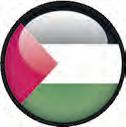

NSW Labor Leader Chris Minns was sworn in as the Premier of NSW on Tuesday morning 28 March following the state elections held last Saturday 25 March 2023.
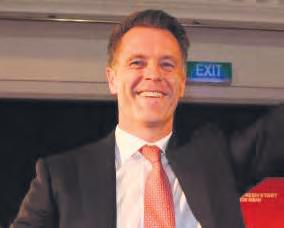
The NSW interim cabinet includes Prue Carr, Deputy Premier and Education Minister, Penny Sharpe, Minister for the Environment, John Graham, Minister for Roads, Daniel Mookhey, Treasurer, Ryan Park, Minister for Health, Jo Haylen, Minister for Transport and Michael Daley as Attorney General.
“I am humbled that the people of NSW have put their trust in us. And the work starts right away,” NSW Premier Chris Minns said.
He further added, “NSW has voted for a fresh start for NSW, and to put people at the heart of government – to invest in the human capital that runs our essential services.”
Labor has won in NSW after a long gap of 12 years at a state election, mainly delivered by the residents of Western and South Western Sydney in the key electorates of Parramatta, Camden, Penrith, Riverstone, and East Hills.


continued on page 3
The Islamophobia Register Australia, in partnership with ISRA and CSU, launched its 4th Islamophobia in Australia report on Tuesday 21 March 2023 at the Old Parliament House in Canberra, marking the International Day for the Elimination of Racial Discrimination.
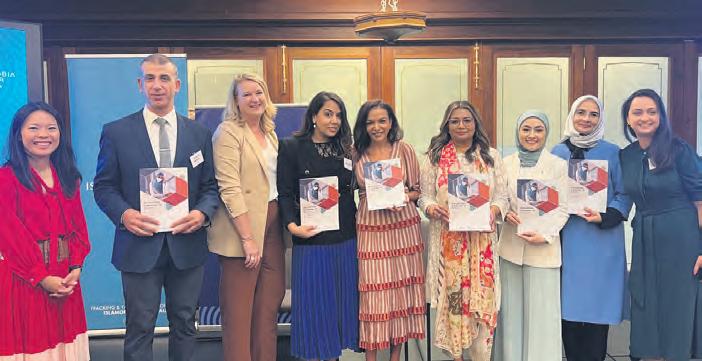
The ‘Report’ titled Islamophobia in Australia – IV (2014-2021) is authored by Dr Derya Iner, Associate Professor working with Islamic Sciences & Research Academy (ISRA) and Charles Sturt University (CSU).
The Report highlights the gendered nature of Islamophobia and that alarmingly, despite the prevalence of Islamophobia in public places, comprising ‘hotspots’, bystanders witnessing incidents do not appear to be intervening to support victims.
The launch event comes in the wake of International Day To Combat Islamophobia, designated by United Nations in 2022, taking place on 15 March every year marking the anniversary of the Christchurch mosque shootings, in which 51 people were killed.
continued on page 3
New statistics from WorldRemit, a global payments company, have revealed the generosity of Muslims living abroad during Ramadan shows a spike in money sent to communities and loved ones in Muslim majority countries like Pakistan (96% Muslim population) and Bangladesh (91% Muslim population) during the fasting month, reflecting the spirit of charity, Zakat and Sadaqah.
In 2022, people around the world sent 15% more money to loved ones in Pakistan during Ramadan compared to the month before, and 41% more compared to the month following.
In the same year, people around the world sent 30% more money to loved ones in Bangladesh during Ramadan compared to the month before, and 101% more compared to the month after.
However, the data also shows that remittances during Ramadan have been impacted by ongoing global inflation and the increasing cost of living, as well as market and dollar depreciation, COVID-19 recovery, and other economic issues.

In 2021, the average total amount sent to Pakistan and Bangladesh globally was 80% more than in 2020. However, as cost of living and inflation increased in 2022, the amount sent in total declined year-on-year. continued on page 3

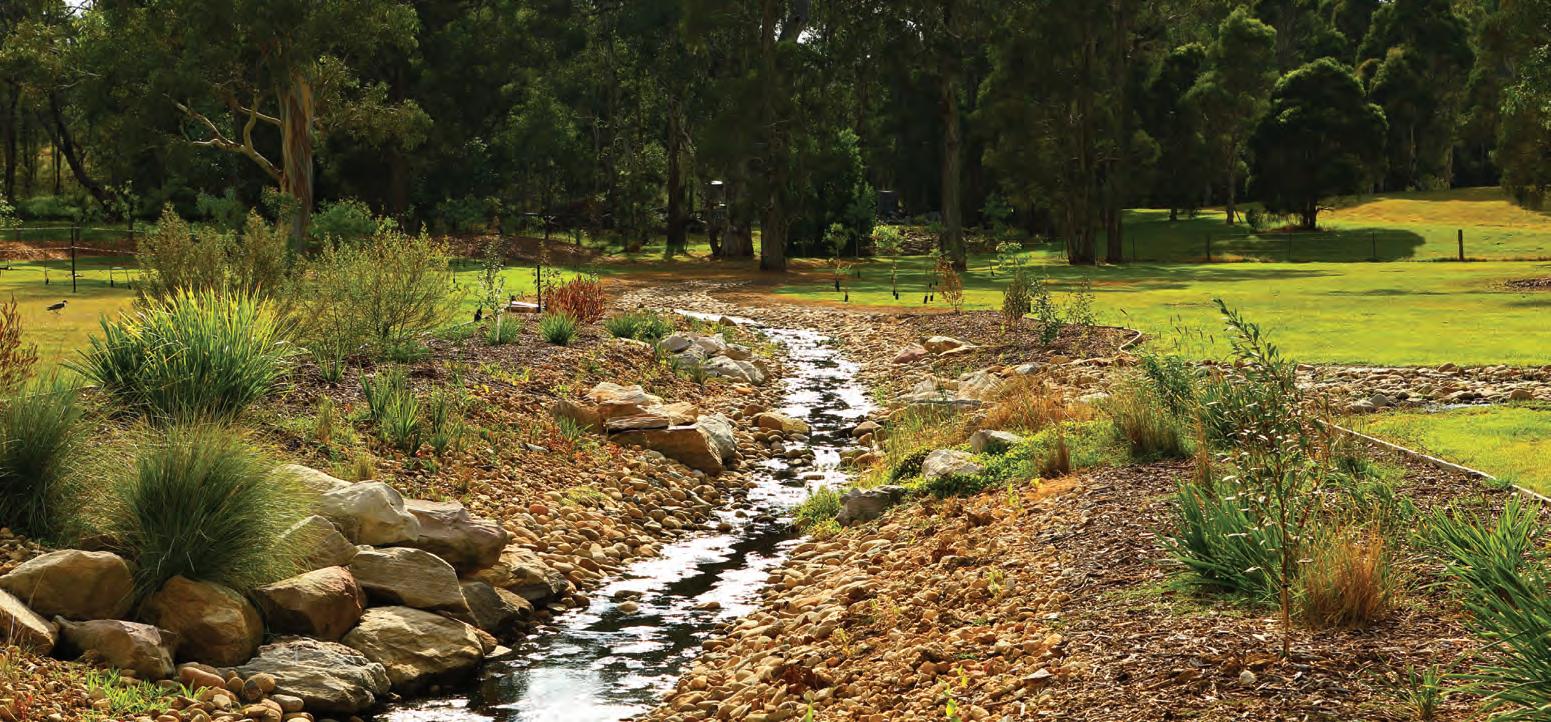

Continued from page 1
In an exclusive interview to AMUST during his election campaign Mr Minns promised to address various issues affecting Western Sydney, including the state of hospitals, housing, equitable treatment during COVID lockdowns, support for multicultural communities and media, and addressing discrimination based on faith. (See AMUST editorial on page 5).
Their was statewide swing to Labor generally in Sydney and particularly in Western Sydney and on the South Coast while no seats north of the Central Coast changed hands.
Labor gained five seats from the Coalition due to swings of over 10% in Camden, East Hills, Monaro, Parramatta, Riverstone and South Coast.
On two-party-preferred basis, Labor re-
The NSW Labor government’s interim cabinet sworn in on Tuesday morning 28 March 2023. From left front row Prue Carr, Chris Minns, Penny Sharpe; back row Michael Daley, John Graham, Daniel Mookhey, Ryan Park, Jo Haylen.
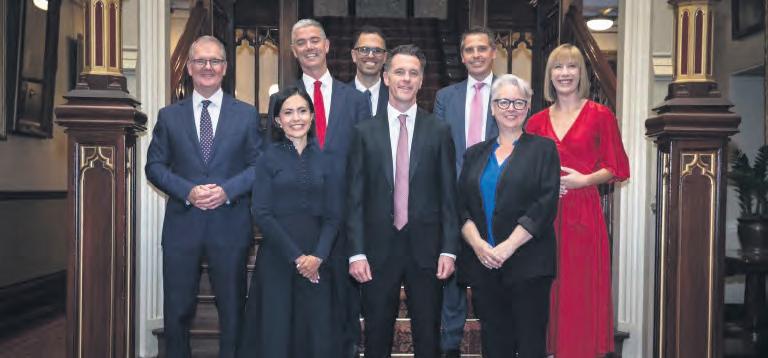
ceived a swing against them in four of their own seats Cabramatta, Liverpool, Shellharbour and Summer Hill, as well as in sev-
en Coalition-held seats Albury, Badgerys Creek, Bathurst, Coffs Harbour, Cootamundra, Myall Lakes and Upper Hunter.
Continued from page 1
“Islamophobic incidents were mostly committed by men perceived to be from Anglo/ European backgrounds and from older cohorts. The victims were mostly younger hijabi women from non-White ethnic backgrounds and from vulnerable cohorts, unaccompanied or with children. These are the most significant characteristics of Islamophobia we keep seeing over the course of eight years in the reported incidents of Islamophobia in Australia,” principal researcher Dr Derya Iner said while commenting on the research findings.
She further added, ,”Incidents in guarded places continue to increase (reaching up 70% in the last reporting period). If we don’t want to keep repeating these numbers in the next 8 years, it is time to ask ourselves “What can we do to stop it?” and “How can we dismantle gender, race and age enablers reproducing Islamophobia?”
The launch attracted an impressive line-up of speakers and panellists including the Minister for Immigration, Citizenship and Multicultural Affairs Andrew Giles, the Minister for Youth and Early Childhood Education Anne Aly, Deputy Leader of the Australian Greens Senator Mehreen Faruqi, Senator Fatima Payman, independent Federal Member for North Sydney Kylea Tink, Labour Federal Member for Reid Sally Sitou and founding Executive Director of ISRA Associate Professor Mehmet Ozalp.
The event was MC’ed by the Register’s Executive Director Sharara Attai and featured a number of speeches, a panel discussion, a report campaign video which is now available for viewing on the Register’s social media pages and the launch of an innovative ‘interactive map’ which was created by the Spatial Data Analysis Network and CSU. This is a map of Australia that has a pinpoint
Continued from page 1
Giving back to your community this Ramadan
During the month of Ramadan (Thu 23 March to Thu 20 April), for every money transfer sent to Pakistan via WorldRemit, the company will donate an iftar meal to someone in need.
The global payments company has partnered with Pakistan’s Edhi Welfare Organization to deliver these meals to countries impacted by soaring inflation.
Ruzan Ahamed, South Asia Regional Director, WorldRemit said that Ramadan is a special time of year for many of the company’s customers.
“Every year, WorldRemit helps Muslims around the world send money back home to help their loved ones prepare for Ramadan and Eid celebrations, and to support those in need,” he said.
In 2023, WorldRemit has pledged to donate 20,000 meals to Pakistan so that even more people can enjoy Ramadan.
“We recognise that current economic hardships mean celebrations may take a different form this year. That is why we wanted to make sure that every customer sending money to Pakistan this month is able to make an even bigger impact,” said Mr Ahamed .
2023 is the third year WorldRemit has partnered with the Edhi foundation during Ramadan.
Ruzan Ahamed is WorldRemit’s Regional Director South Asia. He is passionate about FinTech, and has15 years of hands on experience in Mobile Financial Services, Cross Boarder Remittances, Digital Payments and Banking.
of various organisations and Australia’s first Muslim Navy Captain Mona Shindy.
for each Islamophobic incident reported from 2014-2021.
“I hope it lends some impact to have the Australian Minister for Multicultural Affairs associate himself with this report and commit myself to working towards its significance –its significance to Muslim Australians and its significance to the entire Australian community’’, Minister Andrew Giles said at the launch.
Each of the three Muslim parliamentarians at the launch spoke of their own personal experiences of Islamophobia.
Minister Anne Aly also said, “The times that I’ve spoken out about Islamophobia I have attracted so many death threats, so much hate, so many letters.”
She also touched on the underreporting of Islamophobia saying, “The Islamophobia that is reported does not reflect the extent of Islamophobia that is experienced. Or the nature, the full nature of Islamophobia in all its forms.’’
As with the Register’s three previous re-

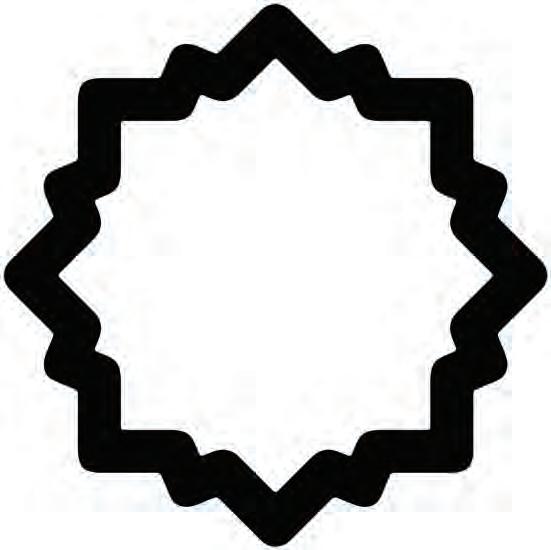
ports, this report again reinforced the gendered nature of Islamophobia. Most victims were women (78%), particularly women who wear the hijab, and most perpetrators were men (70%).
The report also highlighted a concerning fall in witness reporting which dropped by about half (from 47% to 24%) since the inception of the Register (2014-15) until the start of the COVID-19 era (2020- 21).
Deputy Leader of the Greens, Senator Mehreen Faruqi thanked victims of Islamophobia who reported their experiences saying, “We are often gaslighted about whether or not these things are really happening to us, and that we might even provoke them, and it takes real bravery to speak out.”
In attendance at the event were a number of distinguished guests including Ridwaan Jadwat, First Assistant Secretary, Middle East, Africa and Afghanistan Division, Department of Foreign Affairs and Trade, the heads
The event was live-streamed on the Register’s Instagram and Facebook pages and the recorded live-stream can still be viewed on those pages.
The Islamophobia Register Australia is the leading organisation tracking and tackling Islamophobia in Australia. It offers a platform for reporting incidents of Islamophobia, publishes academic reports based on the data collected, and also provides victim support services to victims of Islamophobia.
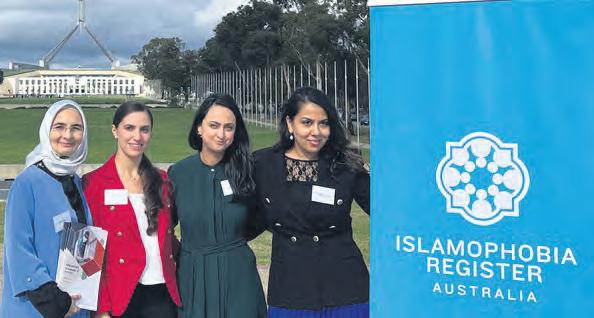
The Register’s reports, which are a first of their kind in Australia, have been cited widely and have helped to bridge a unique gap in terms of research in this under-resourced area.
The Register recently appointed human rights lawyer Sharara Attai as Executive Director and expanded its board of directors to include Founding Chair Mariam Veiszadeh, Deputy Dr Derya Iner, Dr Susan Carland, Naima Ibrahim, Hilal Yassine, Dr Nora Amath, Mobinah Ahmad, Basim Al Ansari, Silma Ihram, Safiah Rind and Diana Sayed.
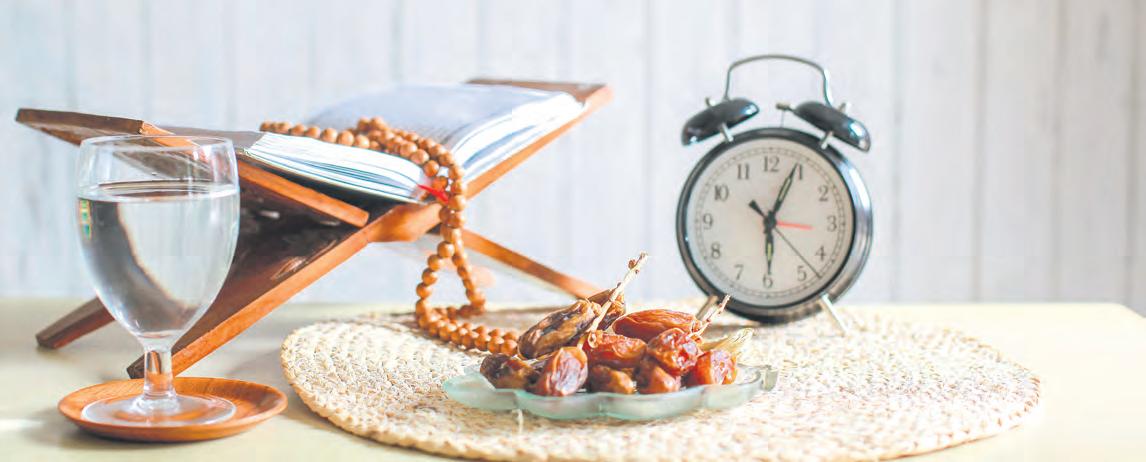 Dr Omar Mograby
Dr Omar Mograby

The month of Ramadan is upon us, and thus millions of Muslims around the world have commenced Fasting. Apart from reinvigorating our spirit; this blessed month provides us with an opportunity to reboot our bodies back to health.
Fasting has become a popular and parsimonious method of weight loss. Indeed, expensive smart watches and mandatory gym attire, along with associated membership costs are not needed. All you really need to do, is restrict your caloric intake, ie food intake. You might even save money!
There are a multitude of ways people achieve their weight loss goals through fasting, including, the 5:2 diet, the Alternate Day Fasting Diet, and the 16:8 method. Time restricted fasting is another method which involves a feeding phase of 6-10 hours, followed by a fast.
With so many diets out there, how do we choose what will work best for our weight loss goals and metabolic profile.
As Muslims, it is important to refer to the sacred scripture and indeed, the Sunnah of our beloved Prophet Muhammed (s). His medical recommendations are universal, easily applicable, cost effective, and a means of drawing closer to your Creator. Thus, providing a means for continued spiritual and physical invigoration outside of the month of Ramadan.
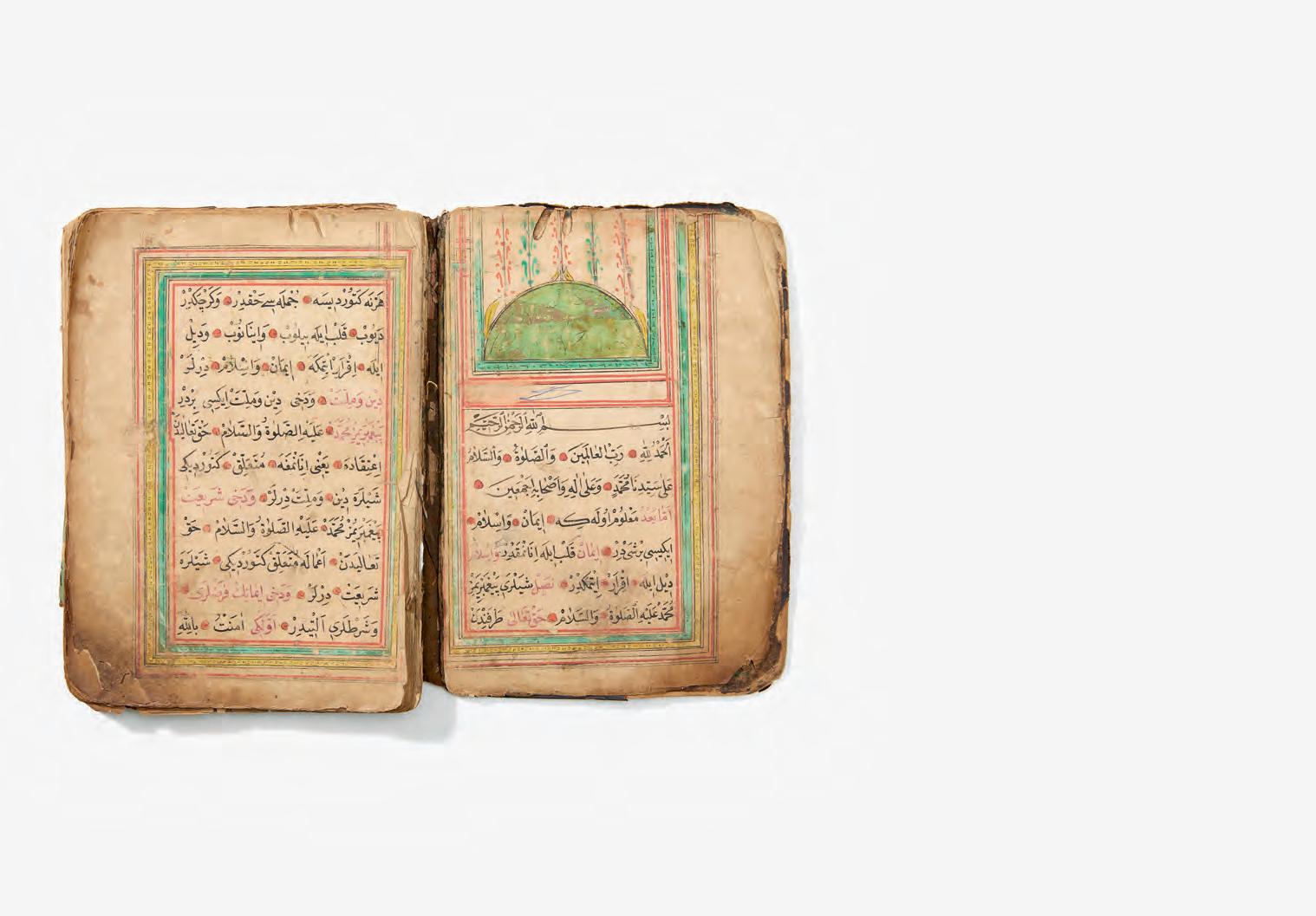
Indeed, fasting has been proven to have numerous health promoting effects. They include an improvement in your metabolic profile (weight, blood pressure, cholesterol levels, blood sugar levels), circadian rhythm, mental health (depression, anxiety),
and gut microbiome to name a few.
The most popular diet, named the 5:2 involves caloric restriction for two non-consecutive days, and “normal” eating on the remaining five days. Sound familiar? Our beloved Prophet (s) mentioned fasting two non-consecutive days in the following Hadith:
Abu Hurairah reported that the Messenger of Allah, may Allah bless him and grant him peace, said, “Actions are presented on Mondays and Thursdays, so I like my actions to be presented while I am fasting (at-Tirmidhi).
The other form of fasting is called the Alternate Day Fast. It is a 48-hour routine which involves fasting for 24 hours, followed by a period of non-fasting. Again, sounds familiar? Our treasured Prophet (s), mentioned God’s most beloved fast in the following Hadith:
Abdullah Ibn Amr Ibn Al-As narrated:
Allah’s Apostle (s) said to me: “The most beloved fasting to Allah was the fasting of Prophet David (a), who used to fast alternate days. And the most beloved prayer to Allah was the prayer of David (a), who used to sleep the first half of the night, and pray for one third of it and again sleep for a sixth of it. (Sahih Al-Bukhari).
There is also another Hadith related to fasting three days in the month which is also worth mentioning here:

It was narrated that Abu Dharr said: “The Messenger of Allah said: ‘Whoever fasts for three days of each month, he has fasted for a whole lifetime.’ Then he said: Allah has spoken the truth in His book: Whoever brings a good deed shall have ten times the like thereof to his credit (Quran 6:160). (Sunan an-Nasa’i 2409)
As further empirical research is undertaken, more health benefits of fasting will no doubt be discovered. But in the mean-time,
if you are searching for way a to improve your mental health, enhance your gut microbiome, lower your metabolic profile risk, improve your sleep and lose weight, then why not consider fasting. Use the month of Ramadan as launch pad for continued fasting after its completion. Obtain the blessing of following a Sunnah, draw nearer to your Lord and reap the associated health benefits.
Dr Omar Mograby, BAppSci (Osteo) MO MBBS (Hons1), MSc (Oxon) Cand, is an Australian trained medical practitioner currently specialising in Psychiatry. He is currently completing a Master of Science at Oxford University in the United Kingdom. Alongside his medical practice, Dr Mograby has been involved in tertiary education for the past 20 years, and is also a reservist member of the Royal Australian Army Medical Corps with the rank of Captain.
Powerhouse Parramatta is inviting members of Muslim communities who possess rare and sacred objects to share their stories as part of moments in waiting, a major community project led by Lebanese-Australian visual artist Khaled Sabsabi.
Tell your story by emailing: momentsinwaiting@maas.museum
Or, scan the QR code below to find out more:
Now that Labor has won government in NSW, thanks to the strong support in key electorates in Western and South Western Sydney by working class residents comprising of migrant communities, Labor is urged to act promptly to fulfil its promises.
In an exclusive interview to AMUST during his election campaign Mr Minns promised to address various issues affecting Western Sydney, including the state of hospitals, housing, equitable treatment during COVID lockdowns, support for multicultural communities and media, and addressing discrimination based on faith.
Religious vilification law within 100 days
Chris Minns had expressed concern about discrimination in New South Wales and Labor’s commit ment to ensure that no one is discriminated against on the ba sis of their race or religion and there is no place for hatred and vilification of minority communities.
He acknowledged the contribution of immigrants from countries around the world, including those of Islamic faith, to making Australia a better place.
During his address to a gathering of faith communities on Monday 27 February in Parramatta Mr Minns gave the assurance that if he wins government the he would make religious vilification unlawful by amending the Anti-Discrimination Act within 100 days of taking office.
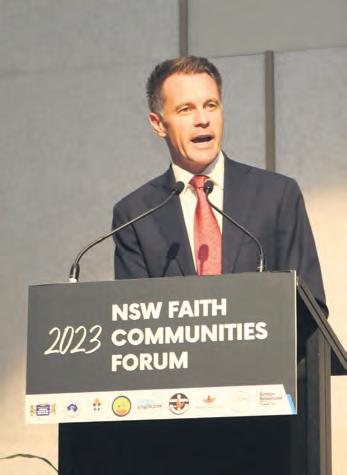
Mr Minns assured the NSW Muslim community that they will be safe in this great Multicultural society and he will ensure that building of peace and harmony is
Re: AIMA promoting diversity in Australia’s blood supply
Very Well done to Dr Kahloon and the AIMA team, you are truly demonstrating Muslim values to the wider community.
Asim
Re: CouncilCanterbury-Bankstown support bid to stop an- ti-Palestinianism
The current right wing Government of Israel plan to weaken the Supreme Court will only encourage Settlers’ expansion at the expense of the Indigenous Palestinians. To
given top priority in the state.
The NSW Labor Government will establish a New South Wales Faith Affairs Council, a formal channel of communication between faith organisations and the government.
The Council will give feedback on the priorities and trends within faith communities. It will help coordinate the work done by faith based organizations during times of needs, such as the recent pandemic and natural disasters.”
There has been great concern about the state of hospitals in Western Sydney, particularly Blacktown Hospital.
Chris Minns discussed Labor’s plans to address this by investing in safe staffing levels, returning 600 beds to Western Sydney, and turning around the performance of the hospital system to deliver quality healthcare for all.
The state coalition was accused of initiateing fast-track rezoning in the wrong places. Chris Minns acknowledged this issue and talked about the need to ensure that infrastructure keeps pace with the growing population, particularly in Western Sydney.
Labor’s focus will be on making sure that there’s fairness in Sydney, with the government looking out for fast-growing parts of Western Sydney for affordable housing and associated infrastructure.
During COVID lockdowns, people in certain parts of Sydney, particularly South Western Sydney LGA’s, were made to suffer re restriction of movement. This kind
of discrimination based on areas of residence was perceived to be highly resentful. Chris Minns guaranteed Labor’s commitment to representing everyone equally and ensuring real fairness, with taxpayer funds spent on everyone, not just pork barreling to benefit the government’s own electorates.
Chris Minns talked about the importance of ethnic media and the role it played during COVID in disseminating information to multicultural communities. Labor believes that a diverse and active media is important for any democracy, and it’s committed to supporting budding multicultural media for the dissemination of information to reach into the multicultural communities.
Zia Ahmad is the Editor-in-Chief of the Australasian Muslim Times AMUST and is based in Sydney.
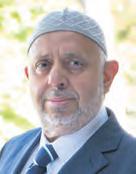
News
- Rise in gendered Islamophobia
- Muslim generosity spikes in Ramadan
Boomerang
- Ramadan: Want better health Fast?
- Labor wins NSW: What it means
- Refuting atheism: thoughts
Community
9 - 19
- ISRA Unpack Series: Disability
- March-ing towards social cohesion
- Year 12 Muslim Achievement Awards
Australia
20 - 25
- Close encounters of the foodie kind
- March 15: ‘networked white rage’
Lifestyle
26 - 31
- Pokies: A scourge on society
- SAFFA brings diverse short films
- Kemal Omar: a pillar of strength
Ummah
- Anniversary of war crimes
32 - 34
- Crisis in Palestinian refugee camps
Education
35 - 37
- Support students during Ramadan
- Islamic Schools Assoc. of Australia
- A sustainable super tax reform
- ABSC
Social
- Food blogger eloquently explains Ramadan to ABC News morning show
The views and opinions expressed in articles, and Letters to the Editor, Website Comments are those of the authors and do not necessarily reflect the official policy or position of The Australasian Muslim Times.
Editor-in-Chief: Zia Ahmad
Managing Editor: Mobinah Ahmad
laud any Zionist who support this Judicial change is to ignore the worsening plight of the Palestinians. mal
Re: The road to March 15: ‘networked white rage’ and the Christchurch terror attacks
The neo-Nazis saluting on the steps of Parlt. House in Melb shows that the supporters of genocide sre amongst us and brazen. The Christchurch Nazi terrorist was an Australian export remember.
Bilal Cleland
Graphic Designer: Rubinah Ahmad
Multimedia Journalist: Mehar Ahmad
Columnist: Dr Abul Jalaluddin (Finance)
Columnist: Bilal Cleland (Victoria)
Columnist: Manarul Islam (ACT)
Columnist: Dr Daud Batchelor (QLD)
Columnist: Zahid Jamil (NSW)
Columnist: Shahjahan Khan (QLD)
Promotion: Dr Wali Bokhari
Web Developer: rubinah.design


Printers: Spotpress Pty Ltd
Distributers: Abul Fateh Siddiqui, Shujaat Siddiqui, Usaid Khalil, Ibrahim Khalil, Usman Siddiqui, Zahid Alam, Shahab Siddiqui, Mahmoud Jaame, Mateen Abbas, Rashid Idris, Sakinah Ahmad, Anjum Rafiqi, Hasan Fazeel, Dr Quasim, Ismail Hossain, Hanif Bismi, Luqman Landy.
Contact AMUST
Post: PO Box 111, Bonnyrigg (Sydney), NSW 2177 Australia.
Email: info@amust.com.au
Web: www.amust.com.au
Phone: (02) 9158 3020
Facebook: @amustnews
Instagram: @amustnews
Twitter: @amustnews
Key details
21 March marks the International Day for the Elimination of Racial Discrimination (IDERD), sometimes known as ‘Harmony Day’ in Australia. However, hiding the true meaning of this day under a mask of ‘harmony’ actively harms our collective anti-racism journey by obscuring structural and systemic racism. This fact sheet explains why.
On 21 March 1960, police in Sharpesville, South Africa opened fire on peaceful anti-apartheid demonstrators protesting in response to the Pass Laws Act of 1952. The laws required Black South Africans over the age of 16 to carry a ‘passbook’ – a kind of internal passport known as ‘dompas’ designed to enforce segregation and restrict movement – at all times. A Black South African who forgot to carry the dompas could face arrest and imprisonment. The Pass Law worked in conjunction with other apartheid legislation, working to enforce systemic race-based oppression in South Africa.
On this day, huge numbers of protestors in Sharpesville turned up to the police station without their dompas, exercising their human rights such as the right to non-discrimination based on race and freedom of movement. The planned peaceful protest turned to tragedy when police opened fire on the 7000-person strong crowd, killing 69 people and wounding 180 others.
19 years later, the United Nations (UN) General Assembly resolved that a week of solidarity with peoples struggling against
racism and racial discrimination, beginning on 21 March and coined IDERD, would be held annually.
Since then, the international community has built a framework for fighting racism, guided by the International Convention on the Elimination of Racial Discrimination, which Australia ratified in 1975. This led to Australia’s first law actively addressing racial discrimination, the Racial Discrimination Act 1975 (Cth).
Yet still, around the globe – Australia included – too many individuals, communities and societies suffer from the injustice and stigma of both structural and systemic racism.
IDERD remains a powerful vehicle to encourage people everywhere to strengthen and consolidate their voices against racism, to mobilise against all forms and manifestations of racial discrimination and injustice, and to strategise for change.
Creation of ‘Harmony Day’ in Australia
In 1998, the Department of Immigration and Citizenship commissioned Eureka Strategic Research to conduct the first national survey on Australian attitudes about race.
This led to a report which recommended that the Government build the belief that Australian society was fundamentally harmonious and that this harmony should be a cause for celebration.
From 1999 Australia rebranded IDERD from a day of solidarity with people struggling with racial discrimination, to a day for celebration and the focal point of ‘Harmony Week.’
With this framing, the systemic racial discrimination experienced by so many, for so long in Australia was effectively swept un-
der the rug. This move has contributed significantly to the denial of racism that continues to characterise Australia today.
The problem with Harmony Day
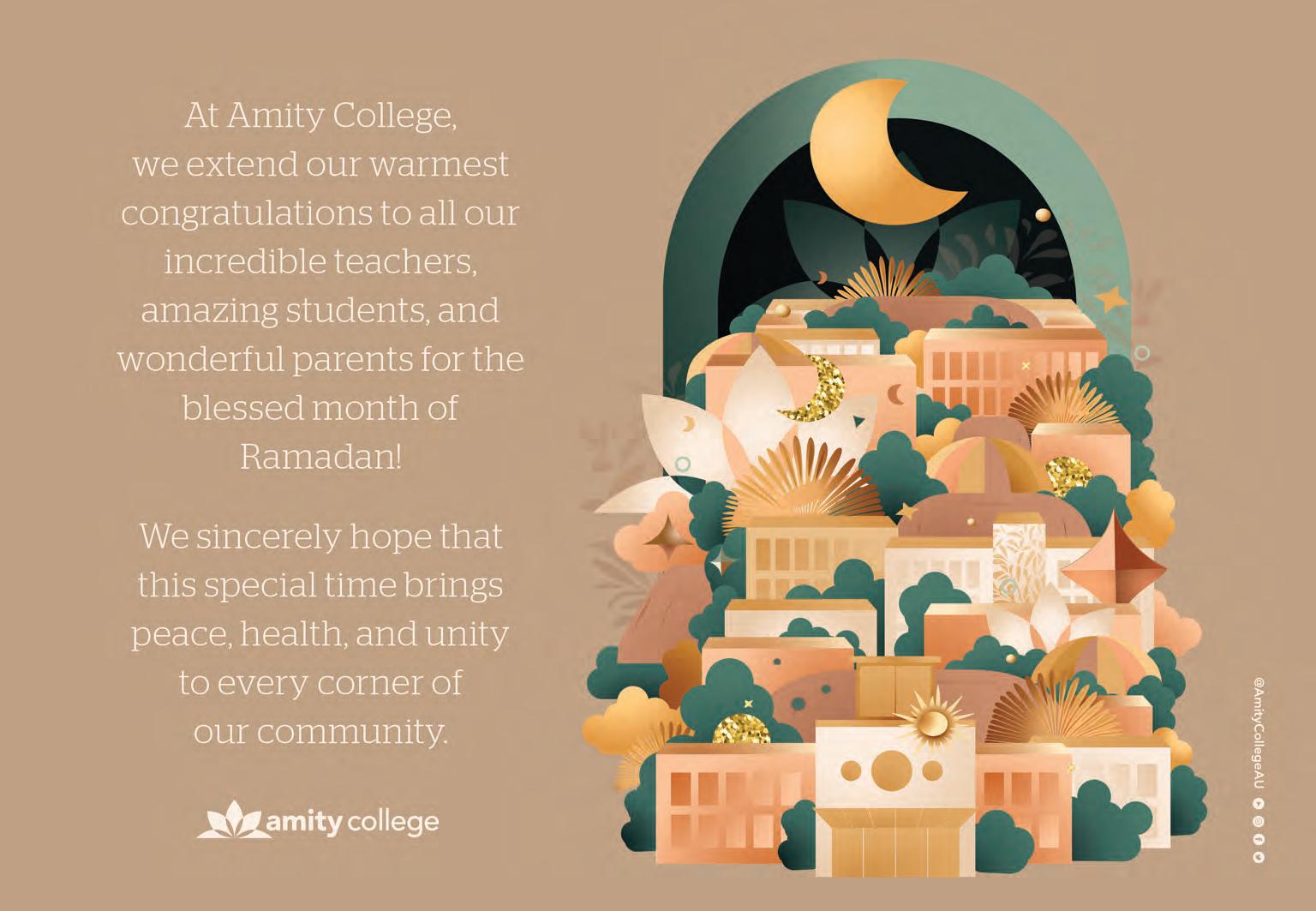
The promotion of harmony has characterised policy and politics in Australia over recent decades. While the idea of ‘harmony’ can be a positive message, one of the problems with this approach overtaking IDERD is that it may discourage people from speaking up about racism because it can be seen as opposing a harmonious Australian society.
Calling this commemoration ‘Harmony Day/Week’ causes harm to our collective anti-racism journey, by undermining efforts to identify and address the harm experienced by communities because of racism.
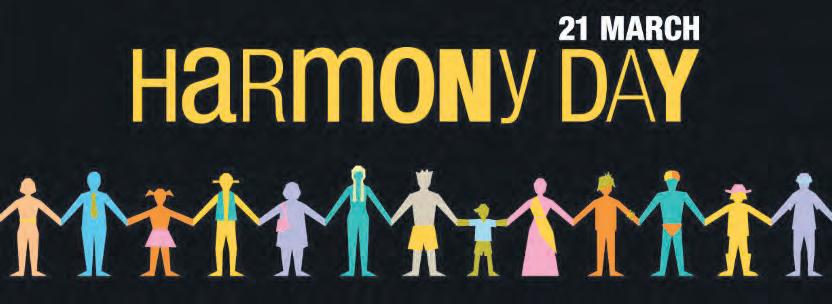
IDERD is an opportunity to meaningfully acknowledge Australia’s deep-seated issues with race and racism, question the various ways racism shapes our society, and redouble our commitment to anti-racism. Only then can we start to build a society that is truly fair and equal, and that recognises the fundamental rights and freedoms of all.
Suggestions for engaging in meaningful anti-racism around IDERD ‘Harmony Week’ is an example of the way
language can be used to reframe anti-racism. The language of harmony can operate to reinforce inequality and maintain the status quo.
We all have a responsibility to call racism out, and to interrogate the various ways it operates.
No matter where you are in your individual anti-racism journey, the Racism. It Stops With Me website is a place to learn more about racism and take action to create change.
We’ve also put together this list of suggested readings about the history of Harmony Day and the original intention of IDERD – acknowledging the reality and harms of racism and strategising for change.
• Harmony Day should not be used to sweep racism under the rug by Queensland Human Rights Commissioner, Scott McDougall in the Sydney Morning Herald
• The Strange History of Harmony Day and Australia’s Racism Discussion by Yan Zhuang in the New York Times
• It’s Harmony Week, but let’s discuss what it is really about: racism by Erwin Renaldi in the ABC
• Racism at work: a call to anti-racist action for Australian organisations by Peter Anderson in The Conversation
Our media in Australia has been overwhelmed by a barrage of reporting on the importance, the necessity and the cost of the AUKUS Agreement with its handful of nuclear powered submarines.
Disapproval of the bias in mainstream media means there has been outspoken approval of Paul Keating’s handling of journalists questions at his National Press Club Address on 15 March.
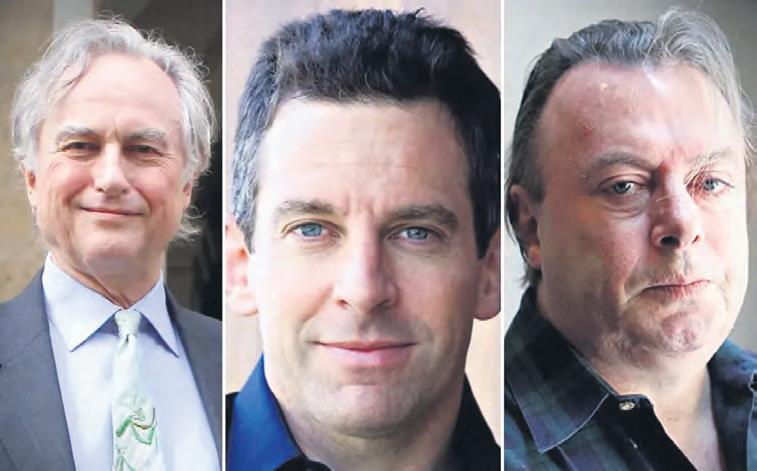
He trashed the whole handing over of our foreign policy to defence and security boffins under the pretence of the China threat.
The China Hawk themes of aggression, invasion and protection of trade routes were all that the corporate journalists raised.
Mr Keating, not known for indulging fools, gave several of them a quick education in accountability.
When the ABC’s Probyn cited the examples of Chinese tariffs on Australian exports as evidence of aggression Keating explained the difference between commercial measures and invasion. When Probyn tried again, citing cyber attacks as further evidence, Keating countered by referring to the use of such attacks by many nations including ours. Journalist tail between legs.
Then came Caisley of Sky News inferring that Keating was too out of touch on the situation so how could he claim that China was not a military threat to Australia?
Keating’s reply – “Because I’ve got a brain.” As he said, what advantage would China have in occupying us when it can trade freely and get what it needs? He described her question as dumb.
Westcott of Bloomberg asked about guarding our trade routes, for which we would need allies. Keating retorted that we do not need American support to ship our products to our main trading partner, China.
When Malcolm of The Australian asked why Keating did not see that China was being provocative by building up its navy, he pointed out that it was a major nation with an economy bigger than the USA and that it did not spend anywhere near what that country spent on defence.
His response to Knott of the Sydney Morning Herald who wrote the three “China War Soon” articles with Hartcher, which he described as the worst journalism he has ever seen, was classical Keating.
When Knott tried to wedge him on the Chinese treatment of the Uyghurs, he responded by asking why he lauded Modi whose treatment of Muslims in Kashmir was reprehensible.
He did not defend China on the Uyghurs but said quite bluntly that Knott should hide his face over the disgusting war articles and attacked their deliberate choice of China Hawks as their professional voices for the incitement. He described the Sydney Morning Herald as a newspaper without integrity.
We are not used to major figures taking on the stenographers from the corporate media with such vigour and it was most refreshing.
Those of us who lived through many US led wars to which we have contributed lives,
are suspicious of xenophobic campaigns. We saw what happened in Saigon as the helicopters took off from the embassy.
We witnessed the aftermath of the Iraq Invasion and the suicide bombings and anarchy which produced Daesh/ ISIS terrorism. We saw the horrors at the Kabul Airport as the Americans retreated.
Once again we must confront the realities of American foreign policy and its questionable relationship with reality.
This 2021 statement from Brown University should give us some indication of what is going on.
“As the US reduces the size of its military footprint in Iraq and Afghanistan, exaggerated estimates of the military challenges posed by China have become the new rationale of choice in arguments for keeping the Pentagon budget at historically high levels. Military contractors will continue to profit from this inflated spending.”
The defence budget is central to the US economy and as weapons are easily disposable, good turnover is assured.
“A large portion of these contracts — one-quarter to one-third of all Pentagon contracts in recent years — have gone to just five major corporations: Lockheed Martin, Boeing, General Dynamics, Raytheon, and Northrop Grumman.”
https://watson.brown.edu/costsofwar/papers/2021/ProfitsOfWar
The Cost of Sycophancy
In his address Keating compared the role of Prime Minister Albanese with the once Labor PM Billy Hughes, who in devotion o to the British Empire, tore his party and the nation apart as he tried to get it to agree to conscription for the meat mincer of the Western Front in World War I.
Billy Hughes did not achieve conscription but at the Versailles Peace Talks he managed to rally the Empire to defeat the Japanese attempt to have a clause proclaiming racial equality in the treaty. The bombing of Darwin in 1942 was one of the fruits of his policies.
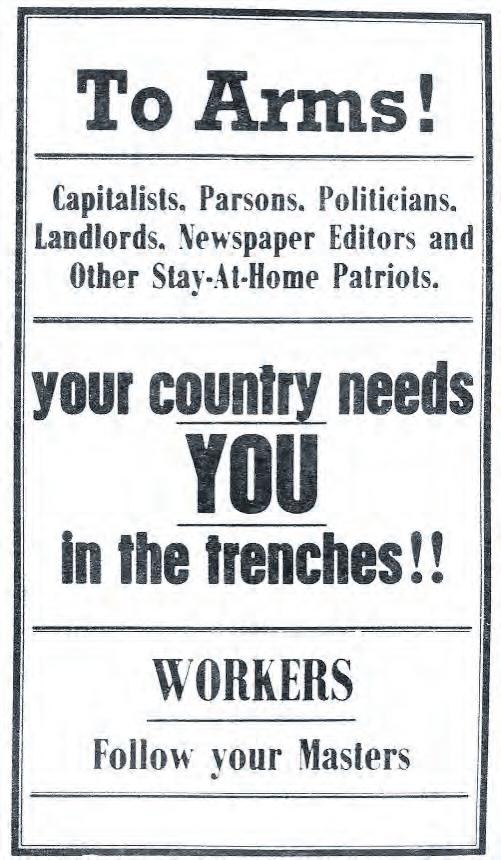
The submarines we are paying over $380 billion for are not suitable for our continental waters but are to help the USA patrol the periphery of China.
The Thucydides Trap, where a declining power seeks to prevent the rise of a developing power, has long been a cause of war, although that is not the inevitable outcome.
The fact that this trap is well understood in foreign policy circles and that our leaders have followed the path set by the Morrison government into AUKUS, is a real national problem which could become a disaster.
Keating made clear that if we are concerned about the defence of our nation, the amount spent on the few nuclear powered submarines would pay for about 45 Collins class submarines which could be used on our continental shelf.
His address is available on ABC Iview and on You Tube.
The same issues we had to deal with at the time of the Vietnam War have returned.
Bilal Cleland is a keen reader, a prolific writer and a regular columnist of AMUST based in Melbourne.
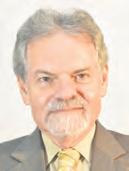

Philosopher Pascal surmised: “If God exists, the believer gains everything (ie heaven) and the unbeliever loses everything (goes to hell). … There is everything to gain and nothing to lose by believing in God.” We shouldn’t just believe as a ‘safeguard’, but threats of Hell are a strong incentive for everyone to investigate the possibility of God’s existence.
Let’s examine this using risk assessment. Risk is the product of Likelihood of an event and its Consequences.
Christians/Muslims who believe in God and Hell comprise 56% of World population. So one would consider Likelihood of Hell high.
CONSEQUENCES for a disbeliever if indeed Hell exists are ‘severe,’ as indicated by Qur’an: Those who disbelieved in Our Signs, soon We’ll burn them (in) Fire. Every time their skins roast, We’ll change their skins … so they taste punishment. … those who believed and did good deeds, We’ll admit (to) Gardens … They’ll abide therein forever. (Quran 4:56-7)
The RISK product resulting from a ‘Likely’ Likelihood and ‘Severe’ Consequences, is found using a risk matrix as Extreme. This indicates essentiality for everyone to investigate Islam’s claims of God’s existence.
It’s incoherent that atheists haven’t read the Qur’an, God’s pristine revelation.
They should consider Islam has continued as a vibrant religion over 1400 years and Muslim populations continue increasing.
Multiple studies found: “Individuals more
committed to religious faith/spiritual convictions are happier, healthier, and have more coping resources … than those for whom religion/spirituality are less important.” So, being atheist means likelihood of less health and happiness.
If atheists (eg Baker) read the Qur’an they’d avoid ignorant statements like: Firstly, “If God possesses energy that not only created but also interacts with the material world, then he’s part of the natural universe.”
No! God is distinct from the created world
“And none is like Him.” (112:4) Created things are bound by time/space, while Allah created time/space and transcends beyond them. God asserts the Qur’an (2:1-2) “is guidance for God-fearers who believe in the unseen (transcendentalism).” God is different from anything He created because it all exists through His act.
Secondly, “a ‘spirit’ is nonphysical, so a ‘spiritual god’ should have no power.” This displays ignorance of human knowledge limits. God states: “they ask you about the spirit. Say! ‘… you have been given but little knowledge.” (Quran 17:85)
Atheists find it implausible God could be Creator of the universe while being a personal God.
Hawkings: “One could define God as embodiment of the laws of nature. However, this is not what most people think of as God. They mean a human-like being with whom they can have a personal relationship. … that seems most implausible.”
However, God states: “We created man. … We are nearer to him than his jugular.”
(Quran 50:16)
Explosion of scientific knowledge/inventions gave science immense prestige. Western science believes it can rightly investigate all knowledge while only accepting as
valid, knowledge derived from human senses/instruments.
It is however, limited because it claims all reality is material/physical. It is not competent to investigate transcendental matters.
“Before the mechanistic revolution, there were three levels of explanation [of organisms]: bodies, souls and spirits. … After [this] revolution, there were only two: bodies and spirits. … final step [reduced] two levels to one. [Now] there is only matter. This is the materialism doctrine, which dominates scientific thinking.” (Sheldrake)
Some scientists/intellectuals are committed atheists, and materialist philosophy is central to their beliefs.
Tzortzis describes types of atheism: “Firstly, is the negative assertion one is simply a disbeliever in God [‘soft atheism’]. Secondly, the view that current arguments for God’s
existence are unconvincing, which implies agnosticism. Finally, the ‘positive’ assertion that there are no gods [‘hard atheism’].”
Tzortzis believes many people are atheists because they’re not convinced by arguments for God, so they’re actually ‘agnostics.’
Barker insists “The believer should argue for God’s existence, not demand atheists argue against it.”
The next article, insha’Allah, will present Proofs for God’s Existence as provided by The Qur’an and Life of Prophet Muhammad (s).
Dr Daud Batchelor, holds an MA in Islamic and Other Civilisations and a Diploma in Islamic Studies from the International Islamic University Malaysia, PhD from University of Malaya, MSc from the University of London.
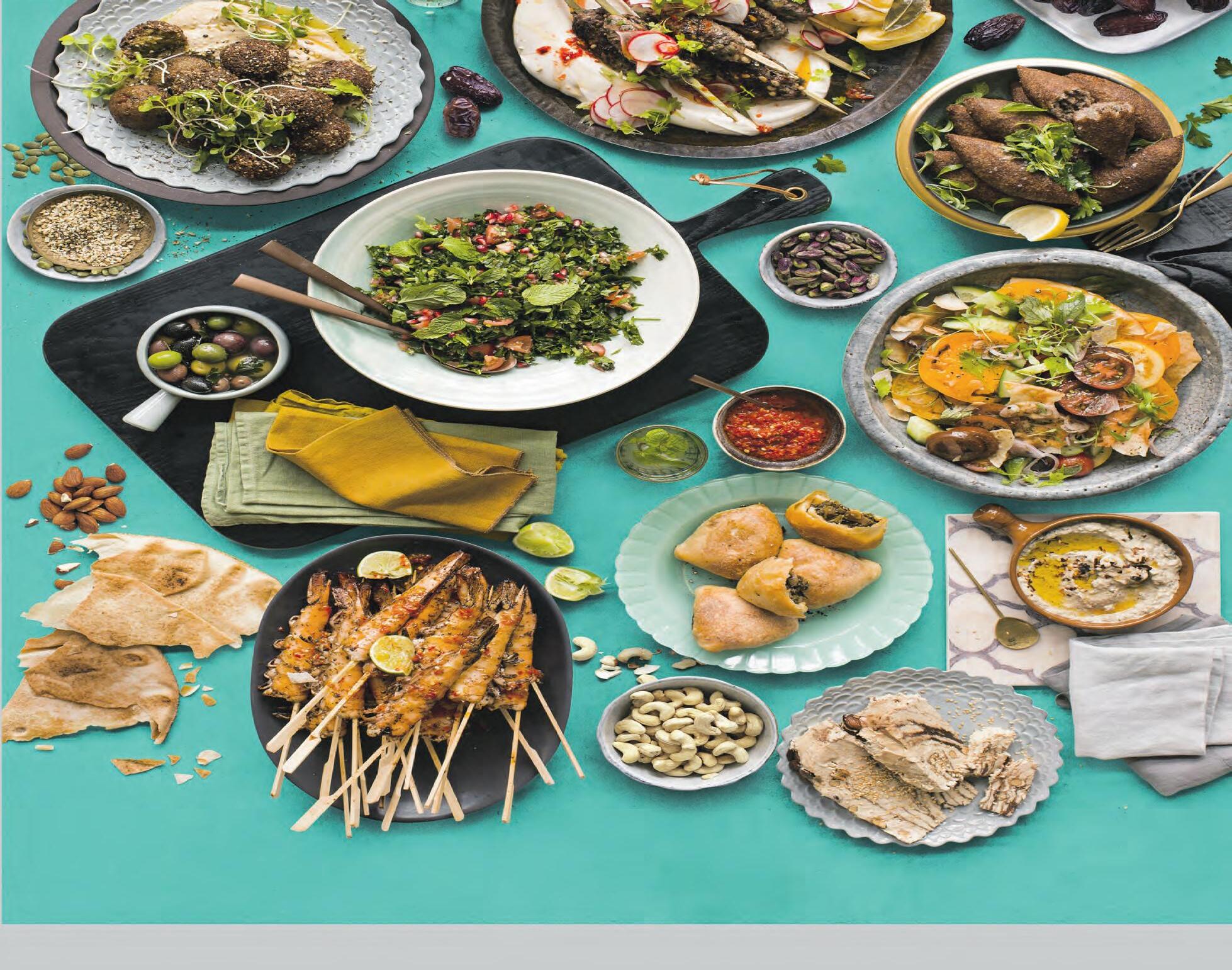


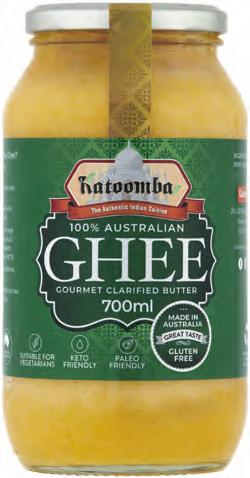

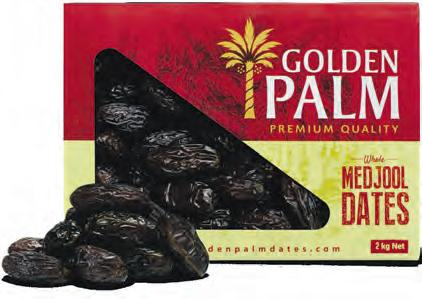
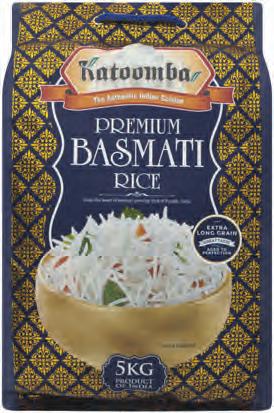
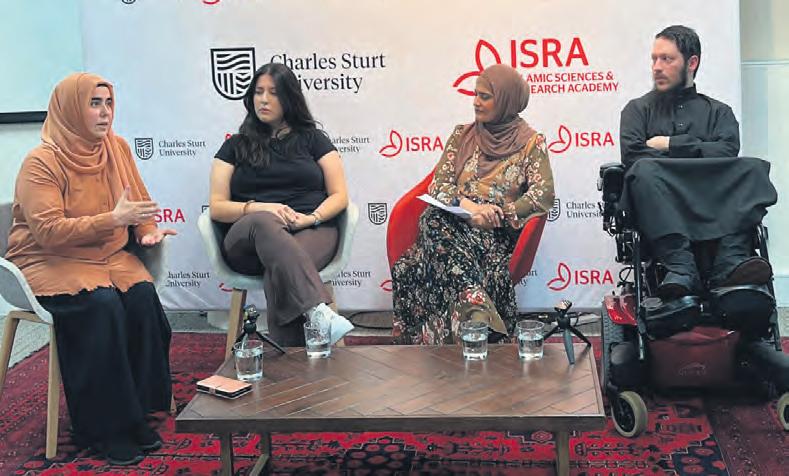 Sarah Yolcu
Sarah Yolcu
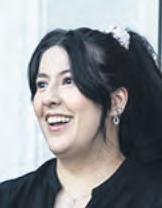
My name is Sarah, I’m in my final year of studying, I work a casual retail job, and I am a regular volunteer at ISRA (Islamic Sciences and Research Academy). I’m also an autistic Muslim woman, this comes with a lot of complications that people don’t always think about.
I enjoy openly talking about topics that are controversial and make people a little uncomfortable (some would say that this is a talent that comes with autism). Despite this discomfort, I think it fosters a climate of honesty, and that’s what we need more than ever.
Unpack is a series that came from a realisation, there are many social issues and topics that we avoid in the Muslim community. We need to have a format where we can discuss these social issues, with a Muslim perspective – some might say we should “unpack” these issues.
The youth team at ISRA came up with the idea that we’ll put together a panel, two young people and two professionals in their respective fields who would talk about topics that are contentious and avoided by our parents and community.
For example: tinder, minder & Halal dating; gender roles; spiritual abuse; losing my Iman; and pornography – all actual Unpacks we have done in this series which you can find on the ISRA YouTube channel! Our most recent Unpack was about disability in the Muslim community.
Disability is an area that has received a lot of attention over the years, particularly around a new wave of inclusion prompting a social movement with a slogan coined by activists, “nothing about us, without us”. However, as Muslims we don’t talk about disability, we avoid it, and have literal structures that are built to exclude disabled people from participating in our religion. Almost all our mosques have huge stairs to enter them and don’t have disabled toilets.
As of writing this, Auburn Gallipoli and Lakemba mosques don’t have ramp access for disabled or elderly people to enter the Mosque; or disabled toilets for people to use amenities / take wudu safely or even at all. This is just one example of the many barriers to Islamic participation we keep experiencing and seeing.
In my private discussions with people, I
find that neurodivergent and disabled Mus lims and their carers are often excluded and isolated from these religious spaces. This inspired the idea for an unpack on disability. However, it was important for us to include the perspectives of those who had lived experiences of disability, and to diversify this as much as possible.
On Saturday 11 March at ISRA Auburn, I spoke about my experiences in terms neurodiversity; Basit Bahram (butterfly boy) spoke about his experiences with a physical disability; Nesibe Takimoglu spoke about her experiences in caring for her son who has special needs; and Nasreen Hanifi facilitated the discussion.
Each of us openly spoke about our complicated relationship with Allah and Islam, and challenges we’d experienced due to ableism and discrimination particularly within Mus-
lim spaces. However, we also spoke about the kindness of strangers, little mercies that give us hope, and how we found solace in Islam.
We got a lot of positive feedback from the event. Disabled Muslims told us that this was the first time that they saw disabled Muslims / carers being represented and telling their story openly. Others sent emails about their own stories of discrimination, and how disappointed they were that their local Mosques and classes were not accessible for disabled people.
Many non-disabled people also told us that this was the first time they’d ever heard about the perspectives of disabled people, and that it opened their eyes to many issues they hadn’t considered before. The event was also streamed on zoom for accessibility purposes.
I would like to see change in the future. Where being “able bodied” doesn’t stop someone from engaging with religious programs, structures, and communities. Where we can hear from more people with these stories and experiences, and where inclusion is considered as a standard, not a second thought because “I didn’t need to consider that before”.
I want disabled Muslims to continue to thrive in all aspects, especially spiritually. It is my hope that these discussions are the first step to make this happen.
Sarah Yolcu is a disability rights advocate, and final year Bachelor of Social Work student. She has had practice experience in NSW Health, state government, and private service providers. She is an autistic Muslim, and hopes to use her experiences and platform to support other disabled Muslims and their carers in the community.
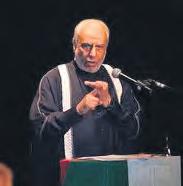
The Gaza Children’s Fund was established in 2010, with the purpose of aiding Gazan children and their families. Since then, several Palestinians have had their homes, livelihoods and families stolen from them by the state of Israel.
Gaza Children’s Fund advocates for the end of this oppression and helps Palestinians by providing them with money and resources. Some of their life-changing projects include providing safe electricity kits, sponsoring young Gazans and Qurban distribution. such as safe electricity kits.
I had the privilege of attending Gaza Children’s Fund Sydney event on Saturday 11 March with my family and found the occasion confronting, eye-opening and enjoyable.

As the night began, we heard an address
from Ramia Abdo Sultan. She apologised for the lack of air conditioning but reminded us that the heat was not even comparable to the torment Palestinians faced with limited electricity supplies, creating freezing conditions in winter and sweltering ones in summer.
She acknowledged that the event was taking place on Darug land, an important showing of solidarity between the Palestinian and Indigenous Australian communities, who have both had their land, culture and communities stolen by settler colonialism.
After hearing addresses, including a beautiful poem recited in Arabic from the founder of the Gaza Children’s Fund, the first part of the Al Jazeera documentary ‘60 Minute Warning’ was screened. The documentary focused on the bombing of media, business and residential towers by Israeli forces under the guise of ‘counter-terrorism.’
I could feel the audience devastated as families recounted the traumatic experience of rushing out of the towers, given only an hour’s warning. I also felt the rage in the room, as retired IDF members justified Is-
rael’s decisions, characterising their hour warning as generous and their violence as necessary to allegedly counter Hamas.
In fact, at the end of the documentary, a woman shared her rage, questioning how the rest of the world could watch on as Israel blatantly displaced, killed and tormented innocent Palestinian people.
After the documentary, we heard from a young Palestinian woman about her recent visit to Gaza. She debunked the myth that Palestinians were solely defined by suffering, sharing heartwarming stories about resilience, Palestinian food and culture.
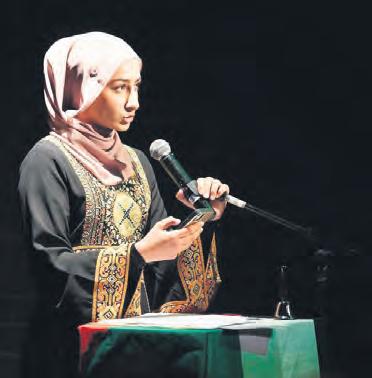
In this mood of celebration, we then applauded the Palestinian students who recently graduated from high school with admirable ATARs.
To end the formal part of the night, an auction of beautiful Palestinian clothes, artworks and furnishings was held.
We then left the auditorium for prayer and dinner. A delicious buffet of Kibbeh, Sambousek, mini pizzas, Chicken and other delicious foods was served. People ordered coffee and Knafeh and bought from a variety of
stores, which would donate their proceeds to the Gaza Children’s Fund.
I found a beautiful canvas bag with a map of Palestine decorated with Olive branches reading ‘Free Palestine.’
At the end of the night, I found myself grateful for the generosity and hard work within the community, whilst also feeling a sense of shame and anger about the state of oppression in Palestine.
I felt encouraged to advocate through donating and raising awareness about the issue. Alhamdulillah for the work of the Gaza Children Fund and other incredible organisations working to alleviate the suffering of Palestinians and other oppressed peoples around the world.
You can find the Gaza Children’s Fund at instagram.com/gazachildrensfund and the documentary ‘60 Minute Warning’ at https://youtu.be/qNoxt-I6MOY.
Anhaar Kareem is a 14 year old student and Western Sydney resident. She is an advocate, writer and speaker who is passionate about issues concerning young people.
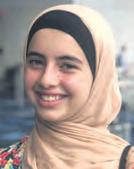
We pray to Allah to bestow the blessings of Ramadan on all
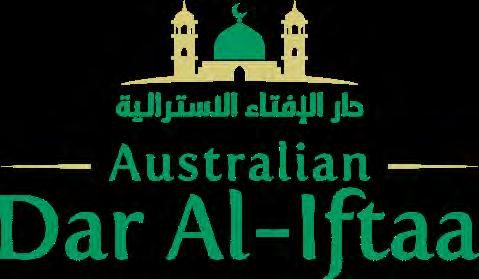
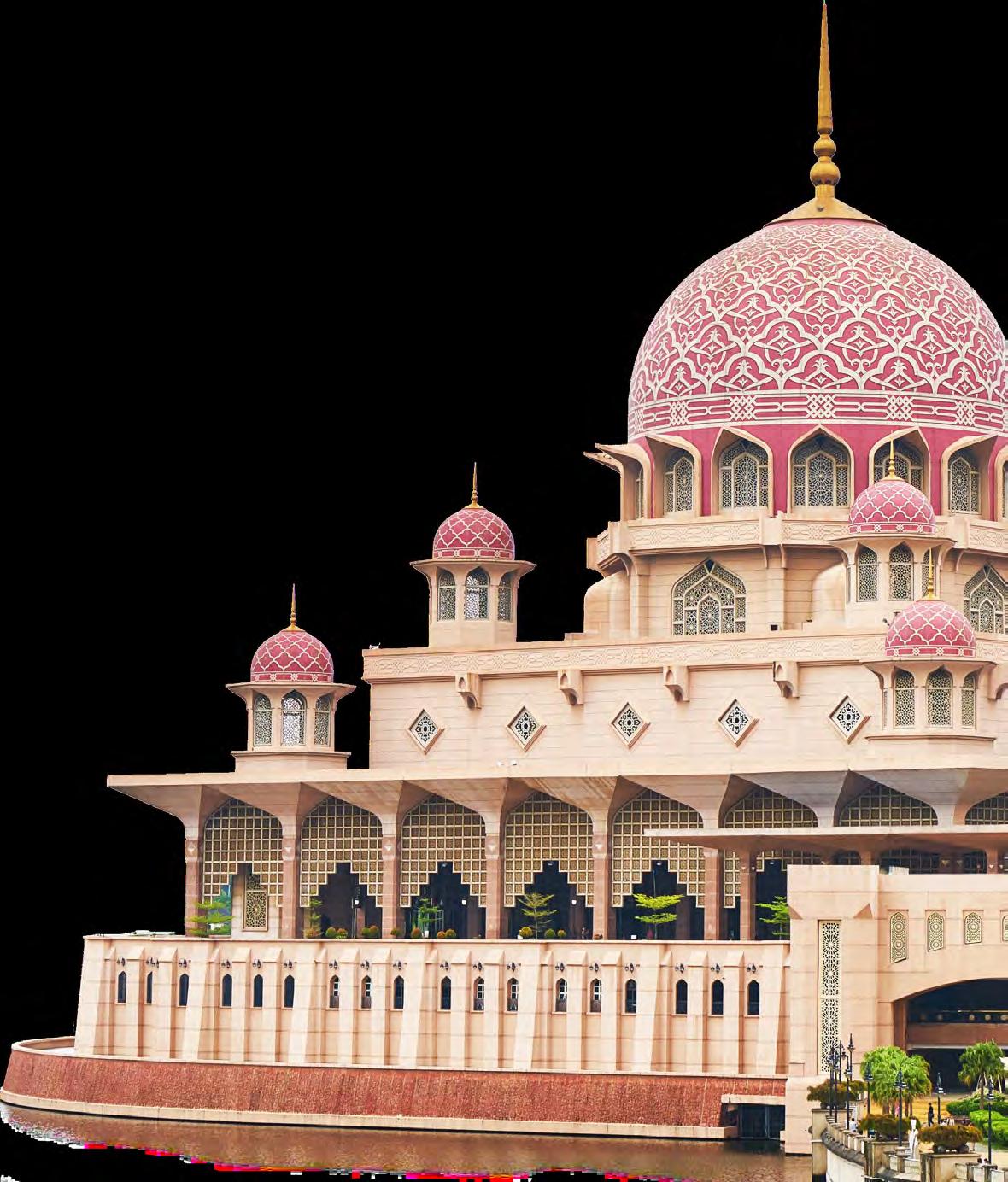 Dr RatebJneid AFIC President
Dr RatebJneid AFIC President
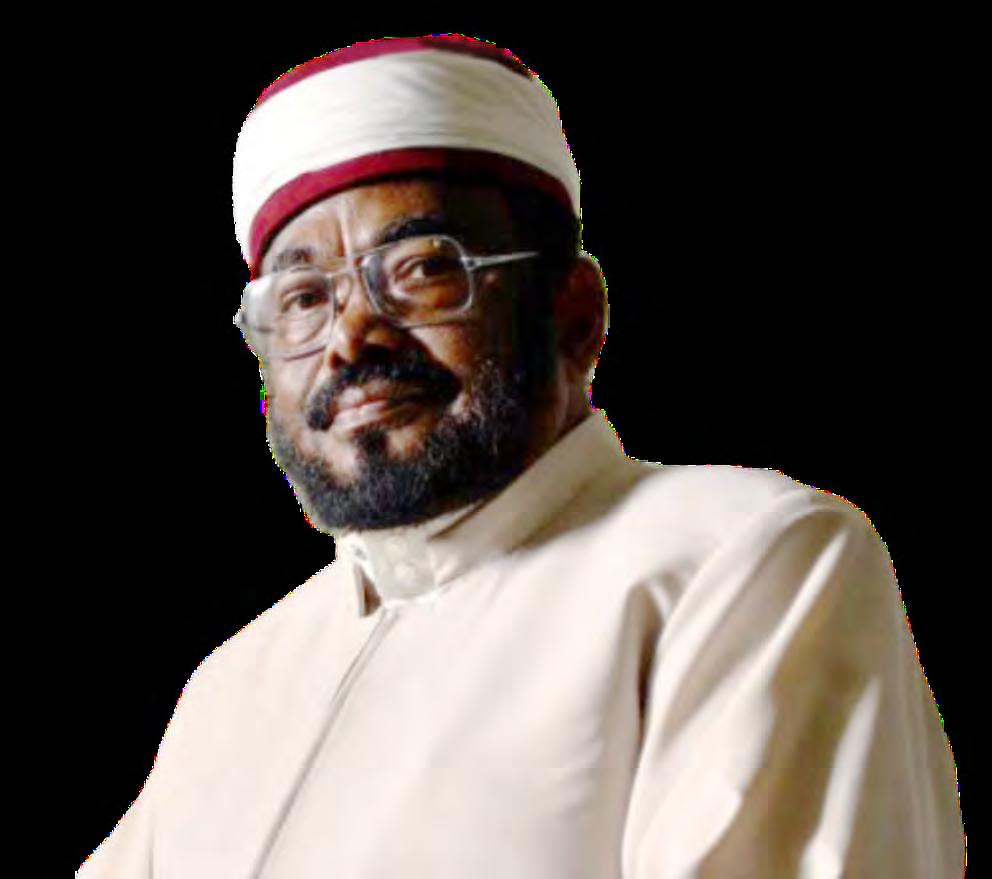
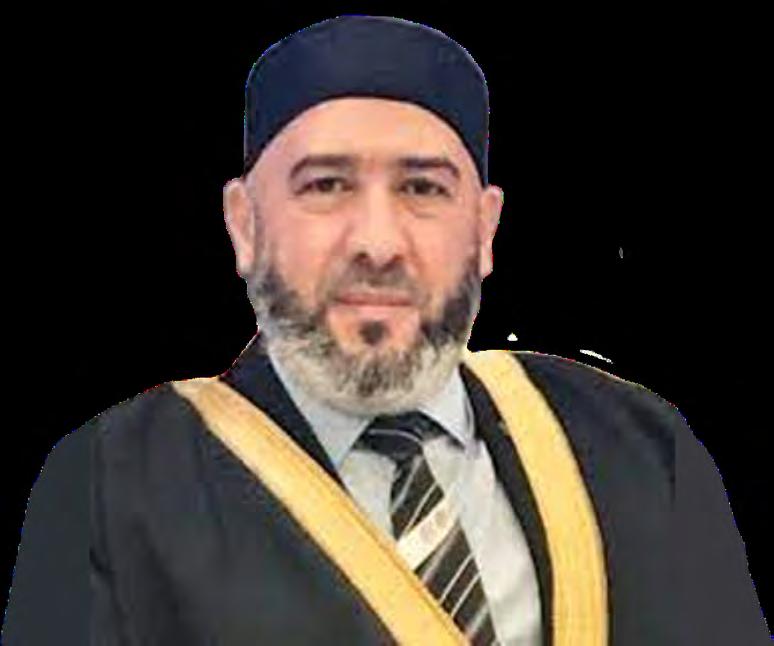
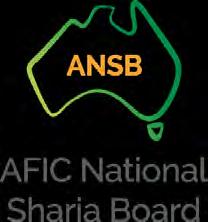
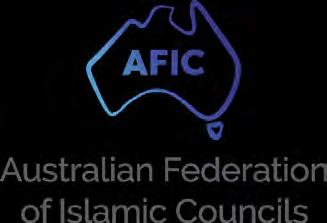
The Multicultural Eid Festival & Fair (MEFF) returns on Sunday 30 April 2023 with FREE Entry and FREE Parking at Fairfield Showground, Smithfield Rd, Prairiewood. MEFF is the first, the largest and the longest-running Eid festival in Australia, being one of the most anticipated events on Sydney’s multicultural calendar. Welcoming tens of thousands of people from over 35 communities, it is a family fun day for all.

MEFF was started in 1985 by late Dr Qazi Ashfaq Ahmad OAM, a Muslim community leader when he noticed that Eid was only celebrated in people’s private homes in Sydney. Back in his home country of India, Eid was celebrated in large gatherings in a festive atmosphere, and he wanted to have the same feelings of celebration with his friends and families in his new home country, Australia.
Starting small in the playground of a Bonnyrigg Public School, The Multicultural Eid Festival & Fair was the first event in Australia where Muslims could gather and celebrate Eid on a mega scale in a fun festival atmosphere.
Since then, MEFF has grown due to the popularity and support from the Multicultural community getting bigger and better every year, continually growing during its 37 years of history.
The Multicultural Eid Festival & Fair is a showcase of multicultural Australia, an icon of Muslim unity in diversity providing a platform for celebration, tolerance and peace on a grand scale.
Muslims from all backgrounds, ethnic communities, mosques and societies gather at MEFF to display their colourful costumes, sumptuous food, songs, folk dances and other displays within the bounds of the Islamic way of life.
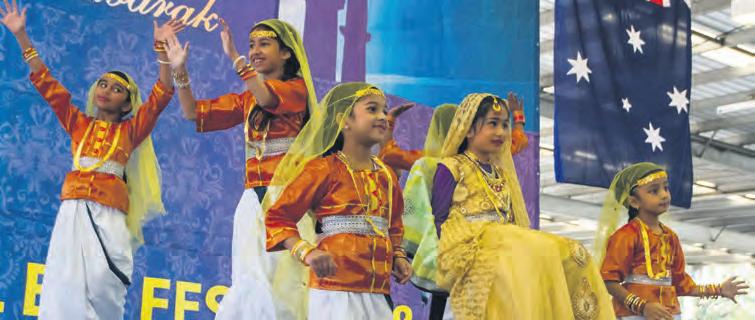
Indulge your senses with our Exhibition Stalls offering a vast array of cultural clothing, jewellery, perfumes, captivating books, toys, and showbags.
MEFF Food Stalls are a true gastronomic delight, boasting an impressive selection of mouth-watering cuisines from around the
world, including Turkish, Indian, Lebanese, Japanese, Pakistani, Spanish, and more.
Savour the delicious aroma of gozleme, kebabs, butter chicken, tandoori chicken, waffles, coconut drinks, and freshly squeezed lemonade and sugar cane juice.
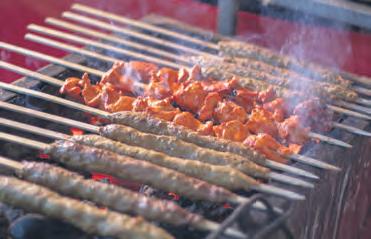
And don’t miss out on our special festival treats, including juicy burgers, crispy potato-on-a-stick, hot dogs, pluto pups, refreshing snow cones, slushies, and sweet fairy floss!
The Cultural Program at the Multicultural Eid Festival & Fair showcases an incredible diversity of talent, with performers of all backgrounds taking the stage to share traditional folk dances, cultural songs, mesmerizing plays and dramas, awe-inspiring acrobatics, and a plethora of other captivating performances.
In addition, there are thrilling rides for the young and not-so-young. Rides coupons are available to purchase on the day from ticket booths but there is also a special online only deal: 50 Ride Coupons for $50 (can be used up throughout the day) – a saving of 50% on the normal cost of a single coupon on the day! Available now at www.meff.com.au/ rides
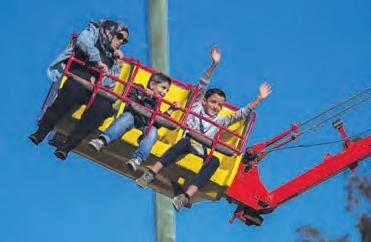
A special deal is available on MEFF 2023 day from 10am – 12:30pm where each ride will only require TWO coupons.
MEFF, initiated by IFEW with media partnership with AMUST, is sponsored by Platinum Sponsor: Human Appeal Australia and Gold Sponsors: Powerhouse Parramatta, SBS and Remitly. Funding for this project has been provided by the NSW Government through Multicultural NSW.
The festival is run by the Australian MEFF Consortium, a non-profit community-based organisation.
“Come celebrate Australian Multiculturalism at its best at the Multicultural Eid Festival & Fair! Whatever your taste in shopping, food and entertainment, the Multicultural Eid Festival & Fair is for you, your family and friends!” a MEFF spokesperson said.
For more information, please contact MEFF at 02 9823 2063 or email info@meff.com.au. You can also visit their website at www.meff.com.au.
Sabreen Hussain
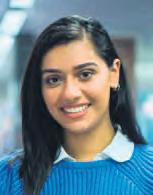
March has been a jampacked month for the Islamophobia Register Australia!
Social Media Video Campaign- 15 March 2023
To commemorate the UN Declared International Day to Combat Islamophobia and the 4th anniversary of the Christchurch terrorist attacks, the Islamophobia Register Australia (‘Register’) launched a social media campaign video.
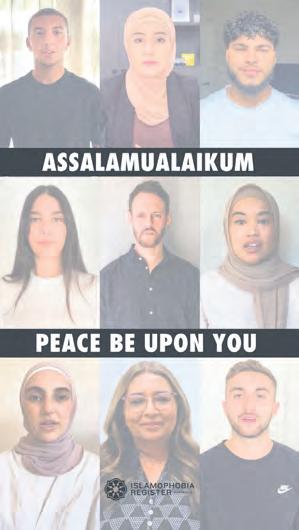
The video featured addresses from Senator Fatima Payman, Senator Mehreen Faruqi and Jibran Safi, whose father, Matiullah Safi, was tragically killed in the Christchurch shooting.
Whilst the Christchurch massacre is triggering to many Muslims, it is important to remember all 51 lives lost, the dozens injured, and the hundreds of people whose lives were directly impacted and countless Muslims who continue to be impacted because of this violence grounded in Islamophobia.
The campaign was an incredibly powerful message and reminder of the devastating nature that Islamophobia can take. The
video is up on our Instagram instagram.com/ islamophobiaregisteraus and Facebook page facebook.com/islamophobiaregisteraustralia - please take a minute to view and share it.
Launch of the 4th Islamophobia Report21 March 2023
The Register launched its fourth Islamophobia in Australia Report authored by Associate Professor Dr Derya Iner.
The report was launched in partnership with Charles Sturt University and Islamic Sciences Research Academy (ISRA) on the International Day for the Elimination of Racial Discrimination (21 March 2023).
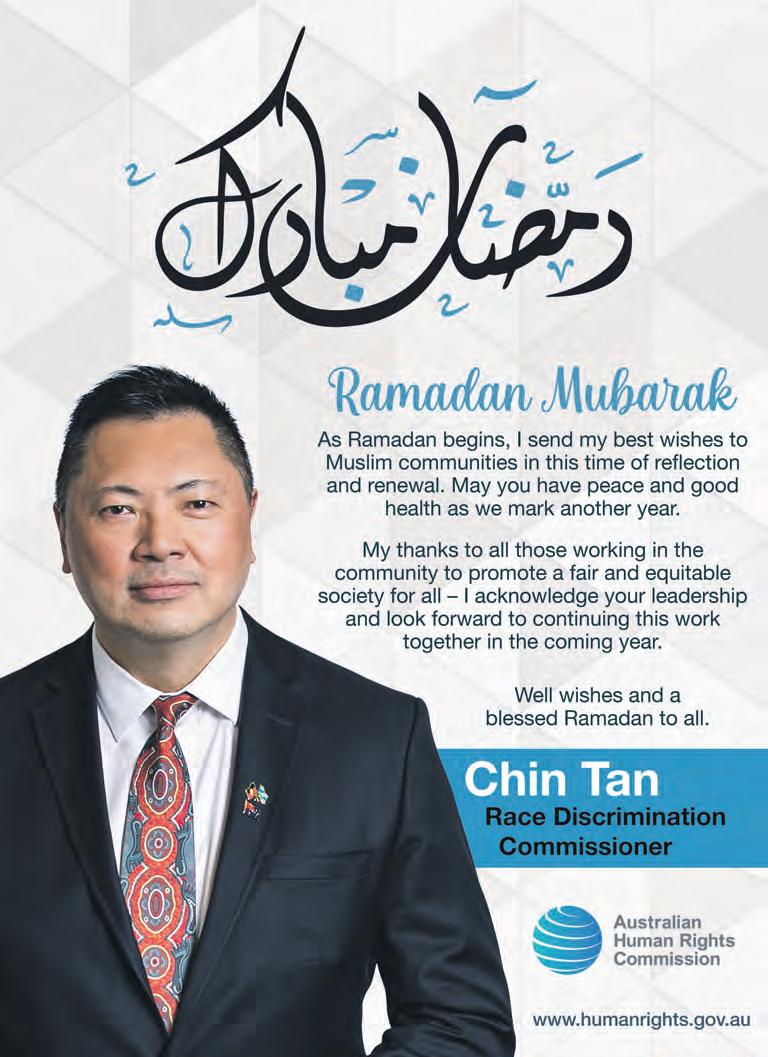
The report is an important tool in understanding how Islamophobia manifests in Australia and the impact that it has on Australian Muslims, who make up the second largest faith group in Australia.
The event, held at Old Parliament House in Canberra, was emceed by our Executive Director Sharara Attai, and featured an impressive line-up of speakers including Minister for Immigration and Multicultural Affairs Andrew Giles, Minister for Youth Dr Anne Aly, Deputy Leader of the Australian Greens Senator Mehreen Faruqi and Senator Fatima Payman.
The Register also hosted an informative and engaging panel discussion featuring Minister Anne Aly, Kylea Tink MP, and
Sally Sitou MP, facilitated by the Register’s Founding Chair Mariam Veiszadeh.
During the event the Register played a report campaign video, that talked about the work of the Register and the report’s findings.
Another feature of the event which was very popular among attendees was the launch of the Register’s ‘interactive map’ which was created by the Spatial Data Analysis Network and Charles Sturt University.
This is a map of Australia that has a pinpoint for each Islamophobic incident reported from 2014-2021. When a user clicks on a pinpoint it will open and provide details regarding that specific incident.
Both the report campaign video and the interactive map has been posted to the Register’s socials and is also available for viewing on its website www.islamophobia.com.au.
The event was live-streamed on Instagram and Facebook and those who missed it can still view the recorded live-stream on the Register’s socials.
There were also lots of opportunities for networking and mingling. All who attended had a fantastic time.
Fundraising campaign
On 15 March 15, on the International Day to Combat Islamophobia, the Register also launched a fundraising campaign to raise funds for the continuation of the Register’s vital work.
As a small not-for-profit with a big vision, the Register desperately needs funds to continue and expand upon its crucial work of tackling Islamophobia. The fundraising campaign will end soon so please head to our fundraising page https://tinyurl.com/9b655z3r and give generously.
Sabreen Hussain is a final year ARTS/LAW student at UNSW and is the Legal Advocacy Officer at the Islamophobia Register Australia.
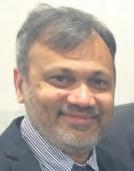
Medical students and junior doctors from across New South Wales and beyond gathered online on Sunday 5 March 2023, for a valuable opportunity to receive advice on research projects, gain career guidance, and network with other professionals.
The Australian Islamic Medical Association (AIMA) hosted the online event and featured an Interactive Panel Discussion with AIMA Mentors. The event was attended by over 50 medical students and junior doctors across New South Wales and other parts of Australia.
The program started with a recitation of the Holy Quran by Dr Muhammad Ashraf, the AIMA Secretary followed by a welcome by Dr M Afzal Kahloon, a senior Urologist based in Canberra, ACT, and AIMA’s National President, who also provided a brief overview of AIMA’s activities and the event’s purpose.
The facilitator, A/Prof Habib Bhurawala, Head of Paediatrics at Nepean Hospital in Sydney, welcomed all the participants and invited the mentors to introduce themselves and speak about their journeys as medical students and junior doctors.
The panel members included A/Prof Suleman Qurashi, an Orthopaedic Surgeon; A/Prof Faruque Riffat, an ENT/Head and Neck Surgeon; Dr Yusuf Sediqi, an ED Physician; Dr Rabbia Haider, an Endocrinologist; Dr Samia Kazi and Dr Faraz Pathan, Cardiologists; Dr Fariha Dib and Dr Ali Raza, General Practitioners, all from Sydney.
The diversity of the panelists’ backgrounds and areas of expertise made for an engaging and informative discussion that was highly
valued by all the attendees.
The event generated a lot of interest, with many questions from participants on balancing faith, study, and family commitments and inquiries about career guidance and the different training pathways available. The panelists provided insightful answers and practical tips, which were greatly appreciated by the attendees.
Dr Bhurawala informed the participants that AIMA plans to host a national conference on Sat 13-Sun14 May in Sydney with the theme of “Past, present and, future of health.”
The conference will feature several well-known national and international speakers who will discuss topics ranging from medieval Islamic medicine and its impact on modern medicine to the future of health, including digital health and artificial intelligence in medicine and healthcare.
Dr Bhurawala invited everyone to register early for the conference on AIMA’s website https://aimamed.com.au/ nc2023-2/
The event concluded with a brief supplication (dua), and the panelists expressed their enthusiasm to hold more such events.
Overall, the event was a great success, highlighting the importance of mentorship and networking for medical students and junior doctors. AIMA’s commitment to providing these valuable opportunities for its members is a testament to its dedication to supporting and promoting excellence in the medical profession.
More information about AIMA’s previous activities and future programs is available on www. aimamed.com.au
Dr Habib Bhurawala (MBBS MD FRACP DCH) is a consultant general paediatrician currently working at Nepean & Blue Mountains hospitals in Sydney. He has a strong interest in community work, especially health education/promotion.
Gulhan Eryegit Yoldas
The Islamic Schools Association of Australia (ISAA) hosted the Inaugural Executive Leadership Retreat in an intense two days of workshops, keynote speeches, networking and collaboration on Friday 3 and Saturday 4 March at Al Siraat College in Melbourne.
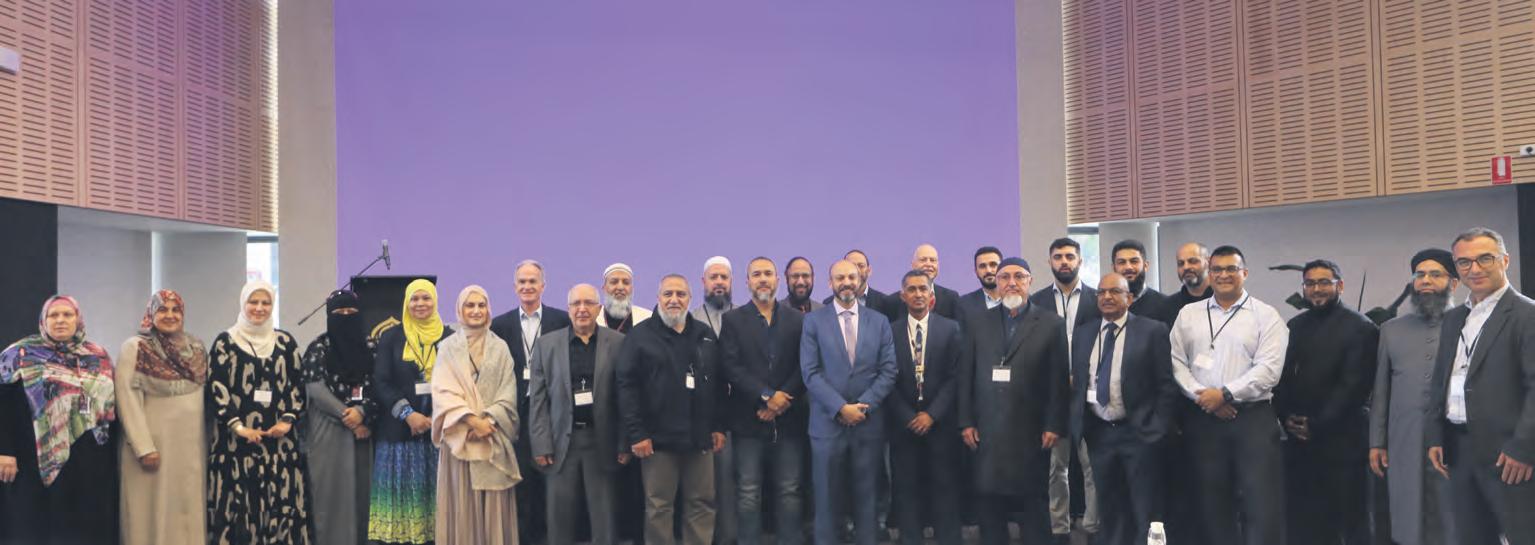
The retreat was attended by principals and executive leadership teams from over 20 Islamic schools across Australia.
The program began with a Qur’an recitation followed by a welcome speech by Mr Abdullah Khan, ISAA President and the Executive Principal of Australian Islamic Colleges in Perth.
Mr Khan stated that, “The ISAA Executive Leadership Retreat was developed so member and non-member schools could join together and come up with new and innovative ideas, share ideas for improving the Islamic schooling sector in Australia, for strategic planning and to build capacity in terms of leadership.”
Mr Fazeel Arain, Co-founder and Principal at Al Siraat College, gave a welcome
speech for guests, many who flew in that morning, stating, “It’s a humbling experience to have you all here. This retreat was once just a thought in someone’s mind. Allah SWT has given the human being two very powerful faculties; one is the power to think and the other is the power to act. It’s our thoughts that allow our actions to happen. This is a forum of thought leadership and unlocking our schools potentials to work more closely with each other.”
The first keynote speaker was Professor Jim Watterston, Dean and Enterprise Professor of Education Systems at University of Melbourne who gave a very insightful speech on the proactive reforms necessary in preparation for School Education in 2030 and beyond.
Professor Watterston challenged the executive leaders to consider, “If we’re going to solve education issues within your schools and within Australia then we need to think about how do we change the paradigm? How do we change what is embedded in Australian education?”
President of Islamic Council of Victoria (ICV), Mr Adel Salman, the second keynote speaker, presented on the topic of Upholding the Religious Ethos Challenge for Islamic schools, focusing on the Australian Law Reform Commission’s recommendations and the review of exemptions affecting
Naveed Mohammed
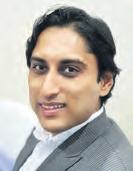
The Bluesky Cricket Cup 2023, held a few days ahead of the Harmony Week in Australia was more than just a sporting event highlighting that Sports can unite people of all backgrounds and celebrate diversity, multiculturalism, and harmony.
The tournament was conducted on Sunday 26 February and Sunday 5 March 2023 and brought together people from various ethnicities, including Haryanvis, Gujratis, Mumbaites, Hyderabadis, Chennaites, Nepalis, Pakistanis, Sri Lankans, Bangladeshis, Afghans, and mainstream Australians.
The teams that participated in the tournament showed remarkable sportsmanship, making the event even more exciting.
The success of the Bluesky Cricket Cup 2023 is a testament to the power of sports in fostering a sense of harmony and unity. Playing a sport not only helps individuals improve their physical health, but it also teaches valuable life skills such as team-
work, dedication, and perseverance.
Moreover, playing a sport helps individuals develop a sense of community and belongingness, especially when they play with people from diverse backgrounds. It allows individuals to celebrate differences and appreciate cultural nuances, thus promoting mutual respect and understanding.
The finals was conducted on Sunday 5 March between Cheetah’s XI and Bluesky Riders. Cheetah’s XI was the winning team and Asad Warraich emerged as the best player of the tournament.
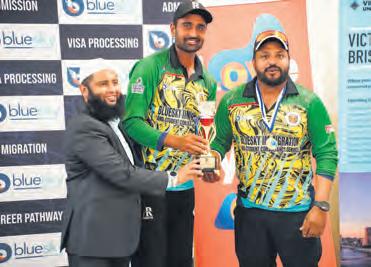
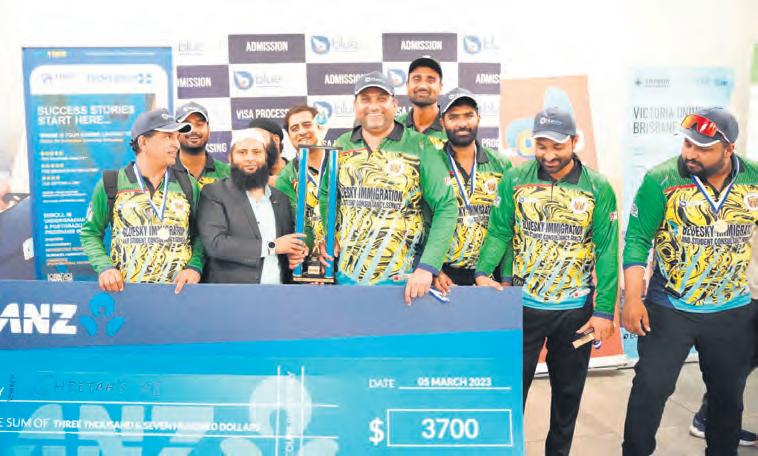
The Bluesky Cricket Cup 2023 is the initiative of the CEO of Bluesky Immigration & Student Consultancy Services, Mr Shayaz Khan and his organizing team. It is not just a tournament, but a celebration of Australia’s diversity.
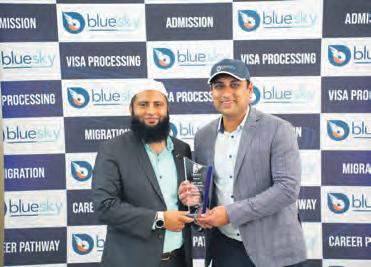
The tournament would not have been possible without the support of the sponsors and individual contributors, in particular Naveed Mohammed, Mudabbir Hussain, Khabeer Khateeb and other volunteers.
The outstanding performance of the players, along with the hard work, dedication, and sportsmanship they exhibited, truly made the event a grand success.
The Bluesky Cricket Cup 2023 is a great example of the significance of sports in pro-
religious institutions.
Mr Salman presented on what Islamic schools in Australia can do and what practical steps they can take to mitigate these laws. He discussed the importance of coordinating efforts with other Islamic and faith based schools in collaboration with ISAA, raising concerns with authorities, applying holistic recruitment strategies and educating the school community.
Mr Salman stated that, “It is vital that schools incorporate Islamic pedagogy into their entire curriculum.”
During the Table Talk sessions, facilitated by Mr Don Walkley, Manager of People & Culture at Al Siraat College, executive leaders had an opportunity to discuss what is currently on the agenda for their schools.
This session uncovered a range of opportunities for collaboration.
The group prayed Jumuah together.
Ms Zainab Rida, College Co-Captain at Al Siraat College made a speech. Mr Fazeel then presented on the topic of Leadership from an Islamic Perspective, Influence of Leadership and Measuring our Impact.
Day two featured a panel discussion with Mr Osama Akkad, College Co-Captain Al Siraat College, Ms Rahat Arain, Co-Founder & Director Curriculum Learning & Innovation ASC, and Ms Aynur Simsirel, Principal Consultant at Independent Schools
Victoria. Mr Abdullah Khan asked provoking questions from the panel on leadership in Islamic schools.
Topics including post-COVID staff recruitment and retention strategies, leadership essentials for Islamic school leaders, and current projects were also discussed.
The plenary speech was made by Mr Mohamed Elbotaty, Head of Primary Years at Al Siraat College, while Mr Abdullah Khan, sought feedback from attendees and delivered a closing speech. Shaikh Waseem made the closing Duaa.
Al Siraat College Media students Zayn and Abdulsalam captured the event highlights for media coverage.
The Annual ISAA Executive Leadership Retreat is hosted at a different Islamic school each year. Principals and executive leadership teams from all Islamic schools in Australia are welcome to participate.
Gulhan Eryegit Yoldas is the president of Whittlesea Interfaith Network and Head of Community Engagement at Al Siraat College. Gulhan has four published books and a robust history of advocacy for gambling industry reform, Interfaith engagement, Muslim female leaders and mentoring young people to be spokespeople for their community.
moting harmony and unity among people from diverse backgrounds. It is a reminder that playing a sport can not only benefit individuals but also brings people together.
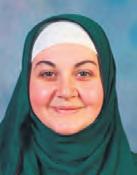
Queensland is hosting the 6th Annual Ramadan Quran Competition-2023. This much-awaited event started on Saturday 11 March at the West End Mosque in Brisbane. The competition will take place in ten locations across the state, from Toowoomba to Mackay, and will end on Saturday 8 April with the final event at the Slacks Creek Mosque in Logan, known for its multicultural community.
With the generous support of Brisbane business enterprises, the Islamic Practice and Dawah Circle (IPDC) are the organisers of this event, which is now in its sixth year. Nearly 500 young boys and girls are competing in four different categories, with participation numbers increasing each year.

The inaugural event was graced by Professor Dr Azharul Karim from the Queensland University of Technology (QUT). At the start of this distinguished event, IPDC Queensland President Mr Mohammad Zahid Hossain stressed the importance of this competition in reviving and flourishing the next generation of Queensland Muslim youths by connecting them with the Quran at the beginning of the holy month of Ramadan.
Imams and Islamic scholars run and judge the competition, and community members are excited about the event.
The Annual Ramadan Quran Competition-2023 is a celebration of faith and spirituality, highlighting the vibrant and diverse

community in Queensland. The event also aims to strengthen the bond between the Muslim community and the broader community in Queensland.
With the increasing number of participants, this year’s competition promises to be an exciting and memorable event for everyone involved. Aside from the Quran competition, there are other creative contests, such as writing essays and making videos based on a theme, to encourage creativity and cultural understanding among community members.
Don’t miss out on the Annual Ramadan Quran Competition-2023, which is a testa-
Fazlul Huq
Body of the desert mountains held at a near distance hued in faded blue and ash, brown and grey, is seen to have the high mount made on the far left.
As the high mount remains covered with snow and ice to have the dress code made in white and grey.
As the lake held in front colored in azure is seen to gain in width on way from left to the right.
While the widened foreshore covered with sands and fragmented rocks has the dress code made in pink and grown.
ment to the thriving Muslim community in Queensland. This competition gives young Muslim students a great chance to show off their skills and show how well they know the Quran. It also serves as a platform for the community to unite, celebrate, and appreciate Islam’s rich culture and spiritual approach.
Zerrin Afza is a doctoral student researching intergenerational patterns of Islamic knowledge transmission and religiosity in Queensland at the University of Queensland.
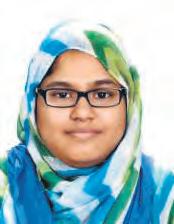
As it remains laid with ball shaped tufts of grass colored in brown and red.
Dr Fazlul Huq is a retired academic and Editor-in-Chief Emanreserch Journal Of Angiotherapy. He is also the poet “Jujube” at Allpoetry. com with over 35,000 compositions.
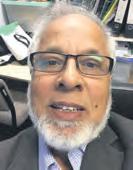 Minister for Immigration, Citizenship and Multicultural Affairs Member for
Minister for Immigration, Citizenship and Multicultural Affairs Member for
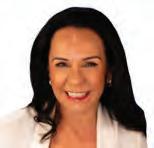
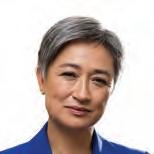

 Minister for the Environment and Water Member for Sydney
Minister for the Environment and Water Member for Sydney
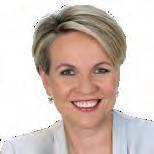
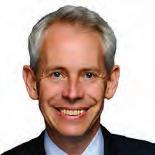

 Matt Thistlethwaite Assistant Minister for Defence Assistant Minister for Veterans’ Affairs Assistant Minister for the Republic Member for Kingsford Smith
Matt Thistlethwaite Assistant Minister for Defence Assistant Minister for Veterans’ Affairs Assistant Minister for the Republic Member for Kingsford Smith

We wish you and your family a happy and blessed holy month of Ramadan!Authorised by Paul Erickson, Australian Labor Party, 5/9 Sydney Ave, Barton ACT 2600 Anthony Albanese Prime Minister Member for Grayndler Richard Marles Deputy Prime Minister Minister for Defence Member for Corio Penny Wong Minister for Foreign Affairs Senator for South Australia Linda Burney Minister for Indigenous Australians Member for Barton Andrew Giles Scullin Tanya Plibersek
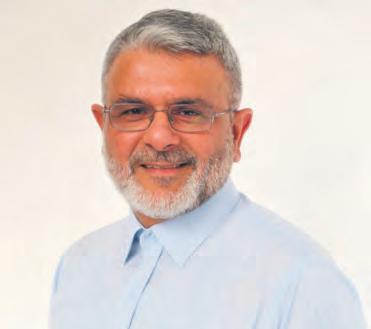
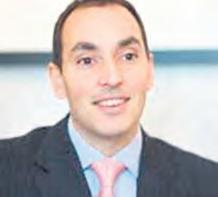
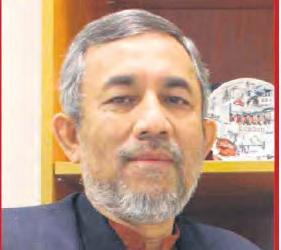
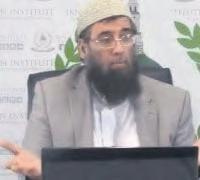
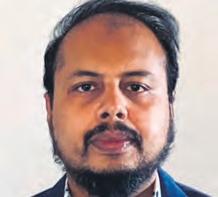

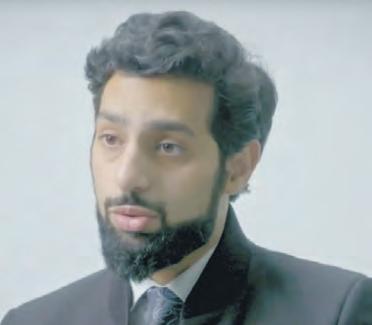
The Australian Islamic Medical Association (AIMA) is set to hold its inaugural National Conference in Sydney on Saturday 13 and Sunday 14 May at the Bryan Brown Theatre and Function Centre in Bankstown. This event promises to be the largest gathering of Australian Muslim healthcare professionals, including senior and junior doctors, as well as medical and other health discipline students.
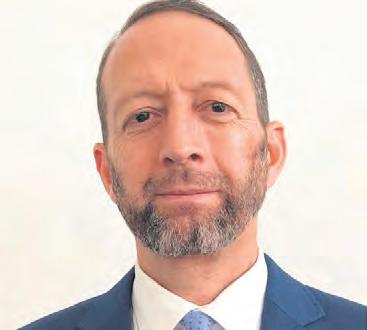
The theme of this year’s conference is “The Past, Present and Future of Healthcare.” Renowned international speakers as well as local speakers from various medical backgrounds will be presenting on topics that are of great importance to the Muslim community’s health and wellbeing, as well as the history of Islam and medicine.
The conference program features a diverse range of topics critical to advancing clinical practice. These include exploring
the future of Australian Muslim healthcare, the history of medicine in the Islamic world, an Islamic perspective on end-of-life care and building a global network of Islamic Medical Associations.
Other topics include navigating organ donation, clinician emotional well-being, and the role of genomic testing in cardiac disease and carrier screening. These discussions promise to be informative and engaging for conference participants.
In addition to the informative sessions, the conference will also provide opportunities for networking where the participants will have the chance to meet with like-minded individuals, share ideas, and make new connections.
The conference registration fee includes a mid-morning refresher, a sandwich/wrap lunch, and an afternoon refresher (Halal) on both days of the conference.
A networking dinner will also be held on the evening of Saturday 13 May, after the conference closes for the day. Spouses or
other guests for the dinner can register for a fee.
Early Bird registrations are open with special pricing for trainees and allied health, specialists (Including GPs) and students.
Prayer facilities will be available throughout both days of the conference and AIMA has negotiated a discounted rate for accommodation at Rydges Bankstown including family rooms and interconnected room rates. An accommodation booking link will be emailed to registered participants to book accommodation.
Sponsor spaces are available. If you would like a place for commercial or promotional purposes, please contact: sponsors@aimamed.com.au
The AIMA was established in 2017 as a network of Muslim healthcare professionals who seek to advance public health in Australia and abroad through the implementation of community-based projects. The association aims to provide a platform for Muslim healthcare professionals to connect,
learn, and collaborate, and the Inaugural National Conference is just one of the many ways they are working towards this goal.
AIMA’s Inaugural National Conference is a must-attend event for healthcare professionals, students, and anyone interested in advancing public health in Australia and beyond. With an impressive lineup of speakers, informative sessions, and networking opportunities, this conference promises to be an unforgettable experience.
Participants may be able to claim RACGP CPD points.
Register online at https://forms.gle/L96XcyM3zYE6sVqG7
Learn more: https://aimamed.com.au/nc2023-2/ Register now to secure your spot and take advantage of the early bird pricing: Visit https://aimamed.com.au to find out more about the Australian Islamic Medical Association and their mission.
Read more about the speakers at [link]
Register: aimamed.com.au/nc2023-2 Participants may be able to claim RACGP CPD points.

Medicine: an exercise of the imagination
Dr
Matthews
Jurists on Assisted Reproductive Technology and Reproductive Tissue Transplantation
Healing with Heart and Faith: Prophetic Lessons for Muslim Healthcare professionals
Building a Better World: FIMA’s Global Network of Islamic Medical Associations
Breaking Down Barriers: How Muslim Healthcare Professionals
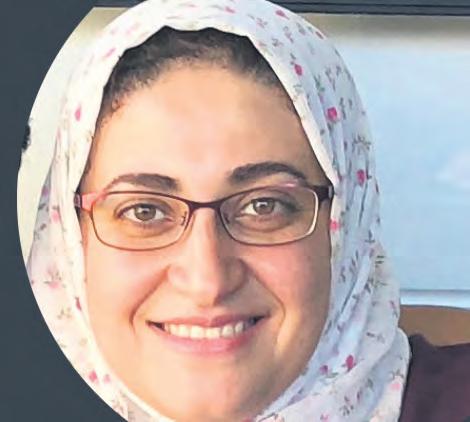
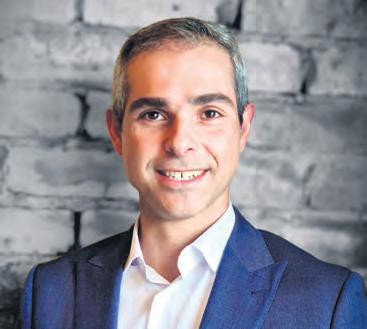
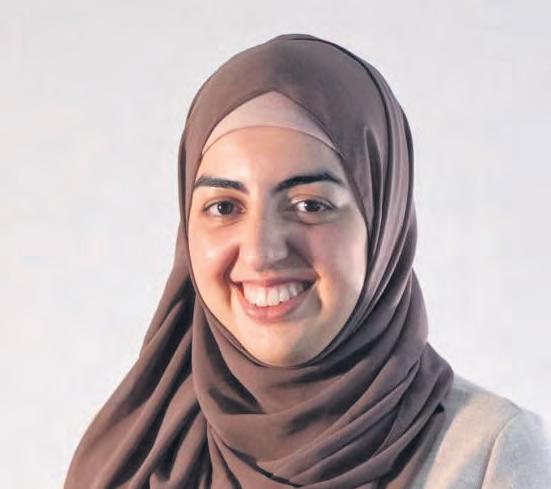
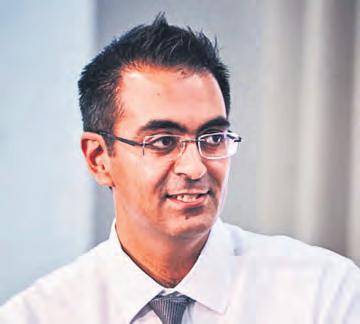
Build Bridges and Drive
in Healthcare
Surviving!
The Gift of Giving: Navigating the organ donation process in Australia
Dr
From Preconception to Precision Medicine: The Power of Genomic Testing in Carrier Screening and Diagnosis
Sydney’s Rosehill Gardens was the venue for a grand congregation of over 1500 members of the Islamic community on Friday, 25 February 2023, with Maulana Haji Imran Attari, Nigran-e-Shura of Dawat-e-Islami. Nigran-e-Wales UK, Syed Fuzail Raza and Haji AbdulWaheed Attari, and Nigran-e-Shura of Australia, New Zealand and Fiji also attended the event.

Maulana Imran Attari is a world-renowned Islamic Scholar who has been the Head of the Central Advisory Board of Dawat-e-Islami for around 18 years. He joined Dawat-e-Islami in 1992 as a local volunteer. He was appointed as the Head of the Central Advisory Board by His Eminence Maulana Ilyas Qadiri in 2002.
Dawat-e-Islami is a non-political, non-profit Islamic organisation based in Pakistan with a global presence in over 100 countries. The organisation has various departments focused on different aspects of Islamic education and community service, including education, health, social welfare, and spreading the message of Islam.
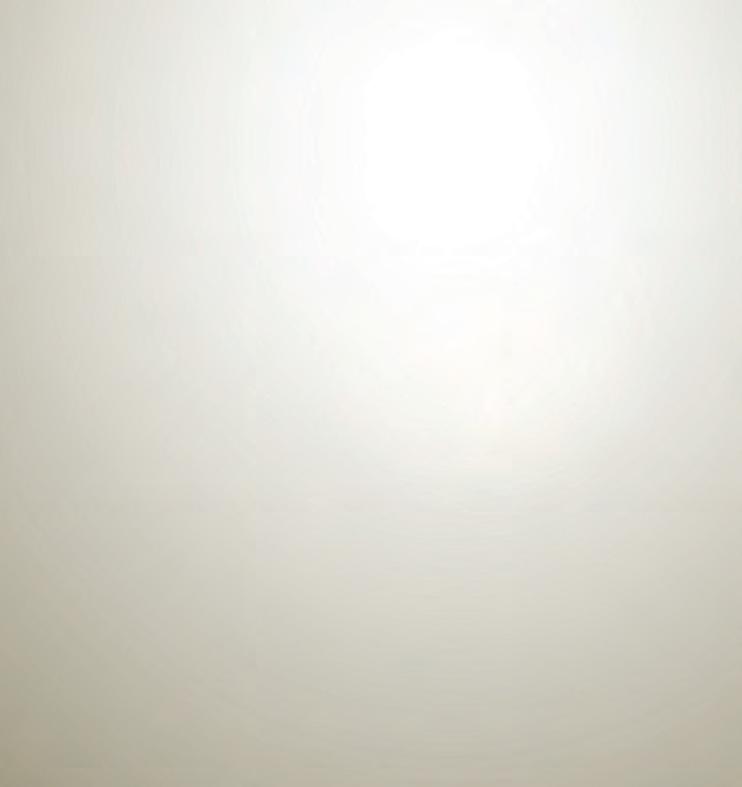
The organisation aims to promote the teachings of Islam and the Prophet Muhammad (s) through various educational and spiritual programs. It seeks to encourage individuals to improve themselves and their communities by following the basic principles of Islam. Dawate Islami also has a strong presence in the area of social welfare. The organisation’s department of social welfare runs various programs focused on poverty alleviation, healthcare, and disaster relief.
Faizan Global Relief Foundation (FGRF) is a non-profit organisation that operates under the auspices of Dawate Islami. The foundation is dedicated to providing humanitarian aid and support to those in need worldwide,
regardless of race, religion, or nationality. FGRF operates various programs in different countries, including Pakistan, Bangladesh, Somalia, Ethiopia, and Yemen.
These programs include providing food, clean water, medical care, and education to those in need. The foundation has also done relief work in disaster-affected areas, such as earthquakes, floods, and tsunamis. FGRF has also established schools, hospitals, and orphanages in various countries to provide long-term support to disadvantaged communities.
Dawat-e-Islami has been active in Australia for several years, strongly focusing on Dawah (invitation to Islam) and educational activities. The organisation has established several centres across Australia, including Melbourne and Sydney, where individuals can learn about Islam and engage in community activities. Regular Quran classes, Sun-
The Holy Month of Ramadan is a time of fasting, prayer and charity and is a reminder of the important contribution Australian Muslims make in our community. As we welcome the beginning of Ramadan this week, I wish all Muslims the very best for a Blessed Ramadan.
day schools for children, and online teaching sessions are also organised by Dawat-e-Islami Australia.
In addition to educational activities, Dawate Islami Australia also organises regular Friday prayers, Tarawih prayers during Ramadan, and Eid prayers at multiple locations across Australia.
During the event, Haji Imran Attari ex-
plained Dawate Islami’s vision, purpose, and activities in detail, highlighting the organisation’s commitment to improving the lives of individuals and communities through religious education and spiritual development. He also discussed future projects planned for Australia, seeking support from community and business leaders in current and future initiatives.
The attendees were encouraged to follow the basic principles of Islam, which include believing in the oneness of Allah, performing salahs\ regularly, giving charity, fasting during Ramadan, and undertaking the pilgrimage to Mecca. Haji Imran Attari emphasised the importance of avoiding bad deeds, using our precious time in beneficial activities, living in harmony with each other, supporting each other, and helping good causes by giving charity.
Nigran-e-Shura highlighted the role of Dawat-e-Islami during the recent earth quack in Turkey and Syria, where volunteers from Dawate Islami were at the forefront of relief efforts, especially in Turkey, where Dawat-e-Islami has already established several centres undertaking a range of religious and humanitarian relief activities.
The event concluded with dua, and a packed dinner was provided to all attendees.
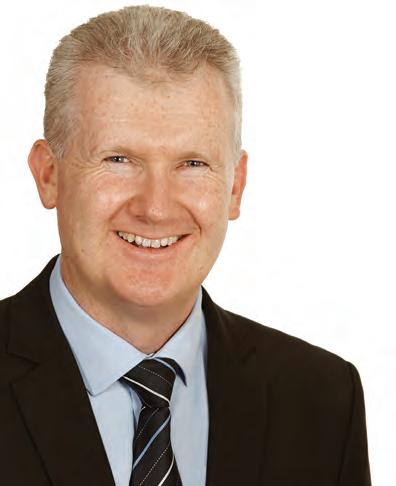
John Mahoney
Tuesday morning 7 March saw NSW Multiculturalism & Seniors Minister the Hon Mark Coure MP as the special guest of the Lebanese Muslim Association at a walk-through of its recently acquired specialist aged care facility in Bankstown.
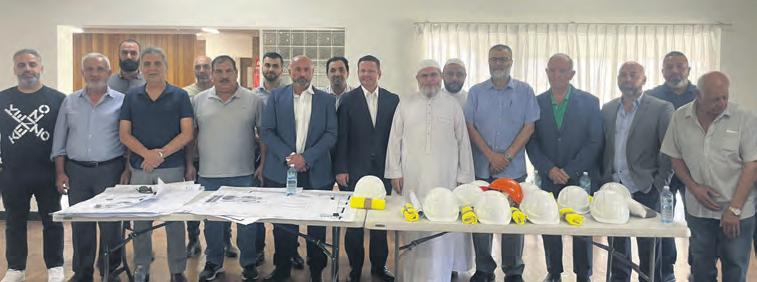
The LMA announced the purchase of the massive (6,040 sqm) site in June 2022 and major renovations will be taking place at the complex over the next several months.
It is anticipated that the LMA will welcome the first intake of aged care residents to the centre later in the year.
The purchase of the property at 65 Dutton St is in keeping with the LMA board of directors’ focus on developing and improving services for the betterment of our entire community.
Since being elected in late 2021, the current board has been extremely proactive, and as well as the Bankstown purchase, the LMA is also currently committed to several other major initiatives, including the following:
• A multimillion-dollar upgrade of Lakemba mosque and its grounds as well as the LMA Islamic Funeral Services and the LMA services building (which houses the administration offices, events hall, library and other facilities including a Qur’an College and gymnasium). Infrastructure repairs and upgrades are needed to support the capacity and delivery of the LMA’s services to the Muslim and broader community.
• A 1,524 sqm complex at 243a Hume Highway Greenacre acquired by the LMA in late 2022 comprising 20 studio apartments will be renovated and used to house disadvantaged and vulnerable members of our community.
• Moving forward to develop a site in Lakemba where a boarding house currently stands to provide affordable housing. The construction certificate is in the process of being issued.
• NDIS is to become a major focus of the LMA from this year: in-home and out-ofhome care, community participation, respite and accommodation facilities. Delivering practical and diverse programs while maintaining respect towards cultural and religious values.
• Its very own charitable arm Feed The World – which the LMA has incorporated into its existing business model, virtually from scratch. Funds raised by Feed The World go towards the organisation’s international charity efforts which in 2022/23 have included the likes of Palestine, Pakistan (flood relief), feeding the poor in Lebanon (the LMA sent a special team to the coalface ) and Türkiye and Syria (earthquakes).
The LMA was also very proud to recently announce the introduction of the Al-Azhar Project, where full and part-time courses are now available to Shariah students looking to obtain an Azhari College degree through the branch of Azhar, Lebanon and recognised by the iconic Al-Azhar Univerity in Egypt. Students have the option of participating in the course virtually as well on campus.
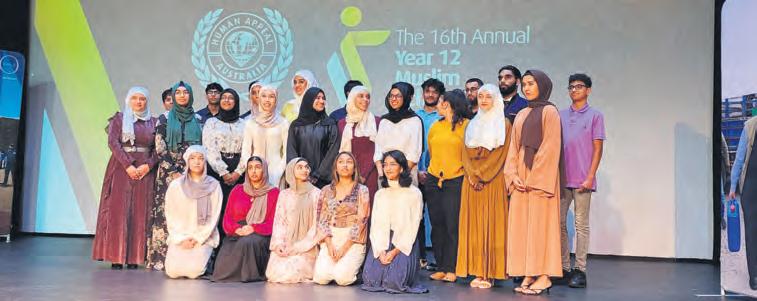
Human Appeal Australia hosted its 16th Annual Year 12 Muslim Achievement Awards during gala events late February/ early March in all major cities of Australia recognising increasingly high number of students who excelled in year 12.

The high-achieving students were awarded certificates of achievement and valuable gifts in front of community leaders, politicians, school principals and administrators in Adelaide, Perth, Brisbane, Melbourne and Sydney where an incredible 422 students achieving ATAR of 90 and above were recognised.
On Sunday 5 March, the award ceremony in Sydney recognised a record number of 235 students at the Highland venue in Bankstown.
The ceremony was opened with the heart-warming recitation of the Quran by Sheikh Khaled Zraykah and co-MC’d by Omar Al-Jamal and Raghda Assoum.
Human Appeal Australia’s Director, Bashar Al-Jamal welcomed guests, expressing his delight at the achievements of an increasing number of Muslim HSC students every year.
A video clip showcasing the achievements and the services rendered to the global community of HAA was displayed on the big screen followed by speeches by Jihad Dib MP, State Member for Lakemba; Leadership Umrah Tour Participant, Omar Alzeidat and by Imran Abdu from James Ruse Agricultural High School who achieved amazing ATAR of 99.85.
The event was also attended by Wendy Lindsay MP, Member for East Hills; Sophie Cotsis MP, Member for Canterbury; Clr Bilal El-Hayek of Canterbury Bankstown City; Dr Ali Kraishan, Ambassador of the Hashemite Kingdom of Jordan and Dean of the Diplomatic Corps in Australia and Mr Izzat Salah Abdulhadi, the Head of the General Delegation of Palestine in Australia.
Mr Al-Jamal talked about the devastating earthquakes that struck central Türkiye and Syria and witnessed dozens of young people who have volunteered each day to help victims of the earthquake.
“I was just in Turkey and Syria just two weeks ago, visiting the people affected by the earthquake and delivering aid. What I saw was destruction beyond what you can imagine. Yet I saw something which eased my heart. I saw people, in particular the youth, working hand in hand with their elders to help one another. To help each other get through these tough times. That is what we expect from you my dear High Achiev-
ers. We want you to continue excelling in your respective careers however, you must give back. Be there for others in their time of need. You must give back to the community that you are a part of. That is where true excellence lies”, Mr Al-Jamal said.
Year 12 Muslim Achievement Awards night in Adelaide was held on the Saturday 25 February at Stamford Grand Hotel, honouring 14 High Achievers.
MC Yahya Ahmad welcomed Human Appeal’s State Manager Ali Kadir who acknowledged the high achievers and outlined the amazing work Human Appeal has been doing over the years, locally and overseas.
Hon Blair Boyer, the Minister of Education, spoke on the ethics of success while the audience was also addressed by Sheikh Mohammed ElSayed, Amer El-Hosni and Abdul Salam Hamid Juma, Human Appeal Umrah leadership participants.
The event was also attended by Hon Laura Henderson MLC Opposition Whip, Shadow Assistant Minister to the Shadow Attorney-General; Hon Stephen Patterson MP and Hon Reggie Martin MLC and many family members of high achievers.
The Highest Achiever in Adelaide was Miss Adeena Zafar with an ATAR of 99.45. It was a celebration where leaders of the community and politicians celebrated the achievements of amazing Muslim students in year 12.
On Sunday 26 February, the Year 12 High Achievers Awards event took place at Duxton Hotel in Perth with 37 Muslim High achievers celebrating their achievement of scoring an ATAR of 90+.
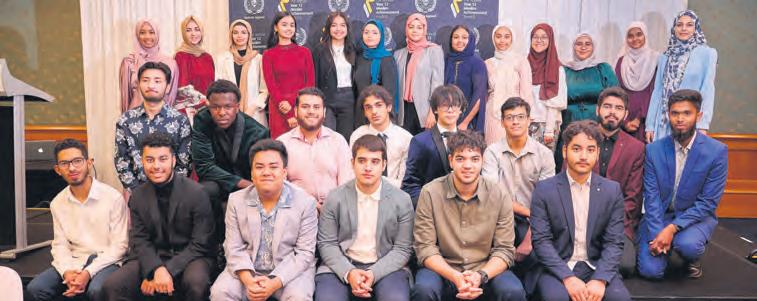
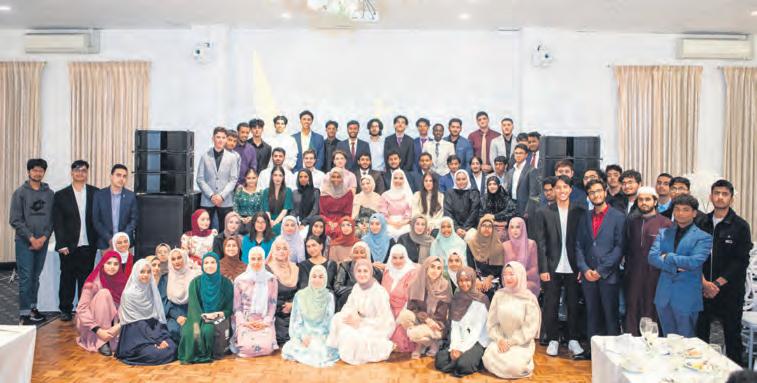
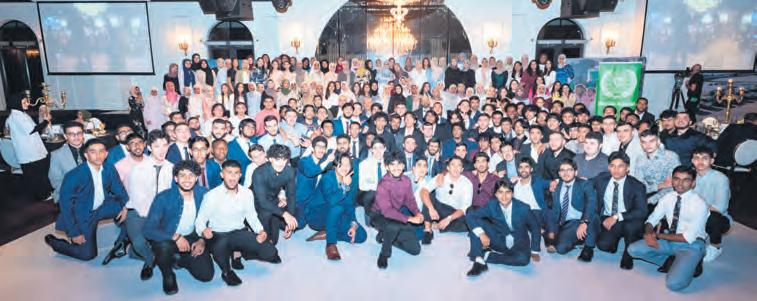
Ms Huda Zaidi from Perth Modern School the highest achiever with an ATAR of 99.85%, gave an inspiring speech during the event about her journey, the challenges that Muslim students go through and their important role within the Australian com-
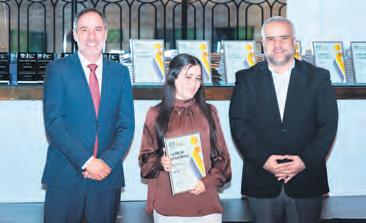
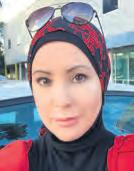
munity.
MC Amira Suraya Nunn welcomed guests, officials, community leaders as well as School principals and sponsors.
Senator Fatima Payman gave a great engaging speech that was positively received by the attendees. She shared her journey, gave the students advice based on her experience and highlighted the important role of representing the Muslim community and giving back to Australia.
The night was also attended by the Hon Mayor of Gosnells Terresa Lynes; Councillor Sara Saberi, City of Canning, Beeloo Ward; Inspector Tara Wood, the Team Leader of the WA Community Liaison team from AFP and A/F Paul Stewart, DC (Ret), Lt. Col. (Ret) Ibrahim Latheef the strategic advisor of the WA Police; Rana Al-Baghdadi, Al-Ameen College Principal; Mohammed Nazar A. Khan, Principal of Kewdale Campus, Mrs Manal Jneid who represented the AFIC’s Women’s Wing in Australia; Dr Nasser al-Ziyadat from Nun Tutoring Centre; Mr Zubair Sayed, President of the Islamic Council of Western Australia; Balli Singh member of the Ministerial Multicultural Advisory Council of Western Australia and other community leaders.
Mr Abdullah Khan-Executive Principal and CEO of Australian Islamic College made a speech that resonated well with the audience and shed light on the efforts that parents and schools invest in future leaders and how Islamic schools managed to gain a prestigious place amongst the top schools in WA.
In Brisbane the event was held on Friday 3 March, honouring 38 students and was attended by students along with their parents, members of the community, politicians and school principals.
The event was MC’d by Masrur Alam & Nishat Siddique with a heart-warming wel-
come from Bashar Al-Jamal, Director of Human Appeal Australia.
Several videos were shown at the event including Video Message by The Hon Cameron Dick MP State Treasurer of QLD, Minister for Trade & Investment and a moving speech from Janeth Deen OAM who received the Order of Australia in June 2018 for outstanding work in the Multicultural community, as she spoke about the history of Australia and the progress that has been made to improve human relations and the contributions of the multicultural communities in Australia.
Other speakers included Imam Akram Buksh, Branch Manager of Human Appeal Australia in Queensland, Br Farouk Adam, President of Muslim Business Council; Dr Abid Majid, Secretary of IMAQ; Mr James Martin MP Member for Stretton; Clr Jon Raven; Logan City Council; Br Fattihan Aslantas’ Umrah Tour Participant; Sheikh Alaa Elsayed, guest speaker from Canada; Saosan Hoque, a student with ATAR 99.99 and Mashrafee Mamun, a student with ATAR 99.90
On Saturday 4 March, the 16th Year 12 Muslim Achievement Awards for the state of Victoria was organised in Melbourne at Laila Reception Centre in Brunswick and was attended by students, members of the community, politicians, school principals and family members. The event acknowledged 97 students, awarded certificates of recognition and gifted them with iPads. The highest achiever was Alishba Saeed with an ATAR of 99.95.
The ceremony was opened with the amazing recitation of the Quran by Sheikh Abdulla Hawari, Imam of the Virgin Mary Mosque. Human Appeal Australia’s Victorian Branch Manager Rabih Baytie welcomed guests followed by speeches delivered by Dr Samantha Ratnam, MLC for Northern Metropolitan and the Leader of the Victorian Greens, Vivienne Nguyen, Chairperson of Victorian Multicultural Commission and Dr Mohammed Awad.
“I hope students will continue to keep in their faith, language, culture, traditions and share those around and lift this state and nation another notch up on all fronts,”said Vivienne Nguyen.
Award recipients Maryam Al-Gburi and David Apak both delivered eloquent speeches about their achievements and the importance of continuing life-long education.
In attendance were Prof Aladin Zayegh, MCCA; Prof Akhtar Kalam, Chairman of MCCA; Dr Mohammad Mohideen ICV Vice President and a commissioner at VMC and Sheikh Mohamed Nawas, the secretary of the Board of Imams.
Alsu Kurlow is the Community Care Events Coordinator for Human Appeal Australia.
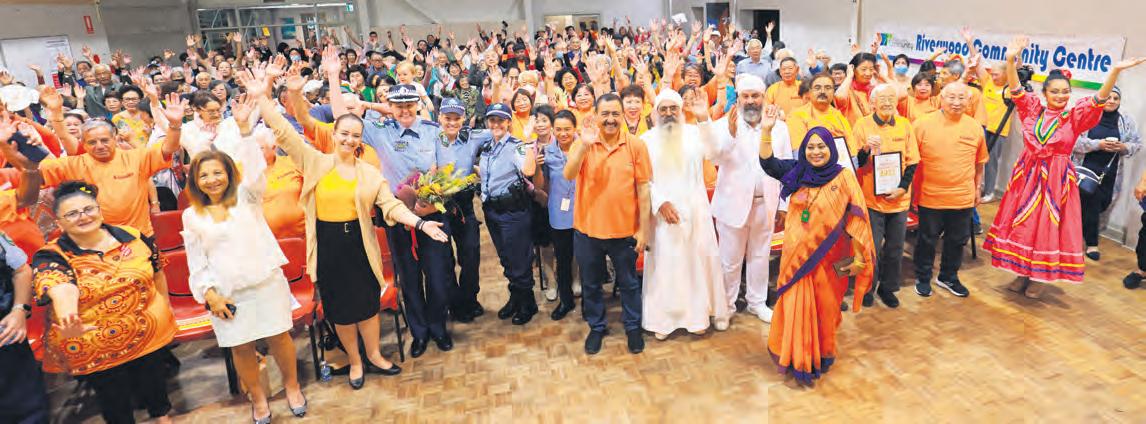
Afraaz Siddiqui
AMUST Media
More than 500 members of the local community from various cultures attended the Harmony Day celebration organised by Canterbury Bankstown Harmony Group and Riverwood Community Centre, at Riverwood Community Centre on Tuesday 21 March 2023 to celebrate diversity, inclusiveness, respect, and belonging for all members of the local community.
Messages were read at the event from Federal, State, and local members of Par-
liament, as well as the City of Canterbury Bankstown Council and the Campsie Police Area Commander, Superintendent Sheridan Waldau.
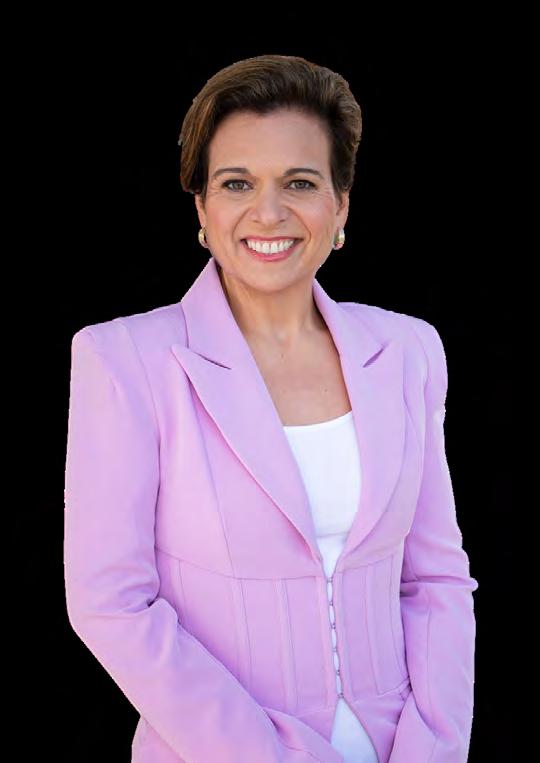
The celebration included a vibrant display of multicultural music and traditional dance performances and from Punchbowl Boys High School, Riverwood Public School Choir, Beverly Hills Girls High School singing performance, and other performances from Greek, Vietnamese, Chinese, Bangladeshi, and Lebanese cultures sharing their rich heritage and traditions with the community.
This year marks the 17th anniversary of
the Canterbury Harmony Group and Riverwood Community Centre.
“I am proud that people from our local community’s many culturally, linguistically, and religiously diverse backgrounds are willing to come together and excited to share their traditions and cultural identity with us all. Harmony Day is the best way for a multicultural community to embrace diversity and encourage connections among different cultures and nationalities,” said Karl Saleh, chairperson of the Riverwood Community Centre and the Canterbury Harmony group.
The mighty pen! Greater than the meanest sword, And man did not battle before he wrote word, For how could he, to the enemy, converse? Lo! Then he would kill not but a measly bird! And mightier still! The sound of ringing speech! Before he wrote word, man would talk with his teeth, From screams of war to songs of happy relief, A gift, and it, to our sons we shall bequeath! And a mightier gift man never could dream, Than the gift of sight, sights both vile and serene, From blood on a spear to rivers, clear and clean, When the pupil sees, it knows what it has seen! The pen, the tongue, and sight: all beautiful gifts: Mighty gifts, riches and treasures we cherish, Gifts given to us, gifts which some sorely miss, Gifts which we must revere, till we all perish.
Afraaz Siddiqui is a Year 9 student in the Brisbane School of Distance Education, who enjoys expressing and sharing his thoughts through poetry.


Australian Labor party (ALP) won the recent NSW election with a plain majority. This news has been taken with great joy and happiness in the local Muslim communities of Riverstone and Marsden Park.




This is due to the fact that during the recent election campaign, various prominent figures of ALP NSW visited and met with the local Muslim population. Those figures included Mr Chris Minns, ALP NSW leader to become NSW premier, Prue Carr who will be deputy premier of NSW, Mr Stephen Kamper, who will be NSW minister for Multiculturalism, Mr Warren Kirby, the elected Labor member of NSW parliament from Riverstone constituency.
All of them had important conversations with various Muslim families and local Muslim leadership and ensured they worked together in future for the community’s good and fulfilling any of their needs.
On one similar occasion, Mr Stephen Kamper, ex-Shadow minister NSW for Multiculturalism, visited the Marsden Park Masjid on 14 March 2023 accompanied by Mr Warren Kirby and Ms Aisha Amjad, a local young and enthusiastic Labor leader.
They had a meeting with local IFAM (Islamic Forum for Australian Muslims) leadership in a bid to understand their works and projects for local Muslim communities and
to develop a good relationship for serving them together in a better way.
From IFAM side Brother Wajahat Rana, Dr Kashif Aziz, Dr Ikram, Brother Ghufran, Brother Azhar Jamil, Brother Saqib Sarfraz, Brother Bilal Mustafa and Brother Usman participated in the meeting and told the guests about various projects that IFAM was undertaking locally to address various issues of important nature for the community.
IFAM members also told them about certain charitable activities like breakfast programs in some socially deprived areas of Sydney, the feed the hungry program to provide food for homeless people of Sydney and the Women’s Support Centre for helping women who face family crisis.
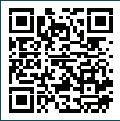
There were also various courses being arranged for women to upgrade their skills, given financial support and well-being pro-
grams for their good Mental health.
Mr Kamper and other visitors were impressed and delighted to know about IFAM as an Islamic volunteer organization working so actively in the community.
The ALP delegation was also told about Marsden Park Masjid and how it was serving the local Muslim population in a great way. There had been large gatherings of Muslims for Friday prayer and there had been two Friday prayers being arranged here due to the large number of Muslims living in the area now.
There were weekly classes, lectures and programs for adults, kids and women. Also, various community events like Ramadan Night prayers and Iftaar, Islamic festivals like Eid prayers and Eid celebrations were being arranged in Marsden Park Masjid.
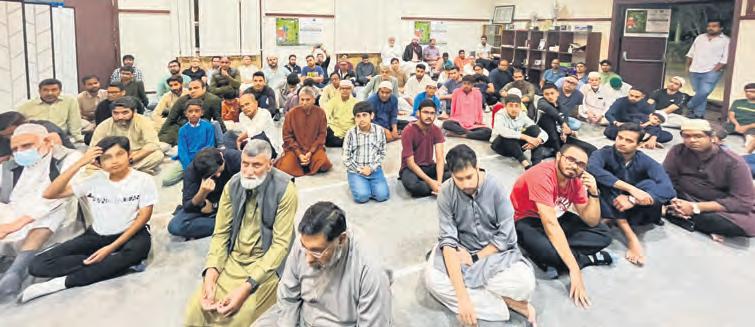
Adults and Kids were regularly coming here for indoor and outdoor sports like table tennis, soccer and more.
Mr Stephen Kamper and those who accompanied him were very pleased and inspired by IFAM activities which were spread in many different parts of NSW and Australia.
He praised and thanked IFAM for working so earnestly for local families and vowed to help IFAM in its projects wherever possible.
For that reason, he pledged to give $150,000 to Marsden park Masjid towards its uplifting programs which would definitely make it a better place for attendees and the Muslim community.
Usman Malik is the MGM of IFAM. He is based in Sydney.
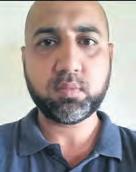








Ms Prue Carr visited Marsden Park Masjid on 24 March 2023 to pay her respect and greet Muslim families for the blessed month of Ramadan.
She was accompanied by Warren Kirby, elected member of ALP for NSW parliament from Riverstone constituency, local councillor Chris, Mr Harish Velji, Labour Project manager TWU (Transport workers union) and Aisha Amjad, Young Labour leader who is actively engaged in local communities.
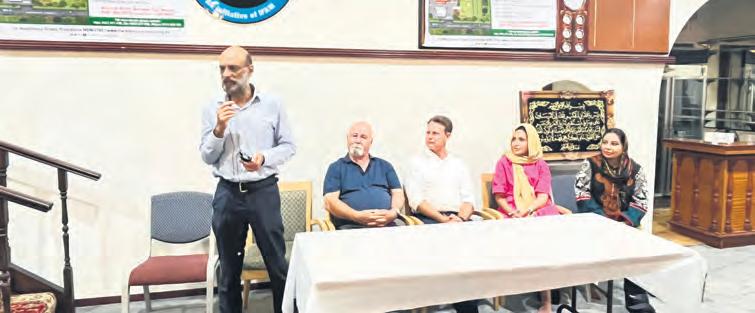
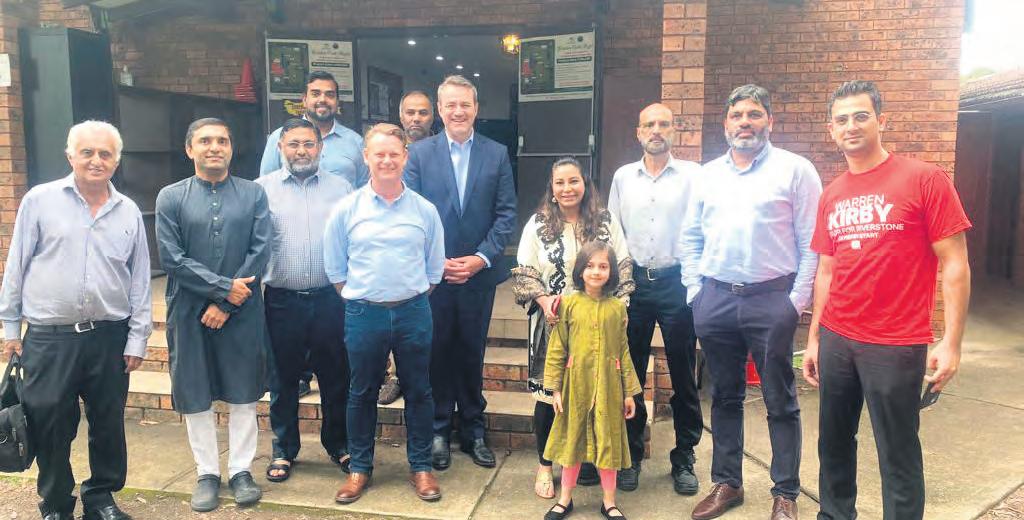
Ms Carr said she knew it was an important month for Muslims all around the world and she was happy to be among local Muslim families to get the feelings and spirit of Ramadan.
She was inspired and greeted Muslims for joining Ramadan with great zeal and vigour.

Mr Warren Kirby congratulated all Muslims for having this holy month of Ramadan and thanked the local Muslim community for inviting them to this important occasion. He said that he was highly inspired by the energies and emotions of the people to celebrate this special time of the year.

ALP leaders vowed to be actively engaged with Muslim communities and would work with them for good causes of the community and its needs.
ALP leaders networked with Muslim families to enjoy the feast and spirit of Iftaar and showed respect and honour for all who finished their fasting at sunset and prayed to God for accepting their good deeds.
A large number of Muslim families had gathered at this occasion, enjoying their traditional foods and the company of their friends and other community members along with the specially invited guests from ALP.
Thea Ormerod my.
During a world-wide Divestment Week of Action initiated by the global Catholic Laudato Si’ Movement, Australian people of faith and their organisations are being encouraged to consider divesting from fossil fuels.
A multi-faith prayer service, held at St Patrick’s Catholic Cathedral, Parramatta on Thursday 9 March as part of the Week of Action was organised by the Australian Religious Response to Climate Change (ARRCC).
Leaders from several faiths participated in the event, including Most Rev Vincent Long OFM Conv, Ven Bhante Sujato, Rabbi George Mordecai, Rev Dr Shenouda Mansour and Ahmet Ozturk, Centre Manager at the Islamic Sciences and Research Acade-
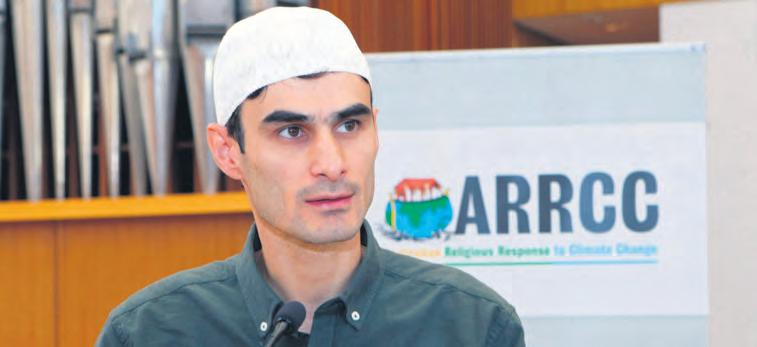
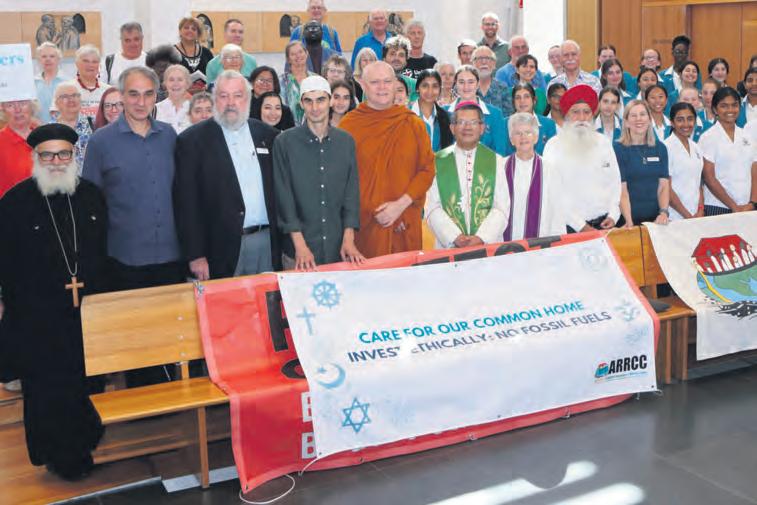
Held during the Christian season of Lent, the event highlighted that people of faith and faith-based organisations should “repent” of unwittingly allowing their savings to finance coal, oil and gas mining.
Bishop Vincent Long of Parramatta said in his homily, “The time has come for us to act decisively to reduce our carbon footprint, to invest in renewable energy, to divest from fossil fuels, to consume less and waste less ….”
“So ‘now is the time for new courage in abandoning fossil fuels, to accelerate the development of zero- or positive-impact sources of energy,’ Pope Francis said recently. The Vatican Bank itself does not invest in fossil fuels and it is hoped that this example is followed, not just by Catholics but others as well,” he said.
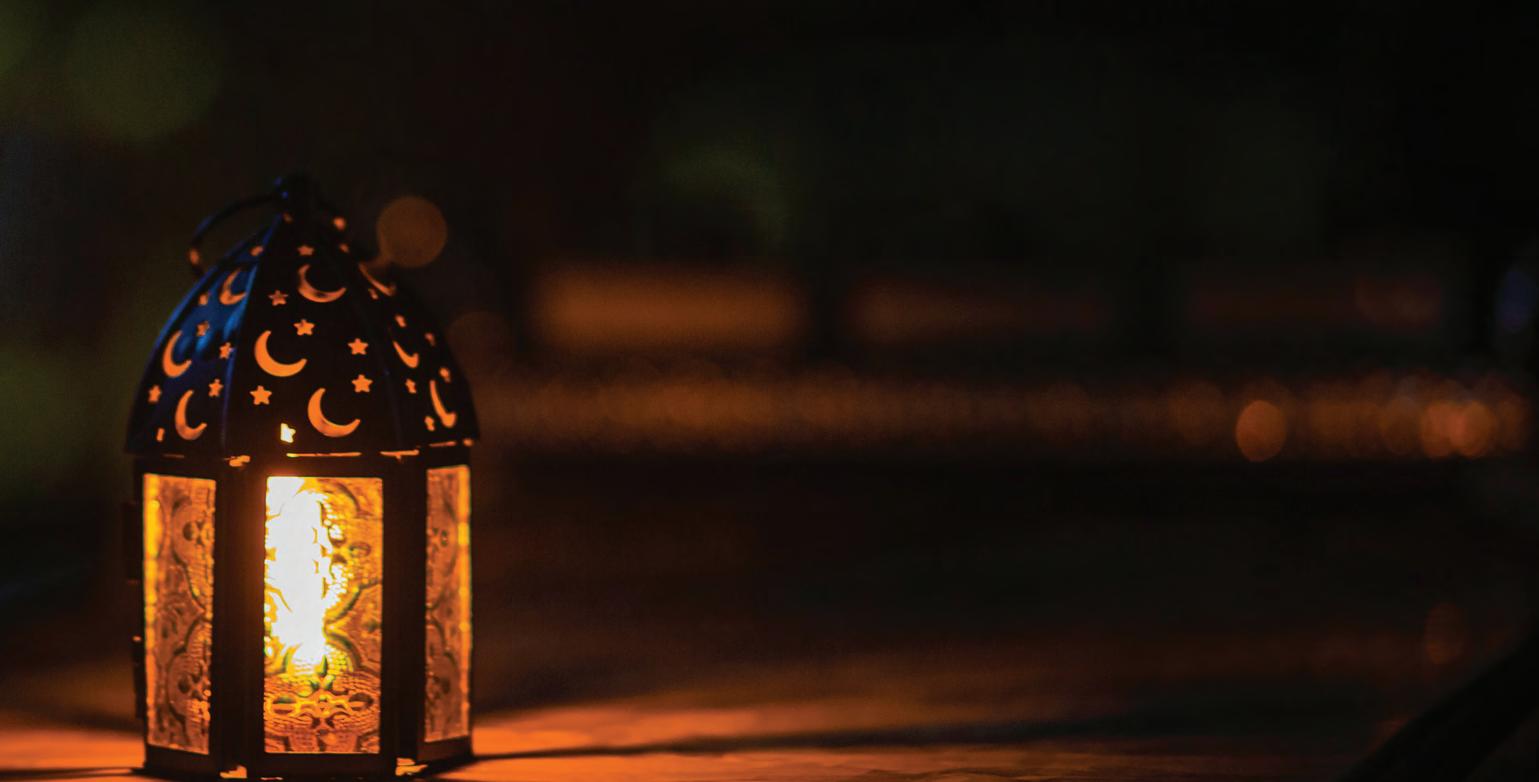
Faith-based organisations have been among the first to embrace fossil fuel divestment, both in Australia and globally. Worldwide, of all organisations to have committed to divestment, those that are faith-based are
the largest in number.
It makes sense. Faith-based organisations come out of long revered traditions of seeking to live more ethically. For Muslims, shariah-compliant investing excludes businesses that earn their income through the sale of alcohol, addictive drugs, pork products, gambling, weapons and other products deemed to be harmful to society.
Given the well documented environmental harm caused by fossil fuels, ARRCC welcomes the news that the Islamic Bank of Australia is opening for business in 2024 with an industry-leading plan to avoid investing in fossil fuels. This is above and beyond traditional practices in Islamic finance.
Theravada Buddhist monk, Venerable Bhante Sujato says, “Escalating climate chaos unfolds before us every day, in every
nation, in cold and heat, in flood and fire. We fear for ourselves and for our children, yet sometimes we do not even know that our own money is funding the madness.”
Thea Ormerod, president of ARRCC says, “It is not well known that the big banks and funds tend to invest heavily in coal, oil and gas mining and infrastructure, but certain banks, such as Bendigo Bank and Bank Australia, avoid this and instead engage in ‘positive impact investing’.”
“We look forward to the Islamic Bank of Australia also offering its more ethical services,” she said
Thea Ormerod is the President of the Australian Religious Response to Climate Change (ARRCC), a Catholic Christian, retired social worker and grandmother of eight.
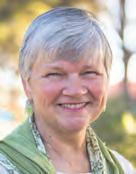
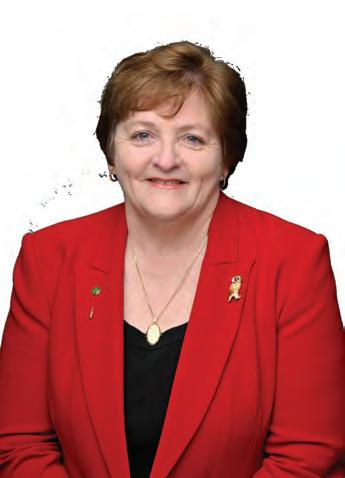
Food must be one of the easiest, most enjoyable and most enriching ways to get to know new people and to learn about places and histories that we haven’t otherwise had the chance to encounter.
In the run up to Ramadan, I’ve been lucky to have a few of those encounters which will be shared via AMUST and via Recipes for Ramadan’s website and social media.
Renowned photographer Zahrah Habillulah and her mother Ayesha invited us into Zahrah’s home for a morning preparing samosa and Burmese bagiya from scratch to make a Burmese Samosa Salad for lunch; to hear the story of their family’s journey from Moulmein in Burma close to the border with Thailand to New Zealand, finally settling in Australia; and to talk about the experiences of Burmese Muslims over the last 50 years or so.
Although Ayesha has been back many times, and Zahrah also speaks fluent Burmese, the current situation makes it dangerous for Muslims of Indian descent as well as the Rohingya people.
I also had the opportunity to get to know Sivine Tabbouch and her daughter Karima Hazim better, booking myself and my mother into one of their Sunday Kitchen sessions. I’d been meaning to go ever since Karima contributed her family recipe for Warak Enab back in 2021 but finally jumped at it when I learnt that they were donating the ticket price for all February and March classes to Aus Relief’s Appeal for victims of the Turkiye and Syria earthquake.
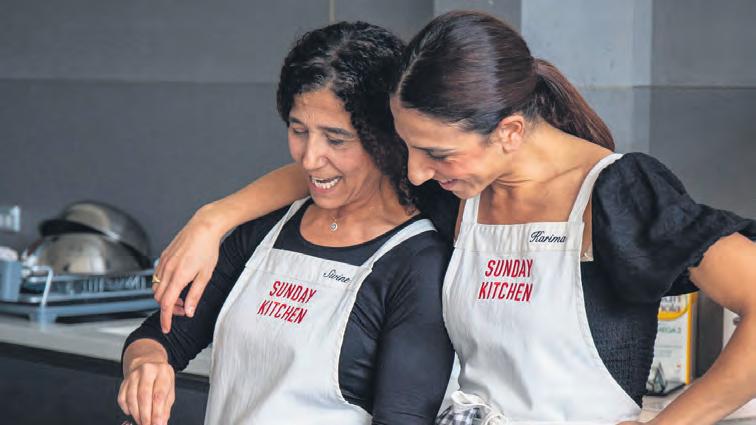
In a class which is part cooking and part storytelling, I discovered that the port of Tripoli in the north of Lebanon is almost as famous for its fish dishes as its sweets.
In drafting Sivine’s story, I was awed to hear about her mother, not simply as a woman who loved to cook and bring her family together around food but as an incredibly strong brave woman who sacrificed everything she had to organise emergency exit visas to take her sons and daughters out of Lebanon when the civil war broke out. She wanted to prevent her sons from becoming involved in the conflict.
I am now booking my mother and me
into Sunday Kitchen’s Breakfast class on 22 April. A lovely way to celebrate Eid and a real treat after all the busy-ness of Ramadan.
Another very real highlight of the last few weeks was the morning I spent with Yasmeen Afzal’s Year 10 Food Tech class at Amity College in Prestons in Sydney’s west. My mother came to this too.
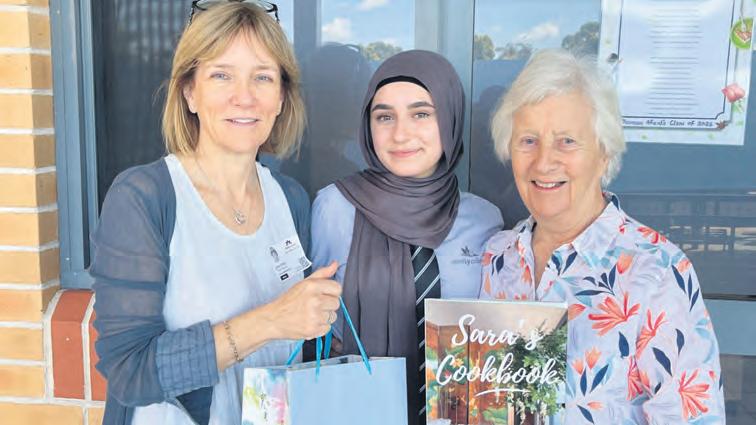
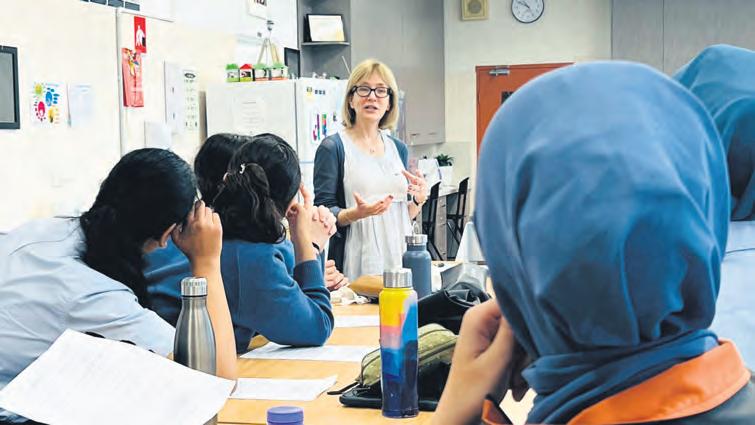
We talked about the genesis of Recipes for Ramadan and the importance of sharing our family history not just in terms of getting to know each other but in terms of our backstories and the stories of the countries we each come from becoming part of the modern Australian story.
We talked about Australia’s three eras: the 60,000 years of the Aboriginal era; the co-
lonial period; and the modern period of migration and immigration that makes Australia the most multicultural country on earth. With nearly 50% of Australians having one or more parents born overseas and nearly 30% of us born overseas ourselves, Australia and being Australian is very different from what it was in the 1950s.
I talked of how my husband, two daughters and I arrived in Australia, thinking we’d be here for 2-3 years – and how in May we will have been here for 23 years! And I talked of the importance for me over those 23 years of helping to tell Australian Muslim stories that counter the narrative of demonisation, ‘otherness’ and Islamophobia.
The girls shared what they knew of their
family history and the country they had originally come from: Afghanistan, Iraq, Kurdistan, Lebanon, Pakistan, Palestine, Sudan, Syria… Shi’a, Sunni, Christian, secular… Some families had arrived fleeing conflict and persecution, others poverty and lack of opportunity, others coming for marriage. In almost every case the girls and their teacher were surprised by how little they knew about each other.
I was honoured to be asked to award a prize to Sara Safi for the cookbook she had produced last year as a class task. Her photography was unbelievably impressive – so much so that I’ve asked her if she would like to work with me, producing new photographs for some of the recipes we have on Recipes for Ramadan, and Guardian Australia is happy to give her a photo credit too.
After the lunch we were treated to in the staff room, my mother, who is staying with me from England and came to the school too, remarked on how much she had loved being there. It gave her a better understanding of Recipes for Ramadan as a project, what I do, why I do it, and more importantly she met people she’ll remember forever.
Since Ramadan 2020, we’ve built up a collection of 64 recipes with more to come: snacks to break your fast: soups; mains (fish, chicken, lamb, beef and vegetarian); desserts, sweets and cakes for treats and for Eid; and suggestions for healthy and filling breakfasts.
The recipes and family stories behind them come from 22 countries, from Afghanistan to Turkiye. This year we’ll be adding Fiji, Burma, Russia and Albania. All of these stories have taught me so much about the history of different countries and the different ways many of us came to be here. They have also gifted me some very special relationships.
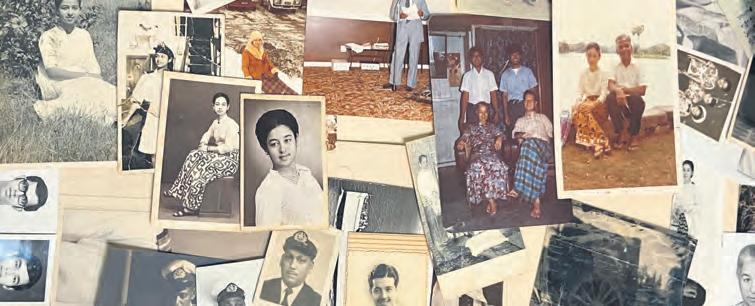
Find Recipes for Ramadan at www.recipesforramadan.com and follow us on Instagram @recipesforramadan, Facebook and (new this year!) TikTok.

Guardian Australia is running another series of recipes and stories from Recipes for Ramadan, every Saturday from March 18 –April 15.
AMUST is a founding partner in Recipes for Ramadan
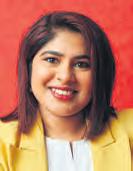
As the Labor MP for Liverpool, I am very conscious of listening to the voices of people who often don’t get a seat at the decision-making table.
Recently, the Shadow Minister for Women and Prevention of Domestic Violence and Sexual Assault, Jodie Harrison MP, was in Liverpool to announce that a Minns Labor Government will boost funding for Liverpool Women’s Health Centre.
As part of her visit to Liverpool, she and I met with women from different cultural backgrounds to understand the unique experiences and needs of communities in southwest Sydney.
Over hot chai and pakoras, we had a wide-ranging discussion with women from various cultural backgrounds on how women in our communities have stepped up in a variety of different ways to support each other and the many challenges that still exist.
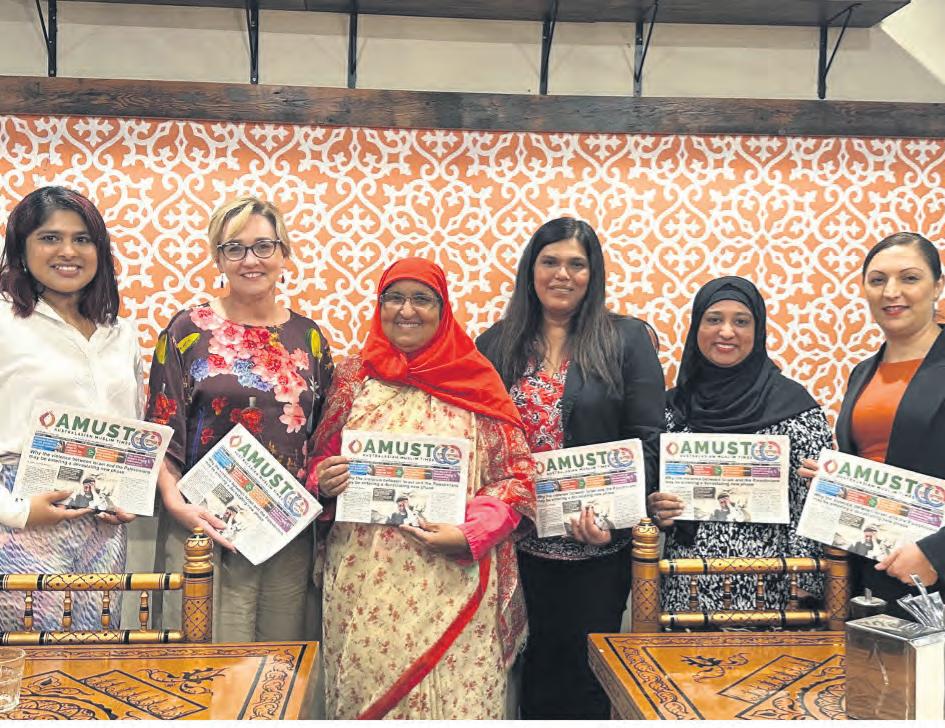
Under Labor’s plan, the current funding for Women’s Health Centres NSW will be doubled, with a $100 million investment over five years.
For almost half a century, Liverpool Women’s Health Centre (CCCWHC) has provided a range of health, counselling and crisis support services for women in the Liverpool and surrounding areas. The service is vital in providing a safe place for women who may fall through the cracks of the health system and otherwise end up in acute care.
Labor’s commitment will ensure Liverpool Women’s Health Centre can keep its doors open and continue to provide specialised health care services for thousands of women in the Liverpool area each year.
It will also reduce pressure on our hospitals, as women can access healthcare where they need it, when they need it, without having to go to an Emergency Department. Every dollar invested in Women’s Health Centres is $1.71 in avoided costs for the
NSW government.
Under Labor, the new investment will mean Liverpool Women’s Health Centre is able to:
• Increase staff retention,
• Reduce waitlists for counselling appointments,
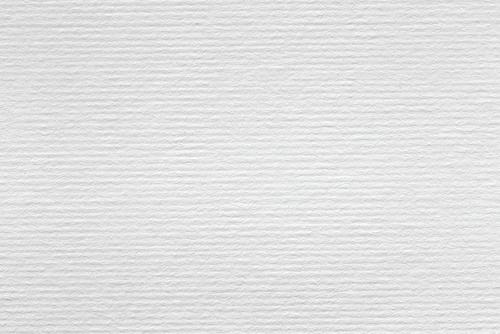
• Reduce numbers of women turned away from services,
• Reduce gaps in availability of local services,
• Adapt services to emerging demographic trends and population growth,

• Adapt services to address the complexity of presenting health issues.
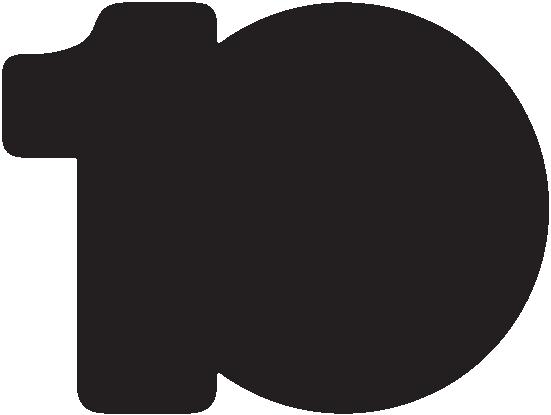
This announcement follows Labor’s commitment to deliver more job security and funding certainty for key community health and family and domestic violence services by introducing longer-term five-year funding arrangements, and to boost funding to the NSW Sexual Violence Helpline.
Those who attended the discussion with the Shadow Minister for Women highlighted the unique needs of women who may be new migrants to Australia and do not understand the system or the resources and support available to them.
This gap is currently being filled by women and community organisations within our communities who may provide information and support in person or digitally. Jodie Harrison proposed to raise the issues facing new migrant women discussed by the attendees with the Federal Government South-west Sydney is one of the fastest-growing regions in Australia and has one of the most culturally and linguistically diverse populations. It is important to consider what barriers exist to accessing mainstream services for some, and how we can better support these people or make services more accessible.
Taysir Ghazi’s Ful Medames 4 Ways is a Ramadan Suhoor stress-buster and perfect comfort food at any other time of year.
Some years back the Sydney Morning Herald’s Good Weekend magazine ran a recipe column called ‘Any Fool Can Cook’. It featured easy to make recipes which were a God-send in a busy life. I found myself thinking of it after I tried Taysir Ghazi’s Ful Medames, wondering why the dish hadn’t until now been part of my own repertoire. I loved making it – soaking and simmering dried beans or simply using tinned beans – and even more I love the end result and Taysir’s suggestions for eating it four ways.
Ful Medames 4 Ways was Taysir’s contribution to Recipes for Ramadan last year. We cooked it together in a Penny Appeal Iftar Kitchen run out of Gallipoli Mosque in Auburn, multiplying the quantities and cooking up 200 portions – 100 with tomato and onions and 100 with olive oil, garlic and lemon. The food was then distributed by Penny Appeal’s Team Orange volunteers to local people who are homeless or suffering food shortages.
A week or so later we found ourselves guesting on Simon Marnie’s Sunday morning show on ABC Radio in New South Wales. Taysir reminisced about growing up in Cairo and Sudan, having to flee the family home on the outskirts of Cairo to escape the bombs that fell during the Six Day War between Egypt and Israel and she shared a favourite childhood memory of the ful seller coming to their street in the early morning and ahead of sunrise in Ramadan.
I discovered that ful medames is Egypt’s official national dish, street food, comfort food, breakfast food and in Ramadan eaten before sunrise at Suhoor to provide long-lasting sustenance through the day’s fast.
Fava beans (or broad beans) have a colourful history going back to the Pharaohs with the story then being that Ful Medames was created by a Greek Khawaja (foreigner) by the name of Demos which is how it got the name Medames.
For the full story and recipe visit www. recipesforramadan.com. Check out Recipes & Stories and scroll through the countries laid out in alphabetical order to find Egypt.
There are several other recipes from Egypt, including Amina el Shafei’s Taamiyah, a truly delicious version of falafel full of fresh green herbs which give a beautiful colour and a moist texture which can so often be lacking. Other Suhoor ideas, see Yasser Zaki’s Suhoor, Moodi Dennaoui’s
Kiran Afzal is a contributor to Recipes for Ramadan, the online and social media project we started in response to covid. A passionate food blogger, these are her tips to minimize food stress during Ramadan and create more time to focus on prayer and introspection instead of spending hours in the kitchen.
1. Strategize your meal planning
Start by planning your menus. It doesn’t have to be detailed – just a rough guide to what the family will be eating each day for Suhoor, Iftar and dinner. If there are people in your household who aren’t fasting, keep a note of their meals too. And keep your work schedule in mind.
The first iftar on the East Coast of Australia will be just after 7 pm so Iftar at home may or may not be possible and on normal weekdays, the meal may need to be something that can be eaten quickly.
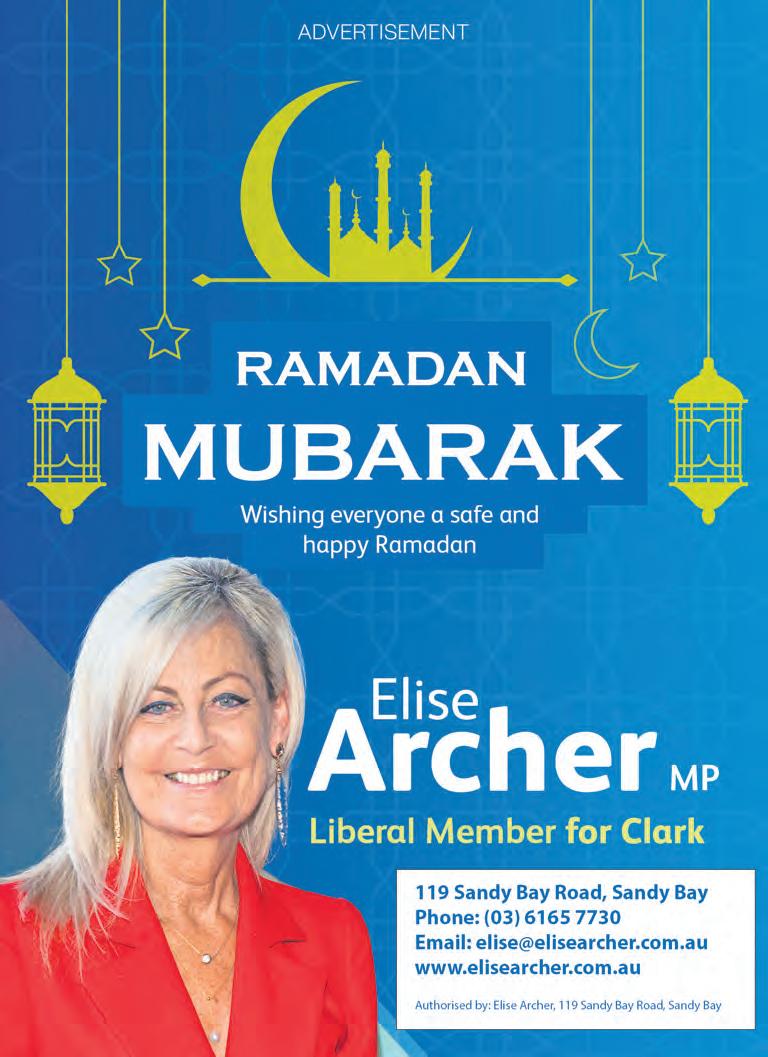
Check out my Ramadan meal planning guide for inspiration.
2. Make your Ramadan grocery list
Once your menu plan is made, the shopping list is easy. Depending where you come from, Muslims around the world have special recipes made only for Ramadan so your grocery list will most likely be different to your regular pantry staples.
Dates of course are a must, and Australian supermarkets and greengrocers usually have special offers. In Pakistan where I’m from originally, other Ramadan staples include Rooh Afza (a red coloured cordial), chickpea flour (for pakoras), samosa wrappers (to make samosas) and mash daal/white lentils (for dahi baray).
Follow these hyperlinks or go to www. RecipesForRamadan.com and scroll through Recipes & Stories to find my recipes and family story under Pakistan.
3. The freezer is your best friend
Bulk prep and freeze items that can be turned into quick and easy meals. And think about freezer friendly options from the supermarket or from caterers and restaurants who have Ramadan specific menus.
In Pakistani households, the freezer will
be stocked with shami kebab (Pakistani style beef and lentil patties) that can be eaten with paratha for Suhoor. Plus samosas, spring rolls and chicken puff patties for Iftar. Check out my guide on how to bulk prep for Suhoor and Iftar in Ramadan.
4. Get the family involved
Divide responsibilities. One person sets the table, another preps the fruit chaat, another prepares other Iftar items. Many hands make light work and involving all family members can be great fun when preparing items like samosas or spring rolls in bulk.
5. Eat a balanced diet
Fasting from sunrise to sunset is hard on your body so to avoid weakness, dizziness and headaches, when you can eat, eat nutritiously balanced meals and plenty of water for hydration.
Fibre-rich food and complex carbohydrates, especially for Suhoor, are digested slowly and provide energy during the day.
Indulge in those delicious Ramadan specialities once in a while, just don’t have too much fried food or food with a high sugar content too often as both lead to dehydration.
Moodi Dennaoui’s guide to staying fit and healthy in Ramadan is really helpful and his deliciously nutritious breakfast smoothie and Taysir Ghazi’s fibre-rich Ful Medames are both super easy Suhoor options to throw together if you plan and prepare ahead.
With less than 2 weeks to go, enjoy the countdown.
Recipes for Ramadan aims to share recipes and family stories reaching back into the history of Australian Muslim families and, to quote the song, ‘the lands from which we come’; to replicate the kind of conversations we might have getting to know each other at iftar. Join us at www.recipesforramadan. com; on Instagram @recipesforramadan and Facebook @recipesforramadanau
You can find some of Kiran’s recipes at https://recipesforramadan.com/recipes/ –just scroll down to find Pakistan. You can also find Kiran on Instagram @mirchitales
AMUST is the community media partner and Guardian Australia will run a series of our recipes and stories starting on Saturday March 18.
Taysir Ghazi and her traditional Fawla pot used by the ful seller when she was a child in Cairo
Fruit Compote and follow @recipesforramadan for an alert for Nur Salimah’s Fijian Maleeda. All accompanied by family histories that take us back to the lands of our ancestors.
A cut-down version of Taysir Ghazi’s story and her recipe will also be featured in the Lifestyle section of this Saturday’s Guardian Australia, the first part of a special five
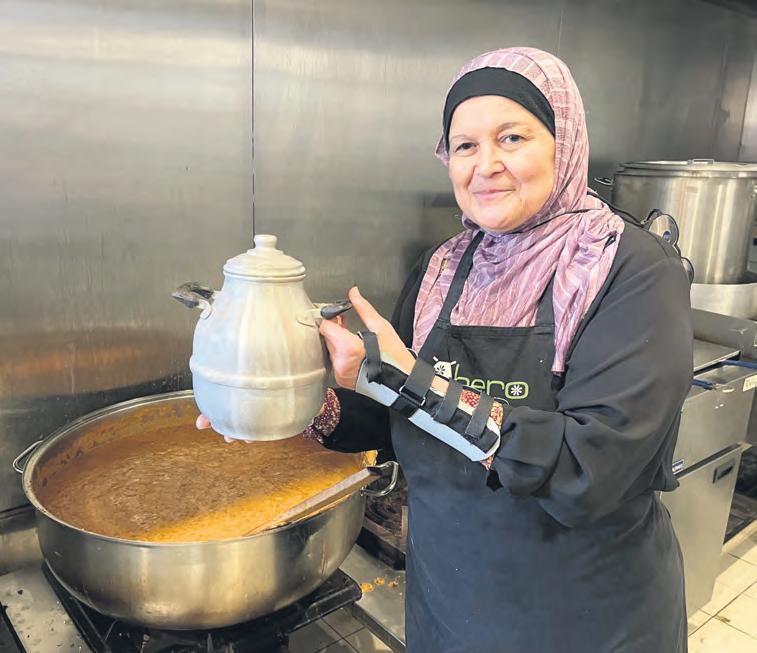
part series featuring recipes and stories from ‘Recipes for Ramadan’.
AMUST is a founding partner and community media partner in Recipes For Ramadan. Stay tuned for more.
Jane Jeffes is a producer and director and former head of ABC Religion & Ethics. A UK-Australian dual national she is based in Sydney, Australia.
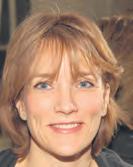
Human Appeal Australia (HAA) wishes to congratulate you on the start of this sacred month and we ask Allah (SWT) to bless you, your loved ones, and all Muslims around the world. HAA also takes this opportunity to remind you of our brothers and sisters who have been impacted by conflicts and natural disasters.
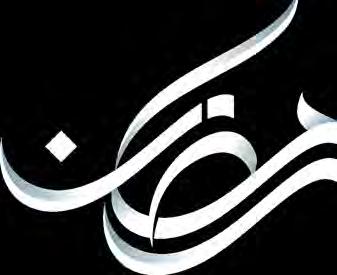
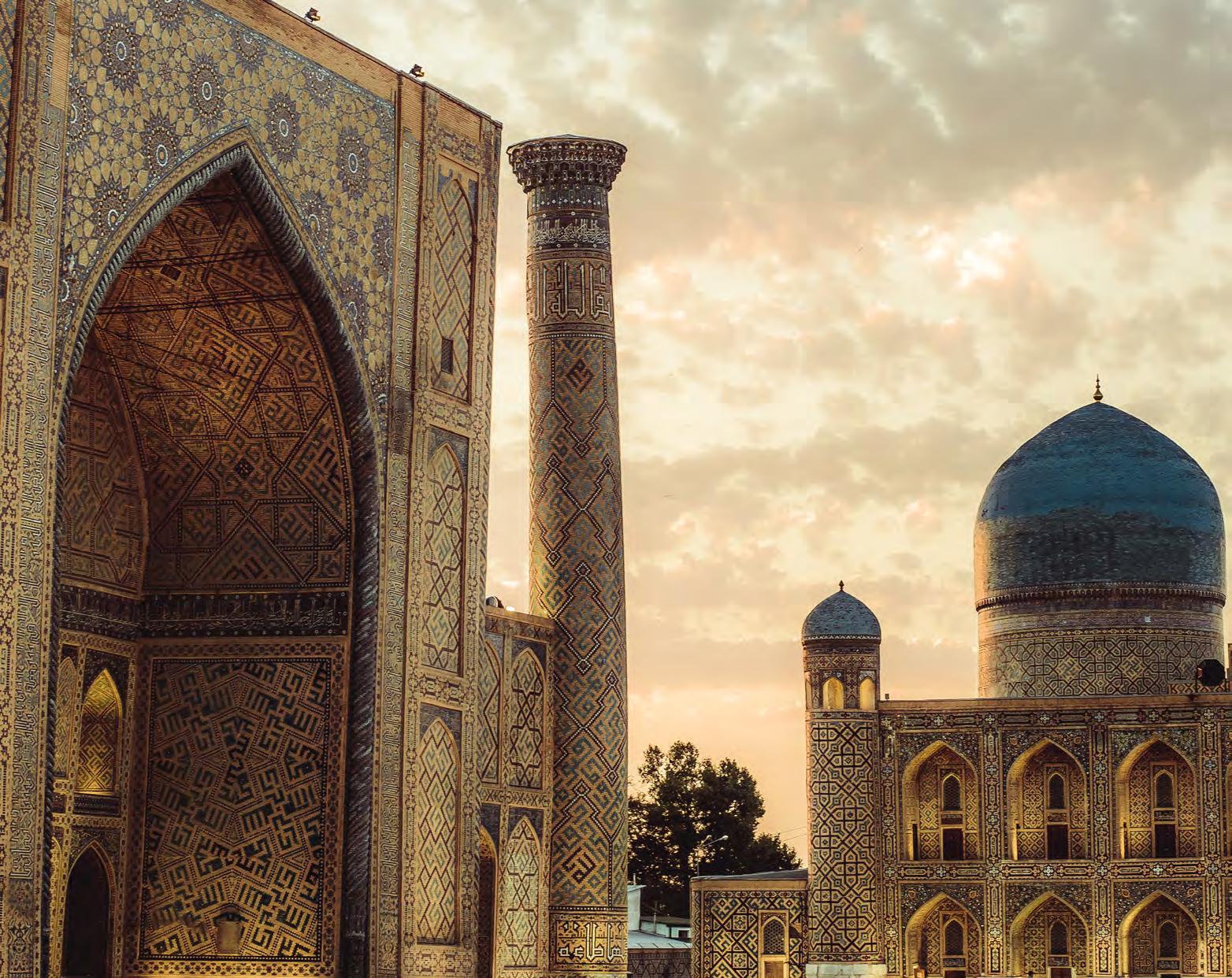
We invite you to share in the blessings of Ramadan by generously supporting HAA’s various projects, including Zakat Al-Maal, Zakat Al-Fitr, Iftar for the fasting, Eid Clothing, Orphan Sponsorship, Water Wells, Sadaqa Jariyah. Your contribution will help alleviate the suffering of the displaced, refugee, poor, and needy brothers and sisters in various countries. By doing so, we hope to earn the blessings and satisfaction of Allah (SWT).
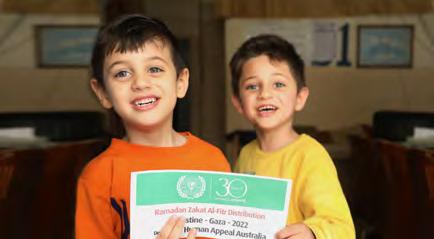
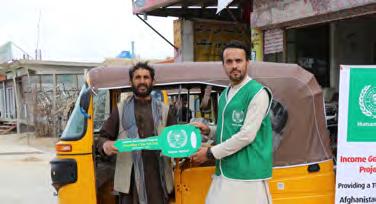
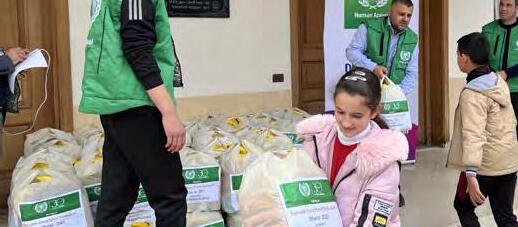
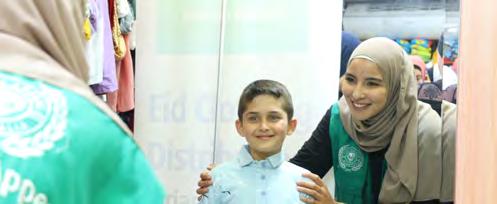


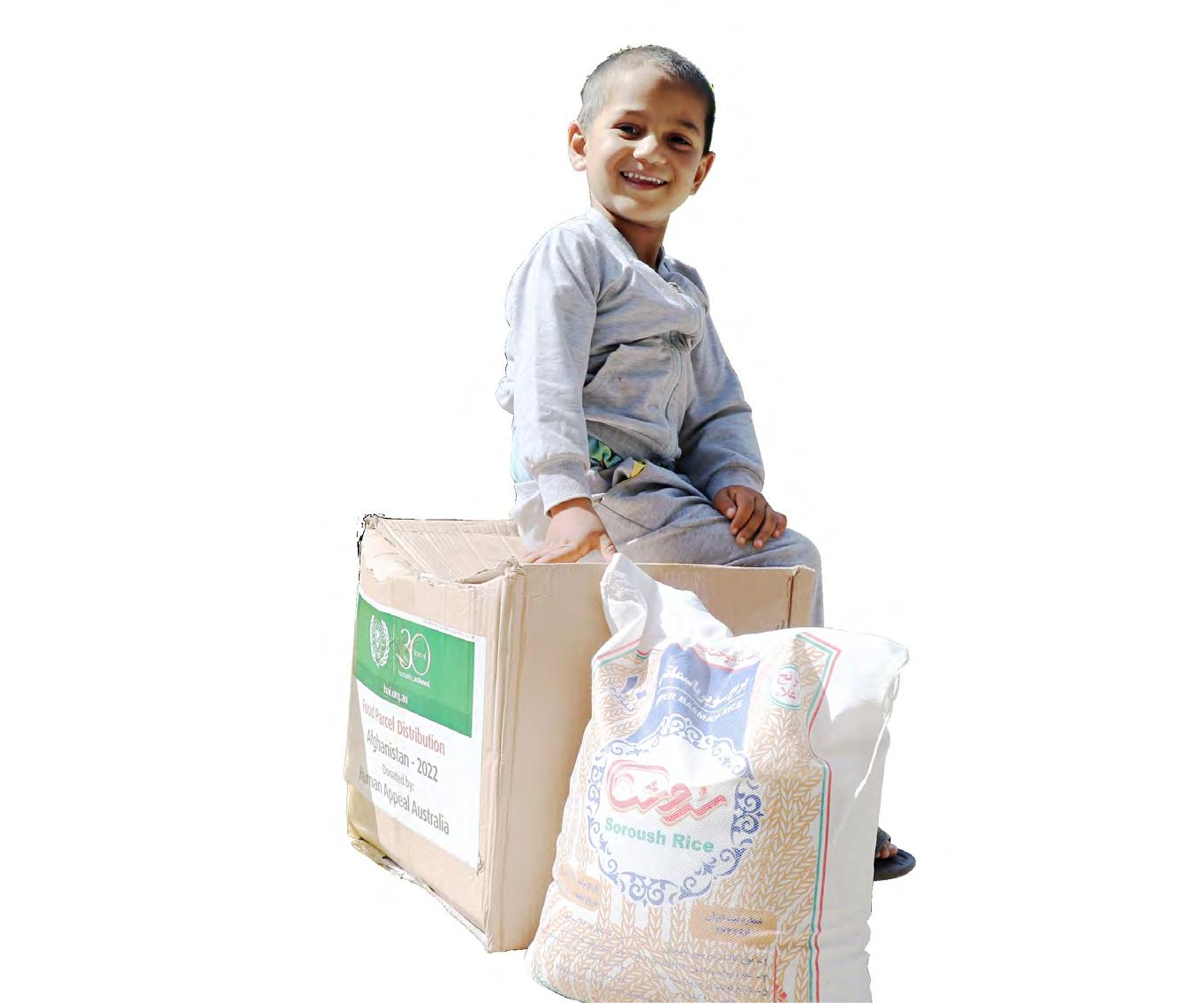
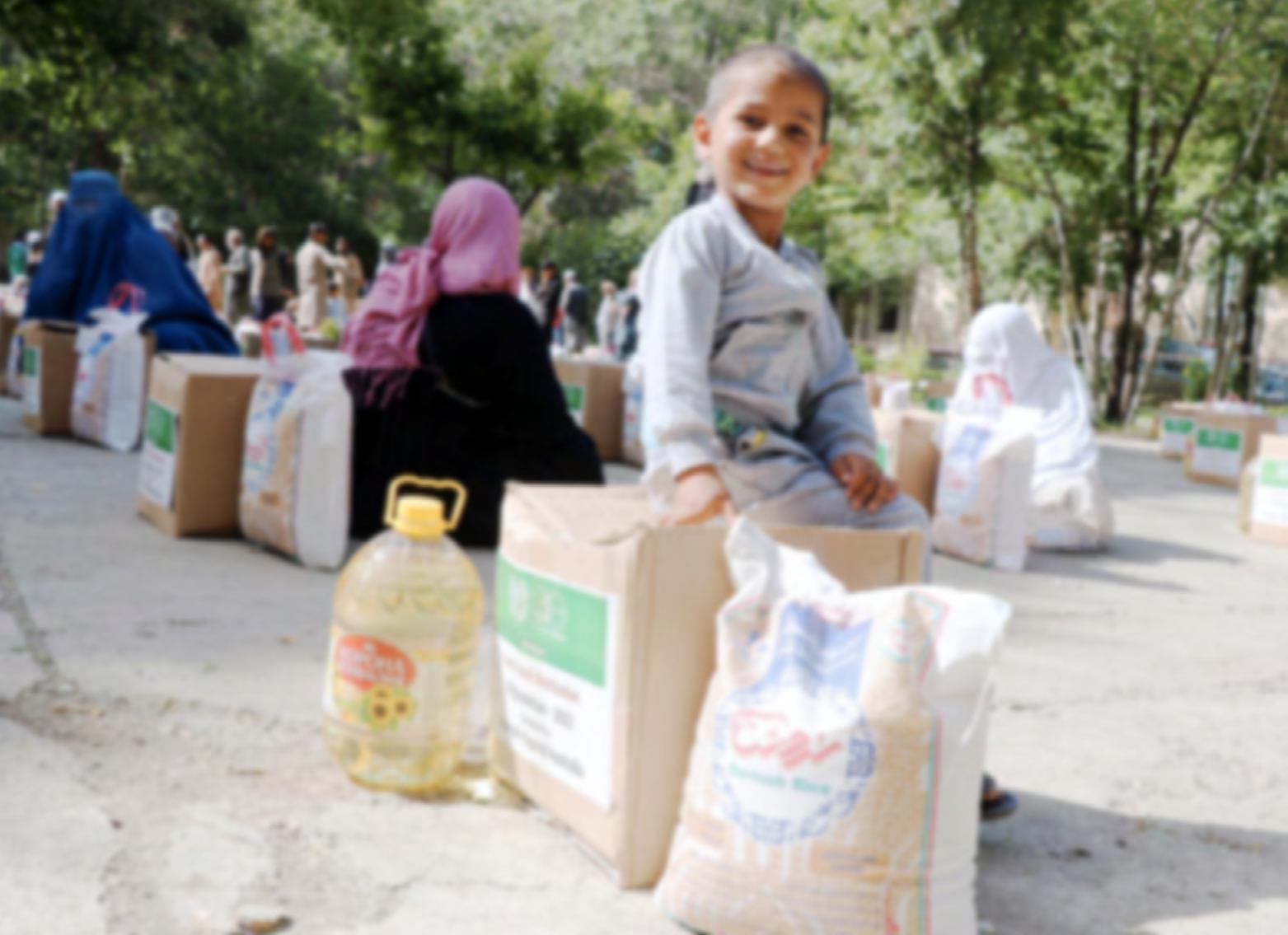
The massacres of March 15 2019 at two Christchurch mosques confirmed the far right remains a constant threat to public order and safety in New Zealand, and that this threat was largely overlooked by security and intelligence agencies.
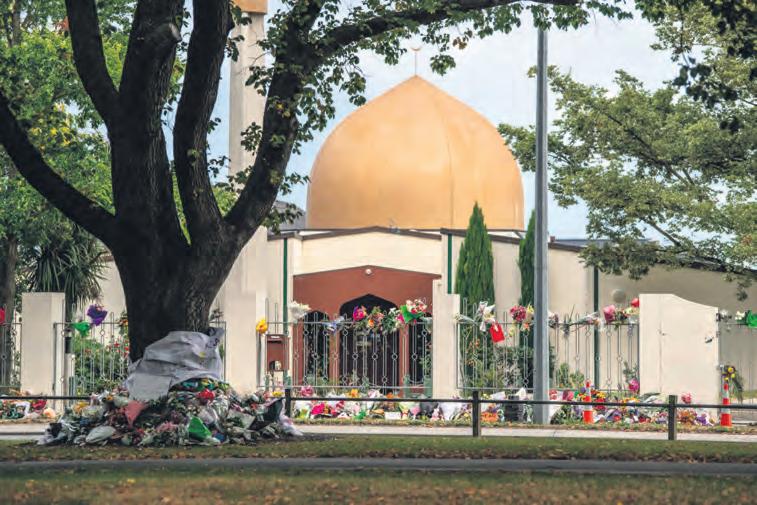
Both elements were corroborated by the findings of the Royal Commission of Inquiry into the attacks that was released in November 2020. The country was not exempt from such activist, murderous politics, despite widespread complacency.
While the perpetrator exhibited many of the longstanding ideological beliefs and violent tactics of white supremacists, his “manifesto” reflected the influence and rise of the alt-right, with a focus on the “great replacement”, the participation in online subcultures and new versions of conspiracies (as well as old ones).
We trace the development of the alt-right as a series of disparate coalitions of far-right and (white) ethnonationalist groups, activists and ideologies – secular and religious – and their use of online platforms to proselytise, recruit and radicalise. We are particularly interested in the rise of identitarian movements and ideologies, and their transnational influence and reach.
How has ethnonationalism been (re-)radicalised? How have new motifs and symbols been used to attract and explain, especially in identifying groups – the “deep state”, mass media, groups such as Muslims or Jews – as an existential threat facing the “white race” or “European civilisation”?
What role does religion play in these new coalitions and their selection of religious enemies and targets? How significant is the neglect of religion in the failure to recognise religious motivations and ideologies by security and intelligence agencies in secular polities? And how have online platforms and possibilities been utilised in the cause of these new politics?
A new stage in far-right politics
The alt-right is a product of the ideological mixing of traditional far-right politics and conservative populist movements. As David Neiwert writes in Alt-America: The Rise of the Radical Right in the Age of Trump, key elements began to appear with the Tea Party after 2010 in the US: nativist anti-immigrant views, specifically in relation to “ ‘parasitic’ minorities and immigrants”, a “hostility towards ‘liberal’ elites” and the “supposed ‘tyranny’ of the president”. Neiwert writes:
These populist movements have created an “[a]lternative universe [and] a set of alternative explanations [which are] amplified by a panoply of conspiracy theories [including] a New World order [which is] plotting to enslave all of mankind in a world government that permits no freedom […] In this alternative universe, facts and the laws of political gravity do not apply.
The term “alt-right” was first coined in 2009 by Richard Spencer, an American white nationalist disillusioned with contemporary conservatism and who became director of the National Policy Institute, a lobby group for race-based policies where “race is the foundation of identity” – a far-right response to, and version of, contemporary identity politics. A year later, Spencer established his own webzine, The Alternative Right.
By the 2016 US presidential election, the views and activities of the alt-right had become well established and provided a contrast to more traditional far-right politics –in two particular ways.
First, the alt-right were firmly internet-based. Secondly, many followed the Spencer tradition of the “suit-and-tie image” of white nationalism, the preppy look of middle America. The term gained traction when Hillary Clinton, as a presidential candidate, used it in a speech in August 2015 to critique white supremacy and her opponent, Donald Trump.
‘Networked white rage’
Explanations for the rise of the alt-right vary. Some, such as the author Jessie Daniels, see it as a “manifestation of the angry white male who has status anxiety about his declining social and economic power”.
There is certainly some evidence of a high degree of disillusionment and feelings of marginalisation in white communities in the US that then translates into support for an angry and exclusive nationalism through the second decade of the 21st century. Arlie Hochschild chronicles this in her compelling book, Strangers in Their Own Land.
The second explanation is that it is a product of the echo chambers of the internet – or “an informal and ill-defined collection of internet-based radicals”. Jessie Daniels goes on to argue:
The rise of the alt-right is both a continuation of a centuries-old dimension of racism in the US and part of an emerging media ecosystem powered by algorithms […] The ideology of the contemporary alt-right is entirely consistent with earlier manifestations of extremist white supremacy with only slight modifications in style and emphasis […] This iteration is newly enabled by algorithms [which] deliver search results for those who seek confirmation for racist notions and [which] connect newcomers to like-minded racists […] providing networked white rage.
The ideological positions of the alt-right are just as likely to be embedded in video games or music videos.
The red-pilled alt-right
A third component is the demographic profile of the alt-right. Many are young white males, some of whom are university graduates or students. Milo Yiannopoulos, a key US alt-right activist and commentator who, with Allum Bokhari, wrote “An establishment conservative’s guide to the alt-right”, described the movement as “born out of the youthful, subversive underground edges of the internet”.
In many ways, this is no different from earlier neo-fascist and neo-Nazi movements, such as skinheads, but the image and membership have changed: more intellectual (or claiming to be), more skilful messaging (by Canadian YouTube activists Stefan Molyneux and Lauren Southern, for example) and a more carefully managed appeal to conservatives, nationalists and populists.
The alt-right had been growing and evolving for some time, but the US presidential campaign in 2016 and the subsequent election of Donald Trump confirmed the presence and influence of the alt-right as a “mass movement” that hinged on the radicalising potential of the internet, especially of “disenfranchised and mostly anonymous, young white men”. As David Neiwert noted:
Alt-righters see [getting red-pilled] as a metaphor for what they consider to be the revelatory power of their ideology, which cuts through the lies of “social justice warriors” (SJWs), “cultural Marxists” and the mainstream media.
A new phase, and a variation on farright political traditions and activism, had emerged by 2015–16. One element of this, which appeared alongside the alt-right, was identitarianism, which places the threat to the “white race” or “European civilisation” at the core of alt-right activism.
This term has been largely defined by Generation Identity, a European-based movement that arose from Bloc Identitaire, which was founded in 2002 in Nice. A youth wing was established a decade later, and was most apparent in Austria, Germany and Italy.
Generation Identity, one of whose leaders is Martin Sellner, an Austrian and former neo-Nazi, is a European analogue of the largely American alt-right. A core ideological concern is the “great replacement” and, specifically, as Julie Ebner wrote in Going Dark: The Secret Social Lives of Extremists, the belief that a mix of “pro-abortion and pro-LGBTQI+ laws had lowered birthrates of native Europeans, and pro-migration policies […] have allowed minorities to engage in a ‘strategic mass breeding’ .”
American identitarians formed Identity Evropa, which was renamed the American Identity Movement in the US in 2019. It has close links to Generation Identity in Europe and with the alt-right in the US.
European identitarians have adopted some of the strategies of the alt-right, especially the Breitbart belief (a reference to Andrew Breitbart, an influencer of the alt-right and founder of the website that bears his name) that changing cultural narratives precedes political change.
In particular, there is the Breitbart argument that activists “need to create counter-cultures that attract young people [in order] to increase public pressure on mainstream politics”.
This is sometimes referred to as “strategic polarisation” or forcing bystanders to take a position either of support or against alt-right or identitarian ideological positions. The intent is to radicalise individuals or communities and to implement their own local or national campaigns.
Here is an example of seeking to alter the “Overton window” (changing the spectrum of politically acceptable views) and to move the political spectrum to the right so that altright and identitarian ideas become normalised.
Julie Ebner infiltrated Generation Identity groups in the United Kingdom and provided an excellent account (in her book Going Dark) of how such identitarian politics operate – and how such politics were a major influence on the March 15 terrorist.
Identitarianism is a movement that primarily advocates for a contemporary ethno-nationalism, is typically exclusive (hence, “re-migrating” non-natives and immigrants) and that portrays Islam as the key threat (therefore “de-Islamisation”).
This position was espoused by Renaud Camus in his book, Le Grand Remplacement (2011), which introduced the idea of “white genocide” and “reverse racism”, and
has had a major influence on the ideological preoccupations of the alt-right. As Eibner writes:
The Great Replacement theory combines all four features of a violence inciting ideology [or] so-called “crises narratives”: conspiracy, dystopia, impurity and existential threat. The idea is that Europeans [sometimes labelled the “white race”] are being replaced with racially and culturally distinct migrants (impurity) by a cabal of global elites and complicit actors in governments, tech firms and media outlets (conspiracy), leading to the gradual decay of society (dystopia) and the eventual extinction of whites (existential threat).
This theory, along with its four components, is found in a range of contemporary alt-right groups such as Action Zealandia. It was also a preoccupation of the March 15 terrorist whose manifesto, “The Great Replacement”, draws heavily on Renaud Camus’ You Will Not Replace Us! (2018), as well as the earlier work that also provided the rallying call to the Unite the Right rally in Charlottesville, Virginia, in 2017.
The terrorist also valorised Anders Behring Breivik and referenced the Norwegian’s manifesto alongside the justificatory confessions and statements of other terrorists, in particular highlighting the tradition of Christian crusader knights doing God’s work defending Christendom and Christianity against their enemies, mainly Muslims and Jews.
These precursors provided the symbols, memes, framework, inspiration and preemptive-strike strategy for the March 15 attacks.
This is an edited extract from Histories of Hate: The Radical Right in Aotearoa New Zealand, edited by Matthew Cunningham, Marinus La Rooij and Paul Spoonley (Otago University Press).
This article is republished from The Conversation under a Creative Commons license. Read the original article online.
Distinguished Professor Paul Spoonley from the College of Humanities and Social Sciences, Massey University was a Fulbright Senior Scholar at the University of California Berkeley in 2010 and in 2013, a Senior Visiting Fellow at the Max Planck Institute of Religious and Ethnic Diversity in Goettingen.
Emeritus Professor Paul Morris from the School of Social and Cultural Studies, Te Herenga Waka — Victoria University of Wellington was appointed Professor of Religious Studies at Victoria University in 1994 and retired in 2018. He has also held visiting positions at the Oxford Centre for Hebrew and Jewish Studies; University of Sydney; Boston University; and University of California, Santa Barbara.

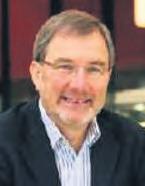

Janelle Di Falco
When individuals go through anxiety and depression, it’s important to ask themselves ‘is this anxiety or depression helping me or hindering me?’ Anxiety and depression are conditions that limit those to seek and achieve goals as it affects a person’s daily life.
The way a person perceives and thinks about surrounding issues can be from an anxious position. Anxiety at severe levels can lead a person to substance use and suicide ideation.
Researchers have stated that the onset of anxiety is when an individual feels threatened or frightened by a stimulus or when they find themselves in a conflicting or confronting situation. The individual will feel a physiological response first such as increased heart rate, loss of appetite, increased sweat secretion, increased breathing and shivering in hands and legs.
Depression on the other hand is characterised by mood disturbances that lead to sadness and a lack or loss of once pleasurable activities. This can lead to extreme weight loss or gain, lack of sleep and thought disturbance. An individual can have an inability to think and focus clearly which is coupled with persistent feelings of worthlessness and guilt.
Some studies have identified Islamic interventions that are effective. This includes reading the Holy Quran loudly, spiritual education and meditation in relieving mental
illnesses. Listening to the Holy Qur’an affects brain activities and hence reduces tension and enhances relaxation.
Remembrance of Allah (God) is also suggested and participants from research studies say that remembering Allah made them feel a sense of peace. There is a Qur’anic injunction where Allah states ‘In the remembrance of Allah do hearts find rest.’ (13:28).
Having trust in Allah that He will compensate with something better is another effective element in addressing mental illnesses such as anxiety and depression. It is simply the fact of knowing that Allah tests individuals with all things and one of those things is the psychological imbalance which Allah can also free people from psychological problems.
‘Verily, you will never leave anything for the sake of Allah Almighty but that Allah will replace it with something better for you.’ (Hadith: Musnad Ahmad 23074)
As mentioned earlier, people suffering with anxiety and depression can sometimes feel a sense of worthlessness and guilt. Individuals will talk down on themselves with all sorts of negative connotations. Sometimes it can be due to an event inflicted upon them or perhaps something they may have engaged in themselves.
However, bashing oneself with negative statements is a form of oppression to the self. Prophet Muhammad (s) states what Allah says: ‘My servants, I have made oppression unlawful for Me and unlawful for you. All sons of Adam commit sins day and night, and once they ask My forgiveness,
I never hesitate to forgive them.’ (Hadith: An-Nawwawi, 24). The hadith indicates that Allah grants His servants a chance to seek forgiveness directly. This cultivates purity and calmness.
Allah additionally says that He is the Oft forgiving most Merciful. This offers a positive emotional state of hopefulness.
Through all of this, it’s about stepping into confidence and engaging in these beautiful Islamic acts. One cannot feel the effects of peace if they do not at least try to engage and take that step towards an action such as reading the Qur’an.
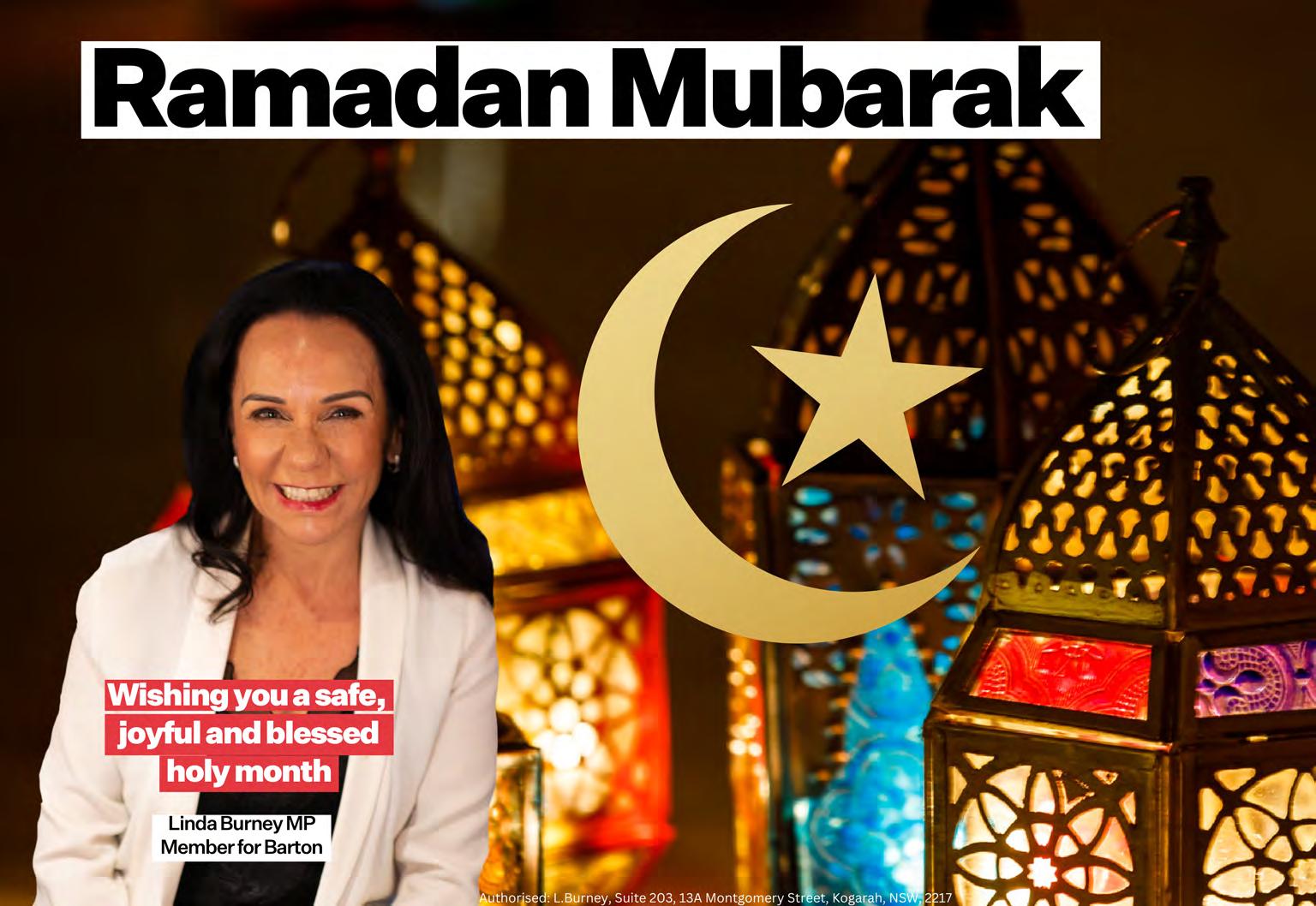
Depression can make one not feel motivated however, knowing that motivation
only comes from taking that step into engaging in an action is the way to bring motivation on. Motivation won’t come out of nowhere, a step has to be taken in order to feel motivated.
Therefore, to reduce one’s depression and anxiety, an individual needs to engage in an action so that the anxiety and depressive feelings can decrease.
Janelle Di Falco is a Qualified and Registered Counsellor and Psychotherapist. She additionally advocates and educates in Mental health, She is based in Melbourne, Australia. Contact: jaecounselling8@gmail.com
Mohanned Qassar
Kitabee Academy in Canberra has launched a second campaign to teach 1,000 Australian kids between 5-16 years how to read and write in Arabic during the 30 days of Ramadan.
Since January of 2023, Kitabee Academy has begun to offer 1,000 Australian children a chance to participate in its 2023 Ramadan Arabic Challenge. In 2021, it ran a similar challenge which was promoted by SBS Arabic 24. Similar to the 2021 campaign, the 2023 Ramadan Challenge relies on written material, short explanatory videos, and raffle prizes to make learning Arabic as enjoyable and rewarding as possible.
“This Ramadan will be different. Australian children will be able to read and write in Arabic on the day of Eid, insha Allah. They will also have the chance to win MEGA prizes,” said Mohanned Qassar, founder and manager of Kitabee Academy.
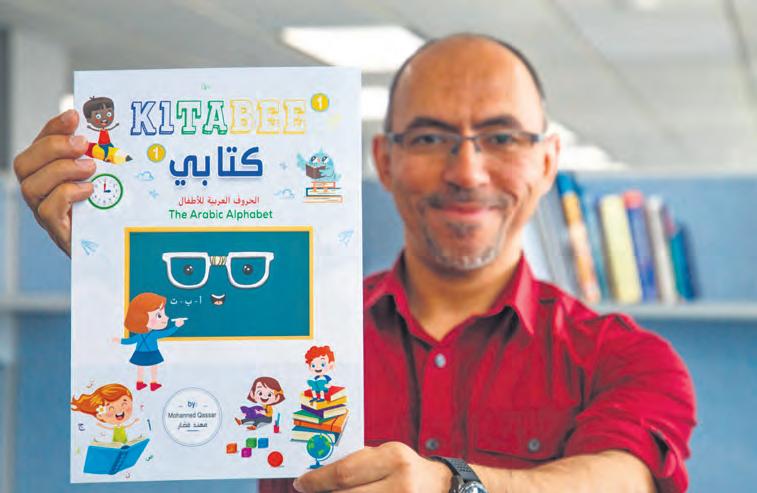
This Arabic challenge aims to teach children how to read and write, with short and long vowels, the twenty-eight letters of the Arabic alphabet in thirty days through Kitabee 1 Challenge. Kids who can read and write and want to improve their grammar, reading and conversation skills have also the chance to participate through Kitabee 2 Challenge.
Those who enrol in the challenge will gain
private access to KITABEE online learning platform, where they can access a short video each day that will explain to participants how to pronounce, write and connect a particular letter for Kitabee 1 participants.
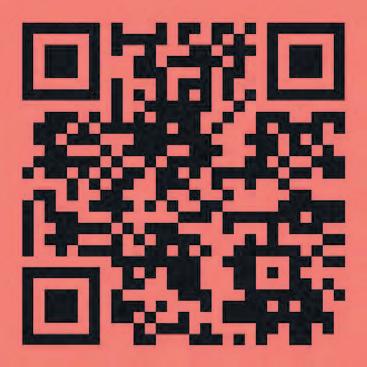
Students participating in Kitabee 2 Challenge will watch a daily video where they learn grammar, practice reading and writing, as well as learn simple Arabic conversation. Children will watch those videos and then complete the ensuing exercises in their KITABEE Arabic workbook.
Progressing children will have the chance of winning one of 2 x $50 gift vouchers on Saturdays 1, 8 & 15 April. Upon the completion of these thirty days, all those who successfully complete the challenge will be able to enter into a raffle for their chance to win some mega prizes, such as an Xbox, a PlayStation 5 or one of two smart watches!
The Academy encourages all parents who wish to enable their children to read and write Arabic and learn more grammar and vocabulary that will help them in their daily life and Islamic studies to register for this competition.
Registration will close on Sunday 15 March to ensure adequate shipping time for course materials prior to the commencement of Ramadan.
To register or to know more about this challenge, please visit: www.kitabee.academy
Mohanned Qassar is a Arabic language educator, author, interpreter, translator, and business founder and manager.
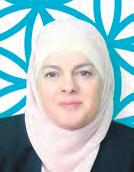
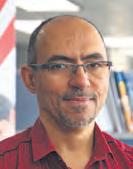
I published an Islamic, self-improvement guidebook, called ‘Transformed by Values’, spanning 20 years of my professional work, launched on Friday 24 February 2023 in Sydney. The book is aimed at supporting individuals and families to live a constantly improving – values excellence focused life – to accelerate your highest Islamic well-being and success.
It is an eye-opening 330-page journey to Islamic self-improvement! Filled with vibrant illustrations and over 100 hands-on workbook activities, it’s designed to help you truly embrace your Islamic values.
This captivating guide skilfully combines Islamic teachings with approachable selfhelp tips, personal growth ideas, neuro-linguistic programming, and practical cognitive psychology insights.
Get ready to embark on this exciting adventure and watch your life flourish one step at a time!
Islam and Ihsan (excellence in your thinking and actions) for me are like two sides of the same coin. Islam is founded on the key value of striving to excel (Ihsan) in everything you are, do, feel and believe –founded on Islamic teachings and values.
Being able to improve our ability to live with ongoing Ihsan/excellence is what inspired me to write this guidebook, to support you in excelling in all key life areas – in your religion, relationships, work life, family life, health and more.
Did you know – How ‘effectively’ you are
able to live your Islamic values, determines every thought, choice and decision you make and therefore every response and action (which of course, carries consequences in this life and the next life…)

In other words, your values (whether you are conscious of them or not) determine every area of your life. Most people don’t realise how values have such a governing power in our life. Moreover, values are the key area where we are tested and challenged the most in life!
Your values determine:
• What you like & do not like.
• What you do & don’t do (In your character, relationships, religion, work, health, etc).
• Your goals.
• Your emotional, mental, social & spiritual habits.
• What & how you spend your time.
• What pleases & displeases you.
• What you move towards & away from. Hence, the quality of your life comes from the quality of how well you live your Islamic values.
How effectively you understand and practice a particular Islamic value governs your thinking, emotions and behaviours related to that value, (eg. self-control of desires, patience under pressure, discipline, God-Consciousness, unshakeable faith, unconditional love…).
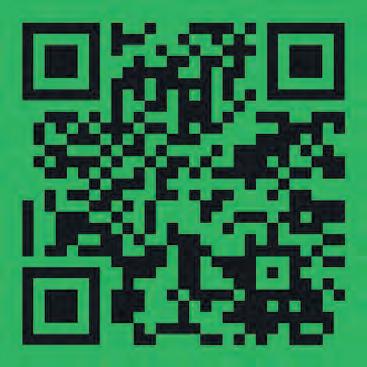
So if you are not satisfied with how well you practice one of your values – it simply means how you think about and practice that value, needs a big improvement – a new level of understanding, knowledge and strategy to practice the skill.
In my book, I assist you with each necessary step, starting with exploring and evaluating how well you are currently living your
Dr Reginald Naulty
“Come, my friends, `tis not too late to seek a newer world.” Tennyson
values. The rest of the book then focuses on advanced knowledge, activities and strategies to help you improve your ability to excel in living your Islamic values.
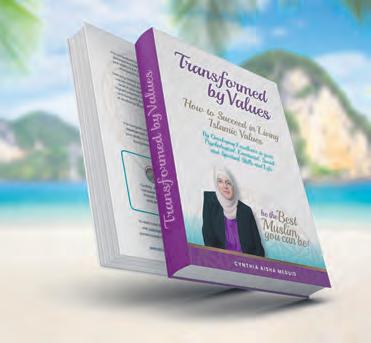
You can learn more, look inside and purchase your copy here for you or a friend: www.aishameguid.com/ shop/transformed-by-values.
Coming up – Transformed by Values –Weekly webinars (for women – free), live classes, courses and more.
Want to learn what Transformed by Values is all about?
You can get on board by joining my free weekly webinars, where I will be covering page by page of the book content and activities practices, to make it even easier for you to get started.
For webinar registrations, visit: www.aishameguid.com/event/ transformed-by-values-webinars.
The blaze of pink flowers with its commonwealth of bees is more magnificent than ordinary reality; the usual world is not like this dramatic, splendid, disclosure. Ordinary, familiar scenes become congenial, but something new may scatter pearls among the grass of our common days. Then we are lifted up like a boat on a wave to a shore where there are drummers and singers inter-woven; their songs have the rhythm of the surf, rising and falling in endless triumph.
Dr Reginald Naulty, originally from Adelaide, has taught at Charles Sturt University and has been a prolific writer since 1972.
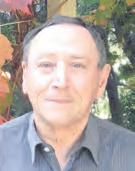
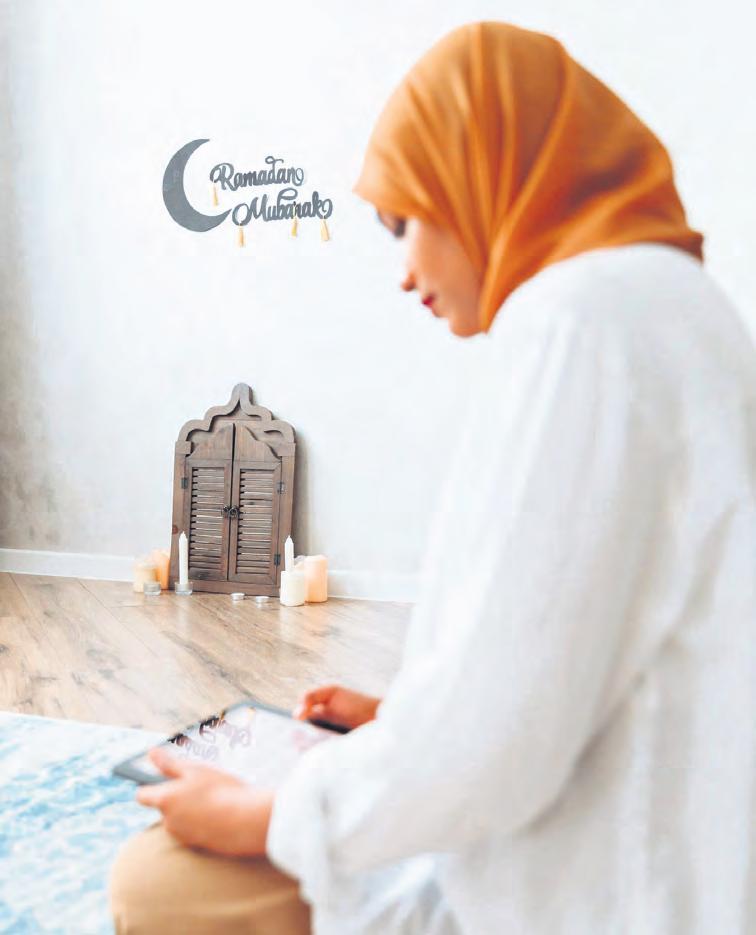 Princess R Lakshman
Princess R Lakshman
The blessed month of Ramadan is the best time to reflect on one’s daily habits and behaviour patterns and make positive intentions to transforming all negative habits to positive ones.
Habits form when we repeatedly carry out a behaviour. Negative habits form when the repeated behaviours are caused by a deep feeling of “I’m not good enough, so what’s the point!”
We all feel disappointment with ourselves at some point in our lives and can easily succumb to acting out our disappointment in ways that adversely affect our overall health, wellbeing, the quality of our relationship with others, and the quality of our relationship and connection with Allah.
The first step is always to admit that some of your habits are not serving you. Common negative habits are:
• Sleeping late, therefore sometimes missing out on Fajr salah.
• Sitting or lying down too much therefore not giving your body the physical exercise and movement it needs for optimal function.
• Eating too much or not enough or eating excessive amounts of sugar and processed foods, therefore disrupting your body’s nutritional balance which then creates disease in the body and directly impacts mental and emotional health.
• Consuming online content that are dark or negative or a constant stream of “bad news” or horrific images, therefore causing disruption in your emotional regulation and evoking aggression or deep sadness or a feeling of hopelessness.
• Poor posture, slouched shoulders and
forward-drooping neck, due to repetitive gaming or texting, therefore compromising on effective breathing which leads to fatigue and muscle stiffness, even pain.
One of the best strategies is to become really honest with yourself and come clean about your thoughts and feelings in relation to your physical, emotional, mental, financial, and spiritual health.
The following questions can prompt you to find your honest truth. You could do this exercise by journaling by yourself, or in the form of a conversation with a trusted friend or family member or even a professional counsellor.
Reflective questions to identify what really matters to you:
1. What incidents come to mind where you felt really down but then Allah showed you a way to bounce back? What lessons came out of those incidents?
2. Who are the people in your life (dead or alive) who inspire you to be a better Muslim? What about their habits and behaviours inspire or motivate you?
3. Who are the people in your life who negatively impact your connection with Allah? What about their habits and behaviours put you off?
4. Who are the people you are struggling to forgive? Why? How long do you want to feel this burden?
5. Who are the people you need to seek forgiveness from? What’s stopping you?
6. What can you do starting today to bring more quality in your relationship with Allah?
7. What can you do starting today to bring a positive change to your physical, mental, emotional, financial, and spiritual health?
Princess R. Lakshman is a writer, speaker, qualified clinical nutritionist, life coach and a counsellor. She is based in Sydney, Australia.
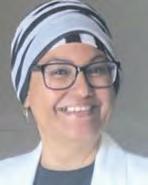
Trials of ‘cashless gaming cards’ are currently taking place at selected pubs and clubs in New South Wales as part of an evidence-based approach to tackling problem gambling in this state.
Supporters of these cards are optimistic that they will assist gamblers to curb their spending, but as yet the results are inconclusive.
Not only is gambling forbidden by Islam, but it can devastate lives every bit as much if not more than most other sins and vices.
The urge to gamble often remains with former gamblers long after they are confident that they have shaken off the habit.
I personally know of people who have managed to rid themselves of the ‘gambling bug’ but still get urges many years later to try their luck, one more time.
One particularly destructive form of gambling is poker machines which can send normally sensible people into an almost hypnotic frenzy as they feed their cash into the slots of the ‘pokies’ at their favourite licensed premises.
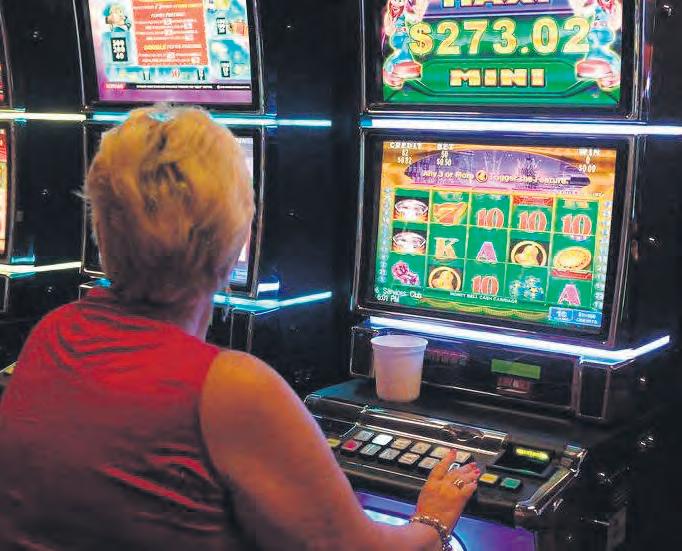
Lured by the bright, flashing lights and the very slim chance of that elusive jackpot (according to gambleaware.nsw.gov.au, your prospects of winning a $5,000 jackpot on a $1.00 poker machine in NSW are almost 10 million to one) but completely oblivious to time and their rapidly dwindling bank balance.
Poker machines don’t discriminate.
They greedily accept all ‘donations’ – it doesn’t matter if you’re an apprentice tradie ‘blowing’ your pay while drinking alcohol at the local pub with your mates or a pensioner sitting alone and sipping on a lemonade at a licensed club, whilst secretively squandering your meagre fortnightly Centrelink pension payment.
In these and many other millions of instances in Australia every year, the licensed establishments housing these evil machines will gleefully accept your money – and you don’t even have to be a member!
The pub owner or club manager just sits back smiling – and keeps banking your money as your life goes down the drain.
As most of you reading this article are Muslims, gambling may not be something that you have ever been exposed to at close quarters. Alhamdulillah.
But it is definitely a problem in some areas where Muslims reside in large numbers.
For example in 2021, poker machine
losses in the Canterbury-Bankstown region were a disturbing $562 million, more than any other Local Government Area (LGA) in NSW.
And when you consider that (also in 2021) almost a quarter of the residents of Canterbury-Bankstown were Muslims, it certainly suggests that in spite of gambling being haram, that there has to be some crossover.
Just finally on Canterbury-Bankstown.
The average poker machine in a hotel or club in this LGA now records over $250,000 a year in losses. That’s around $5,000 a week and a scary statistic to say the least.
You want to hear scary? According to
wesleymission.org.au, NSW poker machine losses have totalled $135 billion in the last 30 years and what’s more, there are around 100,000 pokies in NSW, which is 30 percent more than in Victoria and Queensland combined.
Make no mistake. Poker machine gambling is vile and it is insidious.
Yet licensed clubs are still permitted to run radio advertisements bragging about their supposed charitable exploits!
Even though these donations (which are probably a tax deduction anyway) aren’t a drop in the bucket compared to the gambling revenue that licensed venues bank each and every year.
Making themselves out to be the ‘good guys’ when they are actually profiting from people’s misery.
It begs the question: If cigarette advertising was barred from the media in the mid-1970’s, why almost 50 years later are licensed clubs still permitted to promote themselves on the radio under the pretence that they assist charities, when any donations they do make are in all likelihood from the proceeds of poker machine and other gambling?
Yes – smoking is a health hazard but every bit as much, gambling is a wealth hazard!
It also takes the gambler away from his or her remembrance of Allah, resulting in negligence of their duties towards the Almighty (for example skipping prayers, neglecting the family, not donating to charity etc).
In the Holy Qur’an, Allah describes gambling as “an abomination of Shaitan’s handiwork”.
May Allah grant us the ability to act upon His commandments and to abstain from His prohibitions. Ameen.
If gambling is causing problems in your life, call GambleAware on 1800 858 858 for free, confidential advice.
The South Asian Film Festival of Australia (SAFFA) which was held from Friday 17 to Sunday 19 March, concluded with its closing film screening on Sunday 19 March, at HOYTS, Blacktown in Sydney. The festival showcased films from South Asia and proved that South Asian cinema has a vibrant and engaged audience in Australia.
With over 2000 films submitted and more than 500 attendees over the three-day festival, SAFFA was a true success.
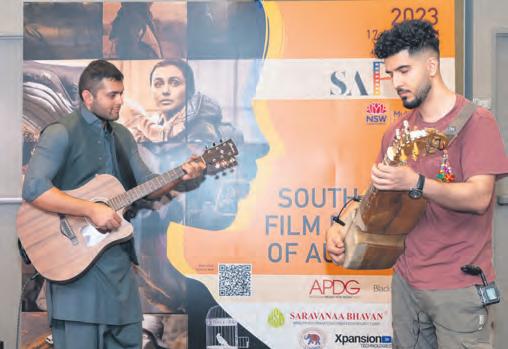
The grand opening celebration of SAFFA on Saturday 17 March was graced by many well-known personalities, including Indian actor and jury member Vipin Sharma, Australian actor/filmmaker Arka Das, Greens Senator David Shoebridge, Deputy mayor Parramatta council Mr Sameer Pandey, former senator Lee Rhiannon, filmmakers – Genevieve Bailey, Anupam Sharma, Ana Tiwary, David Capra, and leading community members like Anurag Sharma, Shekar Mani, Zia Ahmad, Saba Zaidi, Sanjay Deshwal, Navneet Anand, Abbas Reza Alvi, and Anuj Kulshrestha.
The event was hosted by Sydney’s popular MC Jazeel Mistry. The SAFFA awards were also handed out during the celebration, and was the main highlight of the grand opening night.
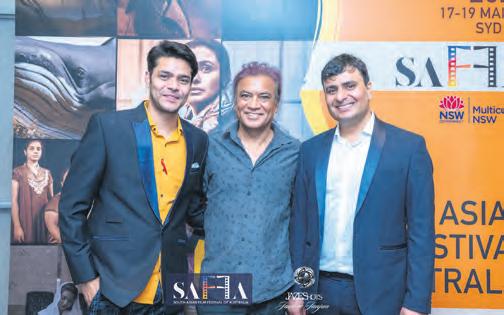
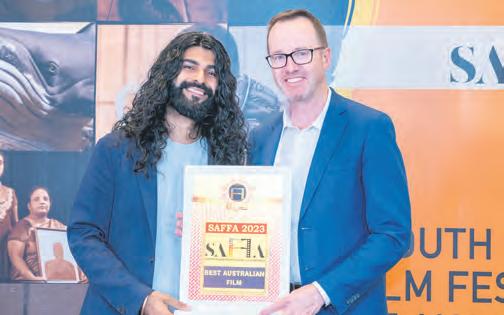
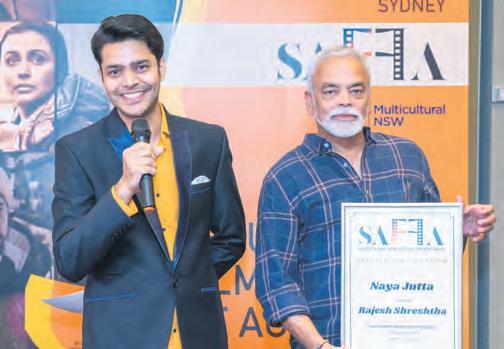
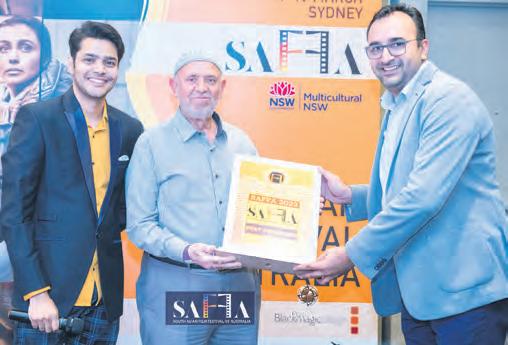

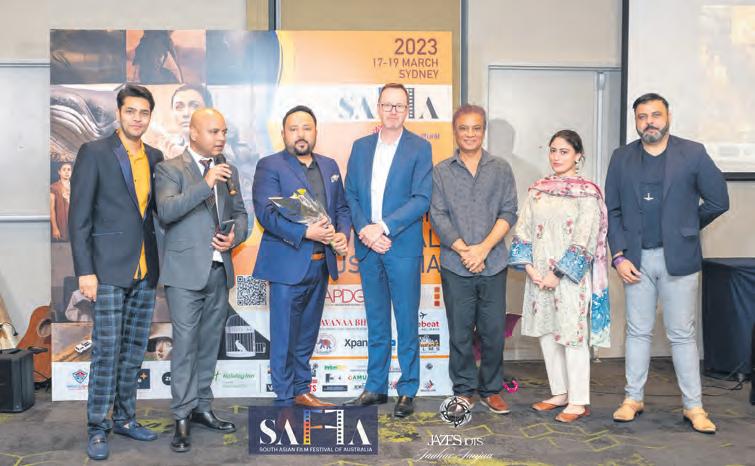
The Best Australian film award went to the documentary Helicopter Tjungarrayi,
which tells the story of the renowned Indigenous painter and the helicopter pilot who saved his life as a child.
The Best Documentary Film award went to the film Aamir – A Trial for Life, which is about an Indian citizen falsely accused of terrorism.
The Best Short Film award went to the film Birani, which explores the dog culling and violence against Indigenous people in Bangladesh.
The festival co-director Dr. Vikrant Kishore (Associate Professor, University of
Nottingham) expressed his gratitude to the community for their overwhelming support of SAFFA.
“I am humbled by the community’s overwhelming support of SAFFA. We have proven that South Asian cinema has a vibrant and engaged audience in Australia. I extend my gratitude to our esteemed jury members, whose expertise and dedication have helped to make this festival a true success,” he said.
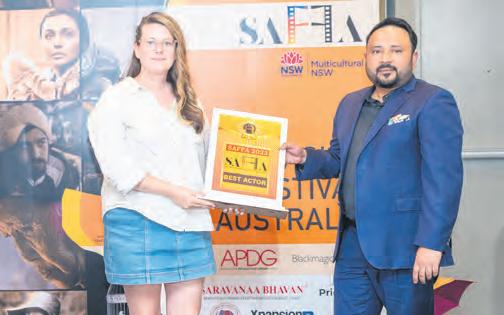
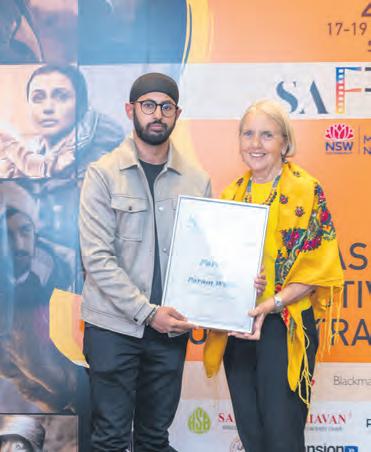
Vivek Asri, the festival co-director, was thrilled by the response of the audience to the original South Asian stories showcased
at the event.
“Moving forward, we remain resolute in our commitment to showcase an increasing number of South Asian films to audiences in Australia,” he added.
Taneem Mannan, a festival core team member, shared her experience as a filmmaker and lover of cinema.
“It was a unique opportunity to showcase the rich diversity of storytelling and filmmaking that comes out of this region. Through this festival, we aimed to break down stereotypes and celebrate the beauty of South Asian culture,” he said.
Achala Datar, another festival core team member, shared her hope that SAFFA will unite the community to watch, view, air their own opinions, make judgements, and become part of the story-telling through such initiatives.
Abbaz Zaheer, a cultural enthusiast and festival core team member, expressed his pride in showcasing the diverse and vibrant cinema of South Asia to the Australian audience.
“The festival was a true celebration of art, culture, and collaboration, and I feel honored to have been a part of it,” he said.
The festival was a unique opportunity for emerging and established filmmakers to exhibit their work and engage in dialogue and networking. It was a true celebration of art, culture, and collaboration, and the organizers hope to continue supporting and promoting diverse voices in cinema through future events and initiatives.
Dr Mustafa Ally OAM
Mustafa Kemal Omar
(58) was diagnosed with the Motor Neuron Disease (MND), a completely debilitating and incurable condition at the age of 53. Until recently, he was a physically active member of his community, regularly volunteering at his local mosque and taking part in various social and cultural events.
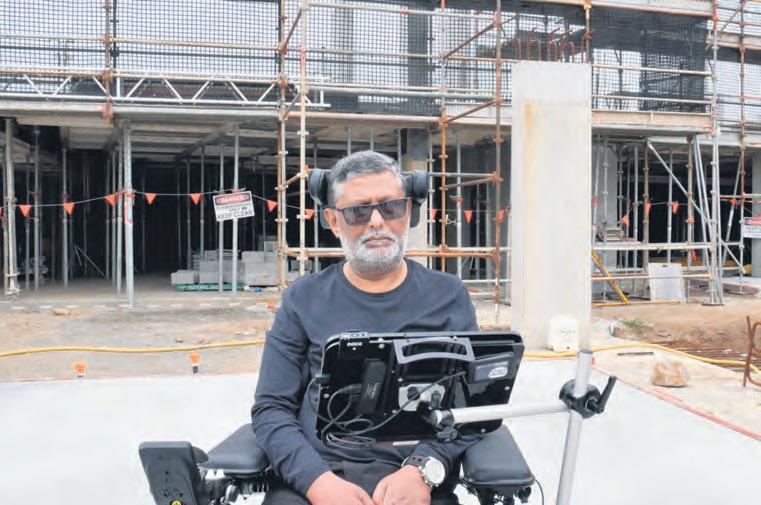
However, since his diagnosis, Kemal’s life changed dramatically. MND has caused progressive muscle weakness and loss of mobility, making it difficult for him to perform even the most basic of daily activities.
Despite these challenges, Kemal has remained optimistic and determined to continue living his life to the fullest. He has found new ways to cope with his condition, including regular physiotherapy and occupational therapy sessions, as well as using assistive devices to help him with his daily activities.
He now uses robots to eat, drink and communicate. A robotic arm gives Kemal the ability to eat and feed himself at the family dinner table. He also uses I-gaze technology to help him communicate, by creating his words and sentences though the movement of his eyes.
As an IT expert by profession, himself, Kemal takes to these devices like a duck to water and embraces every new cutting-edge technology that will help him overcome obstacles placed before him through this disease.
At a recent Brisbane Islamic Centre (BIC) fundraiser, Kemal spoke to the large audience present, via a video presentation which he almost single-handled produced, captured and edited.
Kemal Omar is the co-founder, Secretary and Director of the Australian Muslim Advocacy Network (AMAN) and his regular insights and expertise beyond IT are very much sought after and valued within the organization.

Professor Mohamad Abdalla, also a Director on the AMAN Board, said of Kemal: “Brother Kemal has worked tirelessly to advance the Australian Muslim community’s best interests locally and internationally. His dedication and passion for the community was witnessed on so many occasions. His wisdom and experience have helped shape many initiatives, including the creation of AMAN. He is much loved by his family and community.”
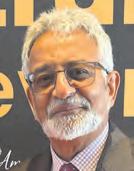
His close friend and AMAN co-founder, Dr Mustafa Ally said, ”A veritable polymath, Brother Kemal’s depth and breadth of knowledge on a range of topics is staggeringly considerable.”
Kemal’s faith has been a source of strength for him throughout his journey with MND. He finds solace in praying and reading the Quran and listening to an eclectic selection of audio books.
His grandchild, Tarik, is a constant source of joy and laughter to him, and his family is a tower of strength for him. His one abiding ambition is to see the realization of the Brisbane Islamic Centre Mosque project, of which he, as its founding Director, was an integral part of its initial vision and conceptualization.
Despite this debilitating disease and his
physical limitations, Kemal has been actively involved and engaged in virtually every aspect of the planning and fundraising efforts for this project, and it has given him a renewed sense of purpose and fulfillment.
He hopes that his legacy will be one of service and dedication to his community. He wants to be remembered as someone who inspired others to be more involved in their communities and to make a positive impact in the world.
Despite the challenges he has faced, Kemal remains optimistic about the future and is committed to leaving a lasting legacy in the physical shape of the Brisbane Islamic centre for the generations to come.
“More than wealth and property, I want to leave my children and grandchildren a community and infrastructure in which they can thrive and live fulfilling lives as good Muslims and good Australian citizens”, Kemal
said in his speech.
If you would like to help with the accomplishment of Kemal’s hopes and dreams for this project, you can donate here:
Donations
Brisbane Islamic construction Fund
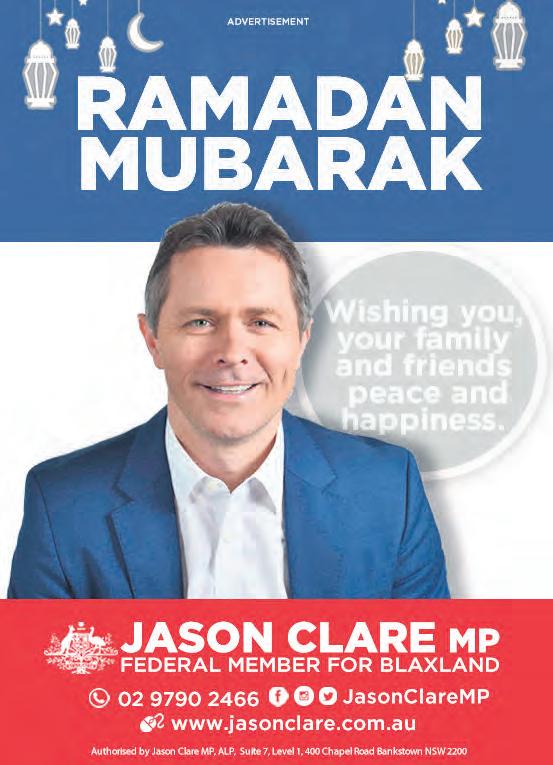
Suncorp Bank BSB: 484799
ACC: 480458040
For overseas transfers:
Swift Code METWAU4B
WEBSITE: https://bic.org.au/
Dr Mustafa Ally OAM is the co-founder and Chair of Australian Muslim Advocacy Network (AMAN) , foundation member of Queensland Muslim Inc. (QMI), and founder and former Editor-in-Chief of Crescents Community News (CCN).
Brothers in Need, a Muslim not-for-profit organisation based in Australia, has been making a significant impact in the lives of the country’s most vulnerable citizens. The organization, which distributes food to the needy, has been running Tea Talks for over a year now, providing an opportunity for volunteers to connect and learn while supporting a worthy cause.
Homelessness is a significant issue in Australia, with approximately 120,000 people experiencing homelessness each night. Brothers in Need has made it their mission to provide support to these individuals, acting as a family for Australia’s forgotten people. Their organization provides a way for those who wish to help others to do so, while also running useful programs to benefit the volunteers themselves.
The Tea Talks are a popular program among Brothers in Need volunteers, who gather together fortnightly to bond and exchange ideas over tea and a chat. While religious subjects are a common topic of discussion, most of the conversations center around women’s issues such as female health, raising children, and other relevant topics.
Dahlia, a staff member of Brothers in Need, notes that the attendees greatly enjoy the Tea Talks. She says, “Some topics are more popular than others, and sometimes,

a different topic comes up, such as the one about visual addictions given by brother Dean….I still recall the first Tea Talk which I attended. It was a wonderful talk given by a lovely sister, about Lady Khadijah (may Allah be pleased with her). It was the end of 2021 and I was driving past Brighton-leSands and listening to stories about the first wife of Prophet Muhammad (peace be upon him). It’s a beautiful memory.”
Through their programs, Brothers in Need has built a strong community of volunteers who are passionate about making a difference in the lives of others. Their work can be found at brothersinneed.org.au, or by calling 1300 007 433.
Dean Mousad is the Co-founder/Managing Director of Brothers in Need, Co-founder/ Treasurer of Project Quran, a Teacher/Mentor at Alfirdaus College and a registered Counsellor with the Australian Counselling Association.
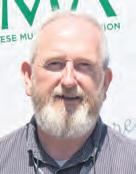
Being a still new revert now working as a writer within the Muslim community, I have been asked by many people how I came to accept this beautiful religion. So here is my story – with apologies for the length – and I do hope that you find it of interest….inshaAllah.
I grew up in a traditional Australian, Catholic household, attending Christian learning institutes in Sydney during the 1960s-70s.
They were different times back then –barely a handful of European and Asian classmates and certainly nobody from a middle eastern background.
Society was really conservative in those days, but my late parents encouraged my four brothers and I to speak our minds and to make our own choices, hence my decision while still a teenager to label myself as Christian, rather than Catholic.
The next 20-plus years of my life passed by uneventfully in terms of religion, only attending church for weddings, funerals, Christmas and Easter.
However, as the 21st century rolled around and thanks to a still fairly new phenomenon called the Internet, I found myself becoming increasingly interested in Islam.
But unlike many other ‘westerners’, rather than joining in the hue and cry against Islam following events like 9/11, the Bali bombings and various acts perpetrated by Islamic State, I found myself supporting the 99.99999 percent of blameless Muslims around the world: innocent people like all of you.
People like my former workmate, who successfully sued his previous employer after audibly being called a “terrorist” by his intoxicated manager at a work gathering.
And the brave school-aged hijabi, whom I saw teased by a much older group of Aussie students on a Sydney train just after Nice 2016, which ISIS claimed responsibility for.
I remember discovering many of the falsehoods that gullible westerners are
tricked into believing from as early as primary school.
Imagine finding out in my late fifties that Israel are not the “good guys” and that Palestinians suffer daily at the hands of their Israeli oppressors; this is but one example….I have countless others.
As the more you dig, the more you find.
I began to read more and more about Catholic clergy being found guilty of sexual assaults on children, despite the best efforts of ‘The Church’ to cover this up (barring Pope Francis, who admitted to a journalist in 2014 that one in every 50 Catholic priests is a paedophile.)
Mind you, that article was well hidden –but the more you dig, the more you find.
Anyway, as time marched on, I found myself engaging with more and more Muslims, mainly online but sometimes in person.
Without exception, friendly people with tremendous family values, who answered all my questions about Islam, without any agendas or judgement.
One my earliest contacts was with the social media influencer many of you know by the nickname of ‘Stuzz,’ who over the past seven years has become a valued and lifetime friend and who provided me with my first opportunity to write about Islam.
As Steve’s researcher and co-writer for stevedabliz.com, all kind of doors were opened to me, interviewing and in most cases meeting prominent members of the Sydney Muslim community like Sheikh Shady Alsuleiman, Ramia Abdo Sultan, Osman Karolia, Dean Mousad, Bashar Krayem, Bachar Zreika, Dalya Ayoub (now living in Turkey) and Tarek Sari.
All before I had even become a Muslim!
A lengthy coffee meet with a very good Muslim named Jehad Skaf and his wife saw
my final hurdle cleared towards accepting Islam – at last realising that while Jesus (a) was a great prophet, he was not the son of God. (How can God have a son?)
Yes, the more you dig, the more you find and on Tuesday 19 May 2020 at the conclusion of a telephone interview for stevedabliz.com with another much-loved Muslim media figure Ahmed Bassal, I finally made my Shahada!
Over the phone, during COVID lockdown, during the final 10 days of Ramadan and on the night Laylat Al Qadr was observed. Alhamdulillah. My first several weeks as a Muslim were a bit difficult, as with the mosques closed owing to COVID restrictions, I had to wait a couple of months for my first visit to the masjid to pray Jummah. The Regents Park musallah became my first and I’d have to say my ‘home’ masjid – the regulars there (headed by mosque manager Zeyad Chmeisse) are great.
Another door that was opened to me and which has also become a mainstay of my life over the past two and half years-plus has been my weekly class at the United Muslims of Australia (UMA) in Padstow, a fantastic community where at last count I had around 200 ‘nephews’.
The UMA’s Australian New Muslims Association courses are fantastic and if the incredibly knowledgeable and wonderfully patient ANMA brothers can teach ME to recite the five daily prayers fluently through transliteration, then they can teach anyone!
Throughout my journey to and since accepting Islam, there has been a lot of what I would have once described as ‘good luck’ and ‘coincidence’.
But as we all know, there is no such thing as good luck in Islam – there are blessings. And there is no coincidence in Islam –
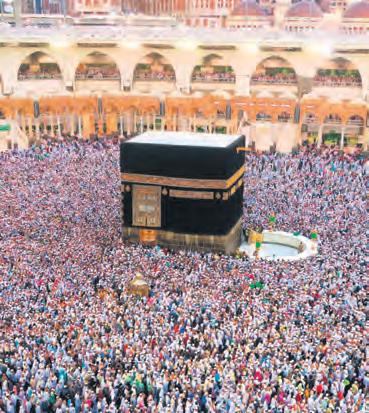
everything is pre-ordained.
In any case, I was definitely blessed in July last year when a close friend mentioned to me that the Lebanese Muslim Association may be “looking for a writer”.
A couple of weeks later, following an interview with Chief Program Officer Bronwyn Hadife and Multimedia Producer Muhammad Farhan Khan, I was appointed Content Writer/Editor of the LMA.
The time has flown this past seven or eight months and it has been a wonderful experience, working in a team environment with a large group of happy, respectful professionals from a wide diversity of backgrounds.
The current board of directors are doing a great job and 2023 will in undoubtedly see the LMA build on the fantastic results it achieved last year.
This will be my first Ramadan working at the LMA, literally a stone’s throw from the historic, the iconic and the fabulous Lakemba mosque (pictured here), and I couldn’t be more excited.
Ramadan will more than likely have commenced when you read this story. My message to you is this:
Let’s all use this Holy month to come together to support each other and spread kindness, love and the word of Islam.
And please remember that not all reverts are as blessed as I am. They haven’t all had social media influencers, sheikhs, doctors, lawyers, businessmen and other great Muslims of all ages among their supports. They don’t have multiple teachers and fellow participants texting them about their welfare any time they miss a class. They don’t get paid to do a job they love for the sake of Allah.
Because there are many reverts out there who have absolutely nobody supporting them. Revert ‘sisters’ terrified to tell their parents for fear of being kicked out of home. Revert ‘brothers’ with nobody to confide in, break their fast with or visit on Eid Al Fitr.
If you know even one of these brothers or sisters, I don’t need to tell you what to do for them this month. But I do know that Allah will reward you for it.
John Mahoney is a Content Writer with over 30 years experience and is based in Sydney, Australia.
My name is Bassam Jamil, I am a young Palestinian from the village of Hittin in the Tiberias district, and I was born in Damascus in 1984. I learned that my family, my close neighbors and I were refugees after our ancestors were expelled from my country, Palestine, by gangs of what is now called “Israel”.
My third-generation peers and I are Refugees. I have lived through many events in my life that I consider unfamiliar or, let’s say, unfamiliar to the standards of the free world, especially in childhood and adolescence.
Syria has entered a conflict whose end does not seem to be near, and Damascus has become a town of ghosts and deferred dead. We had to leave anywhere away from the killings and nights of anxiety and horror. I left Damascus years ago for Lebanon, where not much has changed from the reality of Damascus, in Lebanon we live half a life without dreams and tangible security for a better tomorrow.
My friend and I had to visit Damascus almost a year after leaving, I don’t know if it is the longing for a homeland that they try every day to prove to us that it is nothing more than a borrowed homeland that will
turn over time into a mass execution chamber, or what prompted us to visit it?
Well, maybe this country has become so for those who stayed there, I mean that it has really turned into a mass execution chamber and everyone is waiting helplessly for their turn.
We returned with a cursory visit while the neighborhood where I lived, one of the first Damascene neighborhoods to rise up against the Syrian government, was besieged and my friend and I had to stand on the border of the line of fire, where each side was entrenched with its snipers to counter
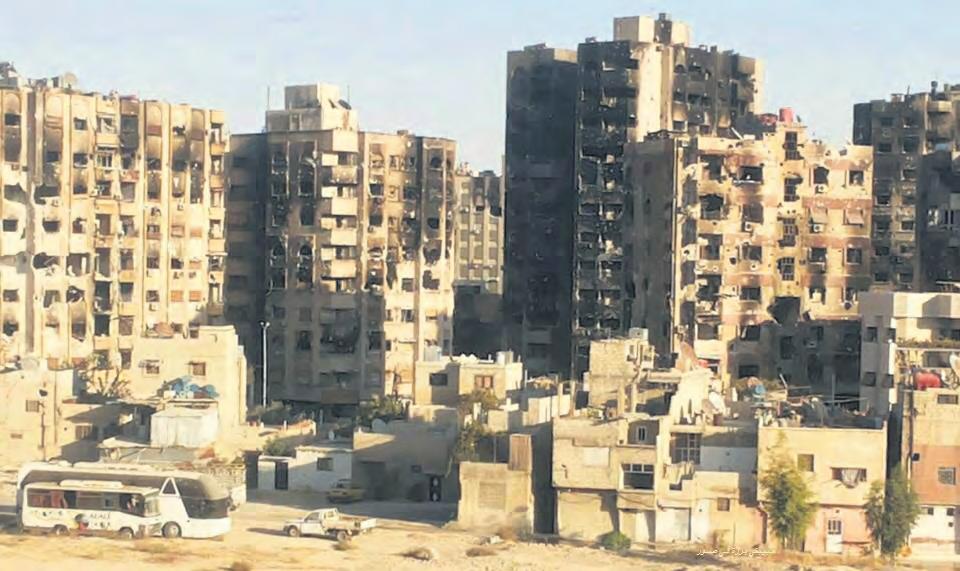
any possible movement, even if it was a homeless shot.
We took a look at the neighborhood and I could see the entrance to my rented house there. My door was facing a young grape seedling that had sprouted by chance through the wall on which it rested. I had no desire to enter the house we had left a year ago or even to bring any of our belongings there.
All I wanted was to check on that plant that surprised me one day by defying the wall and persevering in breaking up the space that is enough for the seedling to declare its right and worthiness to live under
any circumstances.
I looked at the small neighborhood and stared closely at the edges and edges of the houses to survive seeing any plant that resisted the sniper’s eye awl, but I did not succeed. Something inside me pushed me two steps from behind a wall where we were sheltering to look at the street leading to our nearby neighborhood.
Maybe fifty steps separated me from my house and from that verse that resists the wall, I almost succeeded in taking the two steps before my friend’s hand pulled me back and I survived hearing the whizzing of the bullet that was let down by the speed of my friend’s pulling me out of its way.
I returned to Lebanon and here and every time I think of giving in to that feeling inside me of advancing two steps, I hesitate, looking behind me for the hand of my friend who was robbed by smuggling boats to cross the sea to Europe.
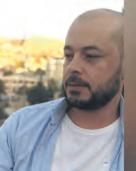
My friend arrived safely and I am still here feeling behind me before any step and thinking about him, showing me that steadfast verse that resists the sniper with its determination to break the wall and cross the light, do you see him waiting for me to say out loud “I am here”?!
My letters are my voice, do you hear it well?
Bassam Jamil is a Palestinian novelist and storyteller, with a total of four literary publications, and many articles published in Arab newspapers.
The month of March marks the anniversary of the illegal invasion of Iraq by Australia, the UK and the US that resulted in the deaths of millions. It also led to the emergence of the Islamic State and other non-state armed actors.
However, they are not alone France has been a malign influence in north Africa and its former colonies in sub-Saharan Africa for a long time.
Together with the invasion of Afghanistan and the 20 years of occupation which led to the invigoration of the Taliban, and the interventions in Libya and Syria these three men created the circumstances that led to the destabilisation of the middle east and Africa.
Not one of these three leaders cared about the UN Charter restrictions on the use of force. Rather, they saw them as obstacles to be ignored or circumvented.
There are millions of victims from the criminal act of the Iraq invasion. Brown University’s Costs of War project notes that the number of people displaced by all the US’s post-9/11 wars, at least 38 million people, “exceeds the total displaced by every war since 1900, except World War II”.
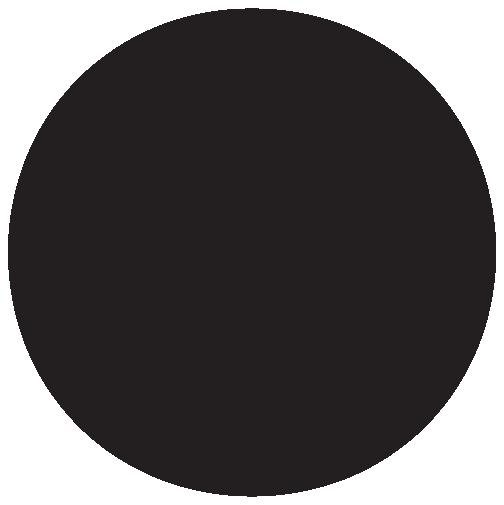
These invasions led to the emergence or reinvigoration of a number of radical groups with a new cause and a new fight. They learned new tactics. They became hardened fighters.
Angry that the US had invaded another Muslim country, money and weapons were donated in huge number from Muslim countries by individuals who might never have thought about donating to a cause that was
violent in nature.
The report of a UK investigation headed by Sir John Chilcot, found the invasion was based on “flawed” intelligence; that the British involvement was executed with “wholly inadequate” planning; that the UK government’s process of determining its legality was “far from satisfactory”; and that UK troops were sent in before all peaceful options had been exhausted.
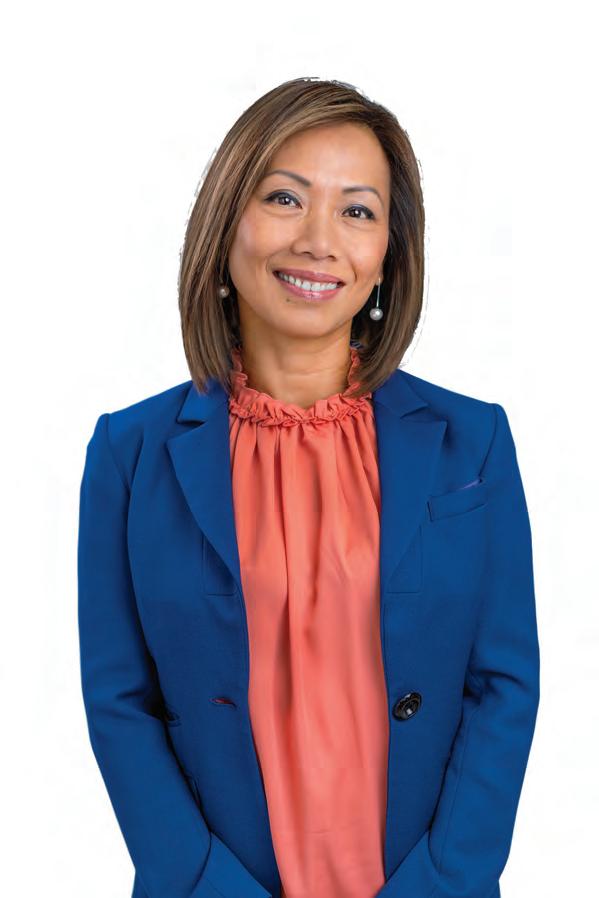
Andrew Wilkie, a former Australian intelligence analyst, quite rightly called for Howard, Blair, and Bush to face war crime charges saying “John Howard took Australia to war based on a lie and stands accused of war crimes.”
Rod Barton, a former Australian director of intelligence on WMDs, reports that in December 2002 the Defence Intelligence Organisation advised the Howard government that “there has been no… known biological weapons production since 1991 and no known biological weapons testing or evaluation since 1991…”
The DIO had assessed that although there might have been some old pre-1991 biological and chemical stocks, given the passage of time these weapons were of doubtful utility.
Just hours after the 9/11 attacks, Donald Rumsfeld was already sending a memo to the joint chiefs of staff to find evidence that would justify attacking the Iraqis as well as Osama bin Laden.
If Bush had respected the Taliban willingness to compromise on the issue of Osama bin Laden, there would have been no need to invade Afghanistan.
Even if, after the invasion the US forces had accepted the Taliban’s offer of peace
talks and compromise after their overthrow the Taliban would not have been able to rebuild after the corruption and excesses of the occupation.
If there had been no invasion of Iraq in March 2003 inspections and monitoring would have continued and a strong built-in alarm and sanction mechanism would have remained in place.
In March 2003 Iraq was exhausted after two wars and over a decade of sanctions. It was not a threat and there was no reliable intelligence to confirm the continuation or revival of WMD.
What other motivations were there for Bush, Blair and Howard to go to war? Was it oil, solidarity, or democracy?
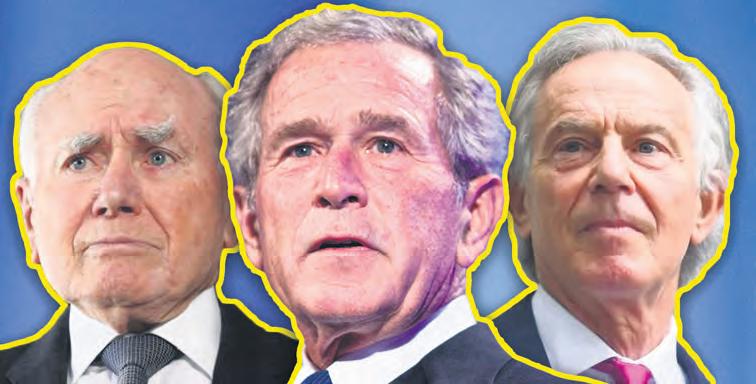
Oil seems to be one motivation, and solidarity of the Anglosphere seems to have played a part but but democracy?
When the popular anger at dictators propped up by the West coupled with frustration at the lack of economic development exploded in the Arab world, down fell the dictators one by one, and with them, dec-
ades of religious suppression.
However, the West quickly supported the coup d’état which inaugurated a new corrupt, vicious dictatorial regime in Egypt and France supported the Tunisian regime.
On the home front Howard, Blair, and Bush used the tragedy to pass laws which suppress basic human rights and enable spying on their own citizens.
Australia, the UK, and the US were all flawed democracies but there was hope and scope for things to improve. However Iraq invasion resulted in the almost complete abandonment of the concepts of integrity, truth, and government accountability.
The apparatus of lying has now become institutionalised in government, abetted by the media.
These governments manipulated the facts, the media (that was also complicit), and the public after the horrific attacks of 9/11 to justify going to war in Iraq as well as Afghanistan followed by interventions in Libya and Syria and now in Africa.
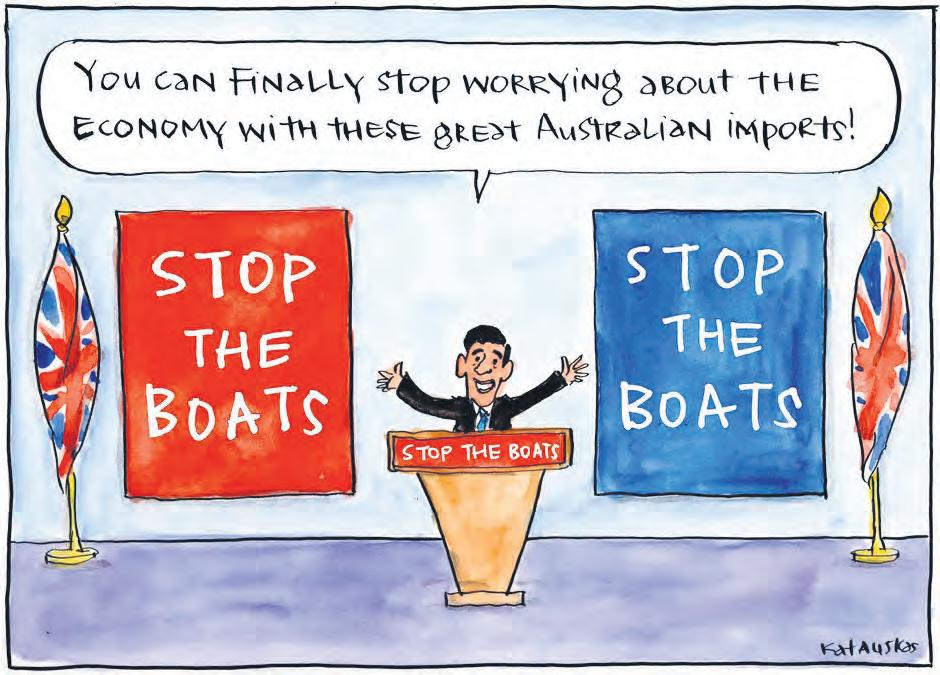
Fadlullah Wilmot close to the language used by the Nazis in their pre-war anti-Jewish propaganda in the denigration and demonisation of the ‘other’ to deflect and blame the Jews or migrants for the problems facing the country.
The month of March 2023 marks the 20th anniversary of the US, the UK and Australia’s invasion of Iraq. It is also the month the UK government introduced Australian-like ‘Stop the Boats’ legislation criminalising asylum seekers who arrive in small boats and immediately deporting them to Rwanda with no right to ever settle in the UK.
Not an Australian export of which the country can be proud.
Last month, the UK parliament considered the question of whether Britain was still a country that recognised the universality of rights that were codified after the second world war and signed by Winston Churchill no less which clarify that it is not illegal for a refugee to land in an irregular manner in a safe country without documents.
However most Tory MPs decided the UK would not follow international law saying they are stopping the boats. Sunak has hitched his party’s electoral prospects to a cruel migration policy.
He has made “stop the boats” a test of his credibility.
Therefore the language the UK Government is using against asylum seekers is too
In many ways, this legislation echoes the 1905 Aliens Act, which pulled up the drawbridge after the mass emigration of Jews from Russian-controlled lands, and other parts of Eastern Europe, and closed off the UK as a country of sanctuary.
As well the legislation seems to reflects the policies of the 1930’s, rather than relaxing entry requirements for Austrian Jews after Germany’s annexation of Austria in March 1938, the British government tightened them, introducing new, strictly controlled visas precisely to restrict their numbers.
According to Whitehall and The Jews, 1933-1948, Louise London’s definitive account of British immigration policy and the Holocaust, “The process…was designed to keep out large numbers of European Jews –perhaps 10 times as many as it let in.”
It would be easy to stop the boats if there were safe and legal routes to reach Britain with resettlement schemes. There are only a few operating and, an as a result the Government’s plans amount to a ban on asylum for asylum seekers from most countries.
The upsurge in the arrival of small boats packed with refugees is a consequence of the UK not currently offering a viable alternative.


“Ramadan Kareem” is the commonly used phrase to express congratulations during the month of fasting. This phrase, which refers to generosity, holds a lot of credibility because Ramadan is considered as a month of goodness for Muslims, where acts of charity and good deeds increase.
However, this year, Lebanon and especially the Palestinian refugee camps are going through difficult circumstances due to the deterioration of the Lebanese pound exchange rate against the US dollar.
In a conversation conducted by the “Mukhayyamats Post “page with a woman in the market of Ain al-Hilweh camp before Ramadan, in response to a question about the prices of goods, the woman answered, “I bought this gallon of oil not long ago for 130,000 LBP, but today I bought it for 660,000 LBP.”
The cost of basic necessities paid by Palestinian refugees in Lebanon’ has become expensive in US dollars, which currently equals around 107,000 LBP.
In light of the significant deterioration in the value of the Lebanese pound equivalent to the dollar, most employees still receive their salaries in Lebanese pounds, which is the normal situation for most workers and employees in the camps, except for two main sources of income, the monthly salaries of UNRWA (United Nations Relief and Works Agency for Palestine Refugees) employees and the salaries of members of Palestinian organizations, in addition to the salaries of NGO employees.
However, the role of expatriate funds cannot be ignored in supporting their families.
Despite this, Palestinian refugees in Lebanon’s camps are among the most marginalized groups in Lebanese society.
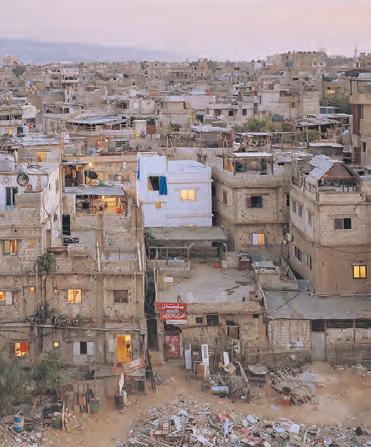
After 75 years since the Nakba, Palestinian refugees in Lebanon are still deprived of most of the free professions enjoyed by any normal human being. And because of these policies, Palestinians feel more and more isolated within the framework of the state, which is reinforced by the nature of the isolated camps from the Lebanese environment.
Ramadan this year in Palestinian refugee camps is a tough test of the refugees’ ability to withstand the economic crisis, and a test of humanity to stand with a people who continue to suffer from the consequences of their displacement from their homeland even after 75 years.
Ihab Mohammad is a poet, writer and English language teacher based in Lebanon. He has made many journal interviews.
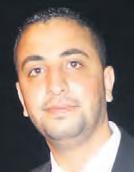
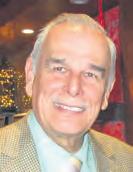
At its root, the ‘Illegal Migration Bill’ exposes the absence of protection, and the use of anti migrant rhetoric to justify policies of exclusion, contrary to international law and human rights norms.
Fadlullah Wilmot formerly served at universities in Indonesia, Malaysia and Aus-

tralia but after the tsunami in Aceh became involved in the humanitarian and development sector. He has worked in Indonesia, Malaysia, Cambodia, Vietnam, Solomon Islands, Bangladesh, Pakistan, Jordan, Lebanon, Sudan, Somalia, Afghanistan and Iraq.

Mahatma Gandhi in his seven deadly sins describes “Religion Without Sacrifice” and “Politics Without Principle”[1].
This piece is a must read (originally written for MBA Projects for effective management on Gandhi’s principles) for people who really love to read and want every day a new improvement lesson.
Gandhi in his early days in South Africa was reconciling belief, politics and colonial injustice and conceived the idea of non-violence as a strategy to combat Britishers.
I think this idea was influenced by his biblical studies in South Africa, and is beautifully captured in famous movie “Gandhi” directed by Richard Attenborough where in a scene Gandhi explains to a reporter friend about how Bible’s teaching of love and non-violence is in deep contrast with what Christian Britishers practice while they rule India.
This was the point where terms like “Satyagrah” and “Ahimsa” were used in Indian context as political tools, but if you trace its origins you will see the notion of sacrifice and principles based faith deeply embedded in Abrahamic traditions.
It is quite an irony how Rahul Gandhi, the leader of opposition is facing a similar situation not too different than what M K Gandhi faced back then.
Indian majoritarian mandate, made possible with the narrative of Hindu renascence is in an ideological fight with the idea of new age India rooted deeply in pluralism and cultural diversity.
On one hand RSS’s ideology of India is a culturally dominated Hindu race picks up the heart and mind of people who fall to the narrative of a greater Hindu state “Akhand Bharat”, in contrast with the modern day nation state definition of sovereign nation propelling the values of human principles like equality, justice, equity, fairness compiled in a national constitution.
A group of people, deeply rooted in their own traditional heritage, saw this definition of India in deep contrast with what they envision an Indian State to be. Their argument, as
I read infamous “Bunch of thoughts” by M S Golwalkar was a “Bharat” identified with its “Hindu Traditions”.
How can you give an identity to a nation by cutting off its cultural symbolism and its legacy religious principles? They are still hooked with the idea of India; belonged to Sages, Rishis and Kings who inherited Indian geographic region and wanted a “state endorsement” of cultural superiority of “Hindu Tradition” over foreign influence.
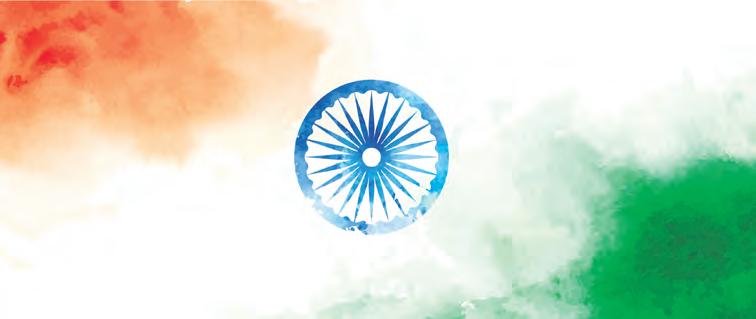
The new age nation-state theory of United Nations was something not getting congruent with the deep affiliation of historical nostalgia with past empires and interpreted injustices conceived in heart and mind.
India is not “Bharat”, and “Bharat” as it exists today is a geographical reduction of “Akhand Bharat” which must be restored in its full legacy to be totally independent. This was the crux of RSS, which took shape in Gandhi’s assassination and further advancements over the times.
Of course, Dr B R Ambedkar, deeply detesting religious practices and fundamentalism had an innate dislike to RSS’s ideology, so was Nehru and few more Congressmen at that time. They thought India will, with her
Millions of people in Afghanistan are in desperate need of emergency aid. This Ramadan use your donation to feed the hungry.
www.hadiafoundation.org
plurality and wisdom will overcome with mediaeval fever RSS is trapped in.
They fail to realise that the soul of a nation is its “conscious” “state of mind” of its people and this “state of mind” can be hacked and altered with fear, greed and misinformation.
They also envision an India in contrast to Pakistan, which was formed based on Muslim Identity, to show as an example where a nation can be led with Secular Principles (Multicultural Identity) and still be highly cohesive, successful and great.
Though mainstream make a point of high importance in projecting Jinnah as founding father of two-nation theory, if we look at history closely we will see this discussion started very early with “Hindu Purists” in making India free of any foreign influence and undermining its “cultural superiority”, thereby having this unspoken tone of “Hindu Nation” to which later political advancements falls to.
RSS remained stealth and waiting to get its fertile ground where it can take an opportunity to be mainstream. This happened with “Babri Masjid” demolition and RSS gained momentum afterwards in contemporary politics.
Rest was all multidimensional appeal to Hindu majority in getting them in a state of fear, worthlessness, and to an extent greed in making “their own Personalised Bharat Great” under the cloak of talking “National Interest”.
Politics, in its utopian state is for people’s welfare. But what if people do not want the welfare you offer? Will you persuade with an offer of a great Nehruvian ideology, to people who are hungry, naked and chin dipped in poverty?
Will you persuade with an offer of a great Nehruvian ideology, to people who are brainwashed, fearful and chin dipped in false propagandas?
BJP recently accused Rahul Gandhi on making remarks abroad as an insult to India’s Parliament, democracy and people [2]. The remarks however were about the authoritarianism undermining national institutions and democratic principles.
In his speech, Rahul said, “Indian democracy is under pressure and under attack. The institutional framework which is required for a democracy… Parliament, free press, the judiciary, just the idea of mobilisation — these are all getting constrained. We are facing an attack on the basic structure of democracy.” Referring to the Pegasus snooping controversy, he said that a number of politicians, including him, had been spied upon using the Israeli software. A large number of political leaders have Pegasus on their phones. I myself had Pegasus on my phone. I have been called by intelligence officers who say please be careful of what you say on the phone as we are recording the stuff,” he claimed [3].
There is a constant proliferation of misinformation subtly guided to maneuverer people’s bias towards minority, instigating hatred, anger and a sense of numbness over injustices against anyone who is putting a question mark on ruling regime.
Mainstream opposition is also playing very safe in not hurting the majoritarian sentiments and also holding the ground for gaining electoral margins.
This is a true test of “principle based politics” and will be interesting to see how India, a land of wonders and miracles react to preponderance of false political narratives.
Rashid Siddiqui is a Certified Senior Cybersecurity professional with 17 years of multi-faceted international experience; expertise in managing the corporate and IT Cyber security and Technical Risk of Telecommunication, Banking and IT industries.
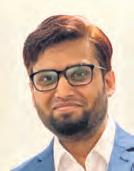
Ihab Mohammad
$
A/C Name: HADIA Foundation
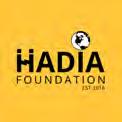
BSB - 032134
Bank A/C: 361836
120 Ramadan food ration
From only as little as $120 you can provide food for a family of 7 persons for the whole month of Ramadan and prevent children from becoming beggars.
HADIA Foundation (ABN 60 610 944 155) is a registered charity in Australia. All donations above $2 are tax deductible. Please email your name to info@hadiafoundation.org to get your tax receipt.
It is well known that the United Nations agencies are mainly concerned with the circumstances of struggling all over the world . UNRWA (United Nations Relief and Works Agency for Palestinian refugees) is one of the most complicated working agencies of the United Nations simply because of its direct relation with the Palestinian case and the Palestinian refugees.
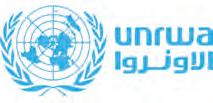
Therefore, the spotlight is directed towards the role of UNRWA in the camps in terms of services, healthcare, and education.
Since its inception after the Nakba, UNRWA has been responsible for Palestinian refugees. However, today, UNRWA’s performance is affected by many factors, the most important of which the funding is related to political positions of the donating countries and their position from the Palestinian case .
The Palestinian refugees in Lebanon’s camps continue to face difficult living conditions, and their situation is further compounded by the economic crisis in Lebanon.
In terms of healthcare, UNRWA has taken
on the responsibility of providing health insurance for refugees since its establishment. However, today, the conditions of health insurance provided by UNRWA are extremely poor, limited to primary non-specialized treatment and hospital treatment is only covered up to 60%.
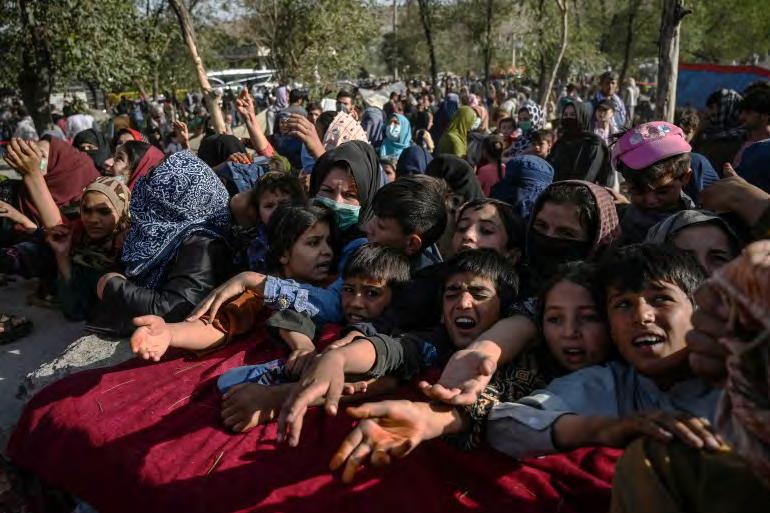
As for education, Palestinian refugees in Lebanon suffer from overcrowded classrooms in UNRWA schools, especially after the displacement of Palestinians from Syria to Lebanon following the Syrian War in 2011.
It is worth noting the severe shortage of teachers, which opens the door to discuss one of the most important objectives of the existence of UNRWA, which is the employment of Palestinian refugees.
This urgent need is linked to Lebanese labor law, which exempts Palestinians from most professions and also to the high unemployment rate due to the general economic situation in Lebanon .
At the end, we must reassure that UNRWA faces a lot of difficulties not just in Lebanon, but also in its other four working regions : Syria, Jordan,West Bank, and Gaza. So, it needs a lot of support and concern.

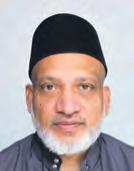
Ramadan is one of the most special and meaningful events of the Islamic calendar, observed by millions of Muslims around the world. During this incredible month, Muslims engage in a period of fasting, abstaining from food, drink, and other physical needs from sunrise to sunset. It’s a time for spiritual reflection, devotion, and generosity.
For Muslim students in public schools in Australia, navigating Ramadan can present some unique challenges, especially when it comes to their school routines. The good news is that schools in Australia can play a vital role in supporting their Muslim students during Ramadhan.
Here are six tips for ways Australian schools can help their Muslim students feel valued and supported throughout Ramadan.
Ramadan dates
The dates of Ramadan shift slightly each year, as it is based on the Islamic lunar calendar. Schools should ensure that they are aware of the dates of Ramadan and make necessary arrangements to support their Muslim students during this time.
Schools can communicate the dates of Ramadan to all students and staff and ensure that they are aware that many Muslim students may be fasting during this month.
Adjust the schedule
During Ramadan, Muslim students may need to adjust their school schedule to accommodate their fasting. Schools can consider adjusting the timetable to allow for shorter days or early pick up times for Muslim students who are fasting during Ramadhan.
This will enable Muslim students to leave school early to break their fast and rest before continuing with their studies. Schools can also consider rescheduling exams or assessments or avoid scheduling them during fasting times.
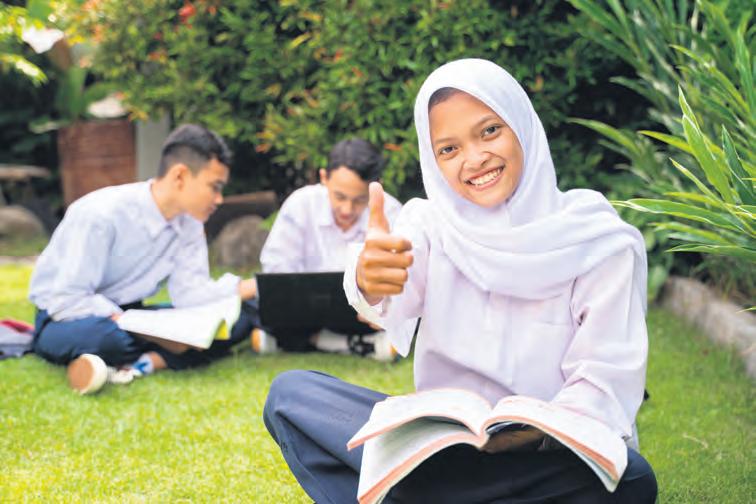
Provide a quiet prayer space
Schools can provide a designated prayer space for Muslim students to pray and reflect during Ramadan. This can be a quiet room or a quiet, clean area maybe in the school library or a quiet corner of the classroom for this purpose, during Ramadan.
This will help Muslim students to stay connected to their faith during Ramadan and support their spiritual well-being.

If possible, a prayer space should really be made available all year around for Muslim students who would like to observant of
their daily Islamic prayers.
Physical education classes can be challenging for Muslim students during Ramadan, particularly if they are fasting. Schools can offer flexibility with physical education classes during Ramadan to support their Muslim students.
Schools can consider adjusting the physical education schedule or offering low-impact alternative activities for students who are fasting.
Encourage cultural sensitivity and inclusion

Schools should promote cultural sensitivity and inclusion during Ramadan. This can be done by educating other students and staff about the importance of Ramadan and the significance of fasting for Muslim students and families.
Schools can encourage non-Muslim students to participate in Ramadan-related activities, such as fundraising for charity or attending local community iftar events, to promote greater understanding of different cultures and beliefs.
Eid Celebration
The end of the month of Ramadhan is marked by the traditional Eid celebrations. Each culture and family may celebrate Eid a little differently but it’s generally a time spent together with family and loved ones. The first day of Eid sometimes falls on a weekday.
Most large organisations offer cultural days off for employees to be able to spend this time together with their families. Aus tralian schools could also give Muslim stu dents the option the spend the first day of Eid in celebration together with their fami lies at the end of Ramadhan.
Ramadan is an important time for Mus lim students, and schools in Australia can do a lot to support them during this blessed month.
By being aware of the dates of Ramadan, slightly adjusting the school schedule, pro viding a space for prayer and reflection, of fering flexibility with PE classes, allowing a day off for Eid and encouraging cultural sensitivity and inclusion, public schools can ensure that Muslim students feel supported and included during Ramadan.
These actions will not only support Muslim students, but also promote a culture of understanding and inclusion in schools in Australia.
Why didn’t Allah prescribe fasting in the month of Ramadan for all humans? Why did Allah prescribe it for the believers only?
This is the main question I would like to discuss about in this brief essay.
At the outset, let us look at the verse in the Holy Quran in which Allah has prescribed Fasting for the believers:
“O you who believe! Fasting is prescribed to you: As it was prescribed to those before you that you may (learn) self-control (Taqwa).” [Quran 2:183]
Who is a believer? Before answering the question of why Allah commanded only the believers for the month long fasting, it is a good idea to know who a believer is.
A believer has two main qualities. One is belief in heart and proclamation by the
tongue. In it, the person believes in Allah and His Messenger, and all other things Allah wants him/her to believe without doubt, and openly declares about the belief and about the submission to Allah.
Another part is the action part. In it, a believer takes Allah’s guidance into the day-to-day life, and practices Allah’s codes through Quran and Sunnah to obey Allah all the time.
Fasting is one of those codes from Allah. In Quran, Allah described a beautiful quality of believers:
“And they say, ‘we hear, and we obey: (we seek) Your forgiveness, our Lord, and to You is the end of all journeys.” [Quran 2:285]
Why Allah prescribed fasting for the believers only?
The first reason is that Allah is All-Wise. Would it be wise to prescribe a university course on a student who refused to get admission to the University?
A believer voluntarily submitted himself or herself in the University of Allah. So, All Wise Allah prescribed the divine fasting course on them because they want it and are ready for it.
The second reason is that the prescriber Allah is extremely fair. Believers have surrendered themselves to His obedience, and they always supplicate for guidance, “Guide us to the straight path [Quran 1: 6],” and it is only fair from Allah to give them a guidance course, and one of them is fasting in the month of Ramadan.
Allah never deprives His obedient servants when they pray to Him. He is Fair.
The third reason is Allah’s kindness on the believers for their dedication to Him. Believers go through struggles, criticism, challenges from inner desires, and sometimes oppression and mistreatments because they believe in Success through Faith and Righteousness.
Most kind Allah prescribed Fasting in Ramadan for them to practice it for ultimate success in this life and in the next life. Allah is kind to all His humans, and gives them free guidance for success, but some do not take it while believers do. (Allah knows
The Month of Ramadan is here again with Allah’s blessings, mercy, forgiveness and unlimited rewards and benefits. Let us work hard to maximise the benefits from it.
“And He it is who has made the sea subservient …/ And He has placed firm mountains on Earth, lest it sway with you, and rivers and paths, so that you might find your way,/ And landmarks; and by the stars they are guided.” (Quran 16:14-15)
Muslim travelers like Ibn Batuta are famous names among Muslims and non-muslims. But the history of traveling around the globe dates back to the birth of Adam(a). Travling among us Muslims, have importance in different ways. If we summarize them, the general reasons of moving on the Earth of Allah are:
To glance the beauty and the perfection of Allah’s creation
“And He is the One Who has subjected the sea, so from it you may eat tender seafood and extract ornaments to wear. And you see the ships ploughing their way through it, so you may seek His bounty and give thanks ˹to Him˺.” (Quran 16:14)
Allah made his creations as signs for us. These are signs that lead us to obeying Allah’s commands and feel how small we are in front of Him. Ibrahim(a) went to the conclusion that there is only one God, and He is not the sun, moon, mountains or any other kind of creations.
To gain beneficial knowledge
‘Abu Darda said,”…l heard the Messenger of Allah say: ‘Whoever travels a path seeking sacred knowledge, Allah will place him on a path leading to Paradise. The angels lower their wings for the student of sacred knowledge, pleased with what he is doing. The creatures in the heavens and earth seek forgiveness for the student of sacred knowledge,
even the fish in the water. The superiority of the religious scholar over the devout worshipper is like the superiority of the full moon over the other heavenly bodies…”‘(Hadith)
Musa(a) traveled to Khijir(a) to gain knowledge from him. Sahabas traveled here and there to know about a few sentences of hadith.
To preach Islam/Dawah
“Convey from me, even a single verse…” (Hadith)
Many Muslim countries that we see today, once were introduced by explorers and businessmen.
Explorers
Among all the Muslim explorers, the most renowned and legendary is Ibn Batuta. Other than that, there are Ibn Khaldun, Ibn Jubair, Ibn Fadlan, Imam Bukhari. Many Muslims of present time like Taqi Usmani has spent a lot of time in traveling to many countries.
Let’s explore some explorers:
Ibn Batuta
Born in the 14th century. Seven hundred years after the Hijra. He was a Moroccan.
In Arabic, a travelogue is called al rihla. Ibn Batuta’s greatest work, commonly known as is rihlah Ibn Batuta. When 21, his neighbours saw him set off for Hajj, which usually took 16 months. They did not realise that they would not see him for the next 24 years! And who could have imagined this man will become a legendary person in the golden pages of history.
One of the pious men he had visited interpreted a dream of his and said that Ibn Batuta was to be a world traveller. He travelled nearly 117,000 km in total. The main goal was to explore foreign lands.

Imam Bukhari
Bukhari, probably the most famous name among us Muslims, after the prophets and his
companions. Known for his great compilation of sahih hadis.
This legend was born in the city of Bukhara, in present day Uzbekistan. He was born in the 9th century CE or the 2nd century of Hijrah. He started learning hadith from being a child, performed Hajj at the age of 16.
He traveled the main cities of that time to collect Hadith. He traveled to Syria, Kufa, Basra, Egypt, Yemen, Jerusalem, Nishapur, Damascus, Baghdad.
He studied under the great Imam Ahmad ibn Hanbal. Along his travels, he memorized near Four hundred thousand Hadith and included only two thousand in his work sahih. His goal was to gain knowledge and collect Hadith.
Mufti Taqi Usmani
The Deobandi scholar, sometimes referred as shaykh al islam, born in 1943 (still alive). He wrote many books in Urdu, Arabic and English. He traveled around Asia, Middle East, Europe, America, Australia and Africa. Altogether he visited about 84 countries, which is like 40 percent of the world. His travelougue is jahaan e deedah, translated in many languaes in volumes.
Conclusion
Traveling and exploring new places, people and culture, and spreading the message of Islam has been a top priority since the age of the Prophets (a).
We must agree that Islam that we see today, is of course by the grace of Allah and the efforts of the messengers, but all these explorers, travelers of the land of Allah played a great role in the spreading of Islam.
As it is said, life is a journey.
Kazi Abdullah is a Bangladeshi teen who is eager to share the stories of Muslims throughout the community.
As I write this, my heart is heavy with the weight of the responsibility that we carry at the National Zakat Foundation (NZF). Every year, as Ramadan approaches, I am reminded of the immense need that exists within our community and the vital role that we play in providing support and assistance to those who need it the most.
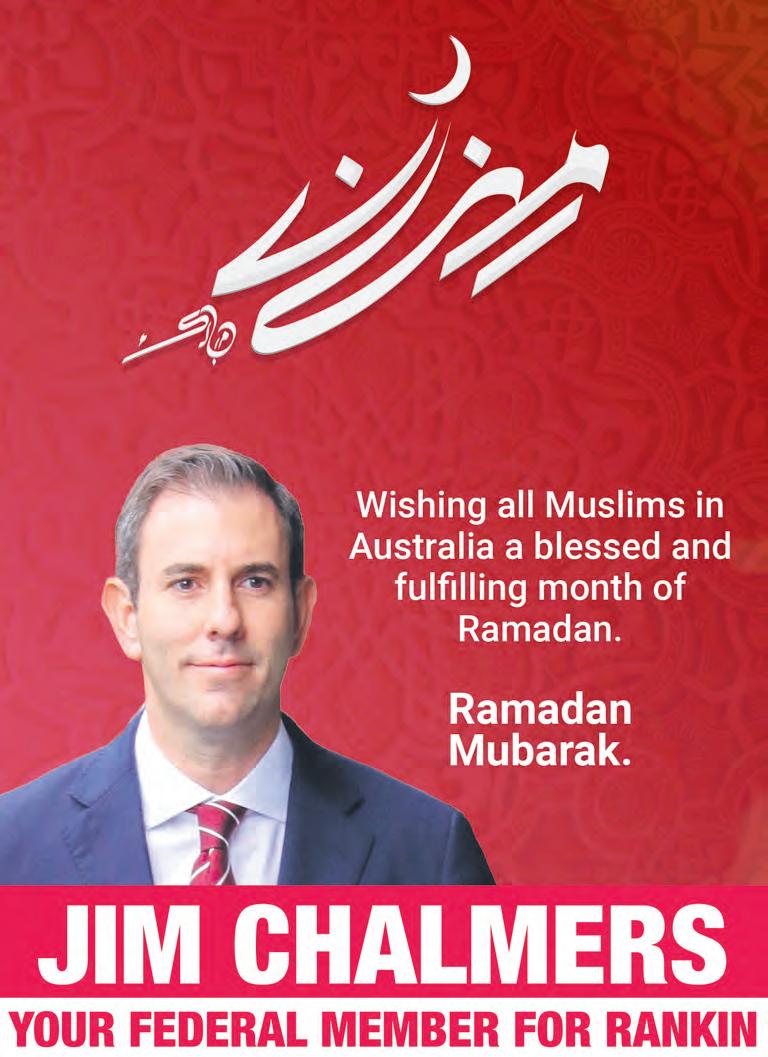
For over 10 years, the team at NZF has been working tirelessly to collect and distribute Zakat locally, providing a lifeline to thousands of eligible Muslims in need. We have seen first-hand the transformative impact that our work has had on the lives of those who have been struggling, and it is a humbling experience to be part of such a noble cause that we are grateful for every single day.
Through the blessing of Allah, we have been able to distribute over $14.4 million to 19,600 eligible individuals, ensuring that they have the resources they need to live their lives with dignity and respect. From providing emergency relief to sisters who might be homeless, to providing life skills to transform Zakat receivers to payers, we have come a long way in transforming lives in our community.
But our work goes beyond just financial assistance. We believe that education is the key to empowering our community and ensuring that we are fulfilling our religious obligations correctly. That is why we have made it our mission to help educate our fellow Muslims on how to calculate their Zakat accurately, dispelling misconceptions and making the process more accessible.
We have assisted many Muslims who have missed or paid Zakat incorrectly in the past, providing them with guidance and support to get back on track, helping them come closer to Allah as individuals and ultimately as a
collective community.
The impact of our work goes far beyond just the numbers. At NZF, our ethos is to recognise that every human being has inherent worth and dignity, and it is our duty to do everything in our power to ensure that they are treated as such.
By paying Zakat locally to NZF, we can make a real difference in the lives of those who need it the most, providing a beacon of hope in a world that can often feel dark and lonely. We have seen tears of joy and gratitude on the faces of those we have helped, dua for those at NZF and every single one of you who paid their Zakat, and it is a feeling that I will never forget.
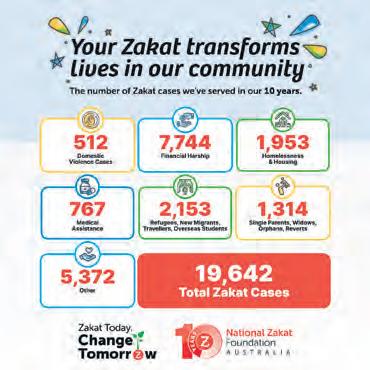
This Ramadan, consider paying your Zakat and Sadaqah locally to NZF. Let us come together as a community to provide support and assistance to those who need it the most.
Together, we can make a difference, fulfilling our religious obligations and bringing joy to those who need it most. Let us show the world what it means to be a Muslim, and let us do it with compassion, kindness, and love.
Gulhan Yoldas
This year, for the first time, the Islamic Schools Association of Australia (ISAA) hosted the Inaugural Executive Leadership Retreat, with the executive leaders from over 40 Islamic schools across Australia participating.
ISAA was first established to promote and enhance Islamic education in Australia.
The organization was founded by four passionate and dedicated individuals who saw a need for Muslim children to receive quality education that aligned with Islamic ethos and values.
The pioneers of ISAA include;
• Mr Magar, Founder of Australian Islamic College in WA
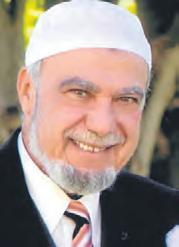
• Mr Mohammed Hassan, Founder of Minaret College
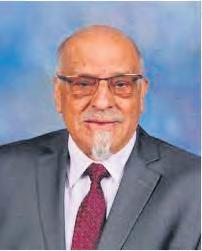
• Mr Salah Salman, Founder of Australian International Academy
• Mr Omar Halak, Founder of Al Taqwa College
The ISAA’s vision is to develop and maintain Islamic schools that excel in academic and Islamic education, foster the intellectual, spiritual, and moral development of students, and serve as vibrant centers of the Muslim community.
The organization’s core values include ac-
ademic excellence, ethical conduct, community service, and respect for diversity.
The current ISAA President, Mr Abdullah Khan, along with the Executive team, advocates for the representation of all current 26 member schools from around Australia, on policy matters at various forums, including State and Commonwealth levels.
Mr Khan has been actively involved in advocating for the rights and appropriate funding of Muslim students, as well as advocacy for freedom of religion in faithbased schools.
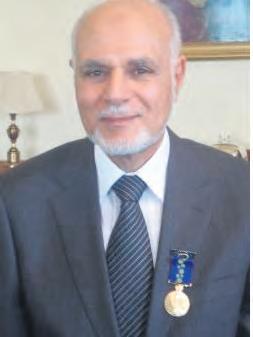
ISAA’s purpose is to provide leadership, support, and resources to Islamic schools in Australia, to ensure they deliver quality education to students.
The organization promotes collaboration and partnerships between Islamic schools, facilitates professional development and training for educators, and advocates for the interests of the Islamic education sector.
The ISAA’s long-term goal is to see the development of a comprehensive Islamic education system in Australia, where students receive holistic education that combines Islamic teachings with academic excellence.
The organization envisions a future where Islamic schools are recognized as centers of excellence and models of academic and Islamic education, as well as being recognised for their positive contributions to society.
The ISAA Executive Leadership Retreat was an important initiative that reflects the organization’s commitment to providing ongoing leadership development opportunities for its members and non-members from within the Islamic education sector in Australia.
The retreat provided a platform for leaders of Islamic schools to network, learn from each other, and develop their leadership skills.
ISAA is a pioneering organization that has made significant contributions to the development of Islamic education in Australia.
Its founders’ vision, passion, and dedication have laid a strong foundation for the organization, which continues to thrive under the current leadership, led by Mr Abdullah
Khan.
ISAA currently has 26 member Islamic schools across NSW, SA, WA, VIC, and QLD.
Moving forward, ISAA plans to provide a platform for discussions on education issues related to Islamic schools, ensure accurate representation of Islamic schools and Muslims within the education community, and enhance public understanding of the contributions made by Muslim educators and students to society.
ISAA’s vision is to continue to provide a voice and recognition for all Islamic schools with shared resources and information and collaboration between members.
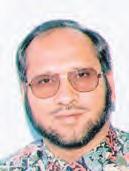
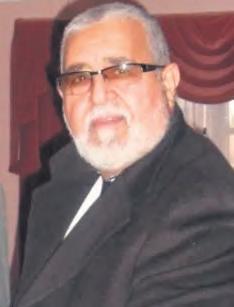
Be a human only, without prejudices
I must acknowledge the enormity of public ignorance about various aspects of the Qur’an’s beauty and appeal. Many Muslims are equally ignorant of such beauty and appeal as are the non-Muslims.
In contrast to the global Muslim practice, the Qur’an was never revealed to be read and recited only. Instead, as the Qur’an itself states (16:44), it was revealed for its readers to ‘deeply contemplate in its meanings and learn lessons from it’.
The unrivalled artistic narratives and the universal coverage of the subject matters provide the examples of the beauties the Qur’an contains.
On issues of the linguistic matchlessness of the Arabic Qur’an, the case of the beauty is both outstanding and compelling. Such beauties would indeed stand out to a critical reader and thinker.
To realise this, one does neither need to be a Muslim nor a believer!
What makes the ignorance about the Qur’an rather worse, is the Islamophobia that some vested quarters are keen to promote.
Yes, the contemporary Muslim reality is responsible for not being able to deliver the message of the Qur’an to the humanity today. They have failed to deliver it in a style and narrative that appeals to the humanity today.
Unfortunately, Muslims are mostly busy memorising the Qur’an and reciting its verses, in the nicest tunes and voices.
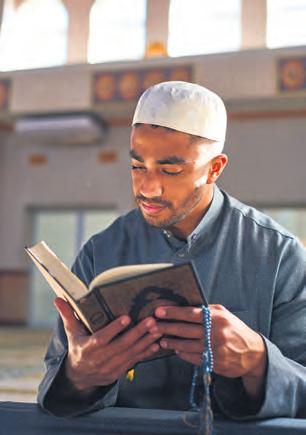
These are of course important, and the Gracious God is bent on rewarding all the efforts to preserve and promote His Book! But the truth remains that the main objective of the Qur’an was to learn the lessons from its content and act accordingly.
The Qur’an is replete with verses that insist on deciphering and deeply contemplating their meanings and implications.
Before all else, todays’ Muslims should have invested their concerted efforts in presenting the universal message of the Qur’an to the entire humanity.
Against this background, we call upon the
fair-minded and the neutral readership today, to study the Qur’an with a holistic view to its verses as outlined throughout this article.
While making this call, the bottom-line rebuttal remains that the Qur’an was meant for the entire humanity at all times, and not only for the Muslims!
To such a fair-minded readership, equipped with a heart beseeching truth, the Qur’an will imbue the grace and majesty it embodies.
The pre-conceived prejudice would spell an initial myopia. Still, the repeated reading of it and the cross-referencing of subject matters, have the potential of an overriding and overwhelming positive effect upon a critical, just and fair reader.
Whether it should be taken as a caution or compliment, is an option to the readership! When approached with such an open mind, the Book will live up to the testimony of its opposition: “Indeed, the Qur’an offer a distinct sweetness that is bound to spell magic on its reader” [2].
Over numerous occasions, the Book was alleged to be an ‘outstanding magic’[3]. Allegation aside, this was an admission by the adversaries that its beauties are both unmatched and unrivalled.
The Qur’an provides a living proof that the revealed scriptures, do not only need to be authentic in origin and continue to be so. But also, it must be applicable to human living to accommodate their needs, necessities, and conveniences. The Qur’an would fit this criterion to a grand scale!
The miracles and the Qur’an
We know that miracles alone do not represent the beauties of the Qur’an. On the contrary and despite the demands from the audience for miracles, the Divine God did not grant their wish either.
Once, the Prophet (s) was promoting the Qur’an among his people from the tribe of the Quraish. As a public meeting place,
the neighbourhood for the House of God, (Ka’bah) was the ideal fit. The Prophet (s) had then taken himself to the top of the Safa Mountain, within the parameters of the Ka’bah.
From there, he addressed the audience from his own tribe Quraish. At one stage he was quizzed by the audience: “O’ Muhammad (s), you tell us that Moses (a) had a stick by the strike of which he used to get out of the dead stone flowing water. You also tell us that Jesus (a) used to blow-back life in dead persons. You have claimed that the Prophet Saleh (a) produced for his people (Thamud), a live camel out of stone. So, for us to believe you as a true prophet of God, why don’t you produce a miracle? If you succeed, “We swear oaths in the name of God to believe in you.” This public event of swearing of the challenge by the Prophet’s audience was clearly recorded in the Qur’an before us today[4].
Having had seen them earnest, the Prophet (s) had then asked “What miracle do you want me produce for you?” [In one voice, the audience replied: “You transform the very Mountain of Safa, on the foot of which we are now standing, into pure gold”.
The Prophet (s) then started to pray to God to do the needful as was demanded of him. As usual, the Angel Jibrei’l appeared to him with the message from God saying: “If you insist, the mountain will turn into gold, but then if they don’t believe we will severely punish them”,perhaps to their annihilation, as was the case with the nations of Moses (a) and Saleh (a).
The Angel Jibrei’l then further advised: “Alternatively if you wish, leave them as is, with the option of repenting for those so choosing”. Eventually, the Prophet (s) had settled for this option[5].
This public encounter was recorded in the Qur’an in the verses 06:108-111.
The lesson to be taken away:
Clearly, instead of granting the wish of his audience, the Prophet (s) had settled for a solution that struck at the core of human intelligence. The examples cited above, were empirical in that with arrogance in the audience, even the miracles do not work.
With this background, what guarantee is there that the audience of the Quraish will be any different this time around?
Despite the miracles of Moses (a) and Saleh (a), the audience did not comply! The message of the Qur’an is thus different: That the audience to undertake their due diligence instead, which would spell out the Book’s magic and appeal in its message.
As an approach, this may alienate the short-sighted few, but would make a real person embrace it. To a critical mind, employing the process of objective analysis is the only way forward.
The Qur’an makes it a pre-requisite for human beings who decide to live up to their own standard. The Qur’an thus, would live on as the icon of human logic and the paragon of every logician.
In conclusion, we may assert that the critical mind of the 21st Century, with all its glitters of scientific inventions behind, would suit the demands of the Qur’an most. Nowhere is it more relevant than in relation to the critical employment of human intelligence on issues of life and living interacting with revelation.
By its demand to lead a responsible lifestyle, the Book had cast the humans to their true position as the super race on earth. By this token, it had also acknowledged their potentials in making the earth a safer abode cohabiting with others that share it.
This is the point of strength in view of which the human intelligence has been dealt with throughout the Qur’an.
Finally, if this work brings the revealed wisdom a little closer to the grasp of the critically searching human intelligence, the success envisioned behind it, would be spelt out- insha Allaah!
Dr Rashid Raashed based in Sydney is currently the Director of Islamic Financial Services Australia (IFSA). He graduated with speciality in Hadith from Islamic University, Patya, Chittagong, Bangladesh, BA (Hons) in Arabic and Islamic Studies, Tripoli, Libya, MA (Usyd) and PhD (Macquarie Uni) in Islamic Financial System.
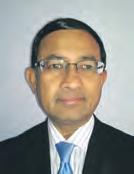
In the past week or so, there has been a debate where the Federal Government was seeking to enshrine a definition of superannuation in law. The aim is to preserve superannuation savings to deliver income for a dignified retirement in an equitable and sustainable manner. This would involve considerations on superannuation tax concessions and protection of superannuation system against future policy on early access to retirement savings.
The Government has announced that, from 1 July 2025, tax on superannuation earnings for balances over $3 million will double from 15% to 30%. This measure will affect only 0.5% of Australians and generate an additional tax revenue of $2 billion a year. The $3 million threshold will not be indexed, indicating that the level at which higher tax would be levied would not rise over time.
The existing tax concessions on superannuation is massive. According to an analysis by Australia Institute, these concessions are forecast to cost the budget $52.6 billion in 2022-23, just under the total cost of the age pension at $55.3 billion.
Currently, superannuation enjoys a generous taxation regime. Australians can make before-tax contributions to their superan-
nuation funds which are taxed at a flat rate of 15%. The concessional contributions are currently capped at $27,500.
The earnings of the superannuation funds are also taxed at 15%. Once Australians retire, investment earnings in their funds are generally tax-free and payments (income stream and lump sum) to superannuation fund members once they are aged 60 or over are also generally tax-free.
Australians who are High-income earners face income tax rates of up to 45% on their earnings. But, they pay only 15% tax on concessional superannuation contributions, a potential saving of 30%.
An analysis by the Association of Superannuation Funds of Australia (ASFA) in 2019 shows that approximately 320,000 Australians had super balances of over $1 million, about 80,000 having more than $2 million and about 11,000 had over $5 million.
Although these figures were reported in 2019, the balances are unlikely to have risen by very much since that year. The average superannuation balance is $150,000 and 67% of Australians have less than $100,000 in superannuation savings.
According to Grattan Institute, the superannuation tax concessions unfairly benefit
wealthy Australians– with 67% of the value of the concessions going to the top 20% of income earners. The remaining 33% of the concessions are shared by the other 80% of superannuation fund members. This reform to the superannuation tax concession regime would contribute to a retirement income system that is fair and equitable.
Superannuation system was designed to provide a comfortable retirement income rather than a vehicle for wealth creation by high income earners.
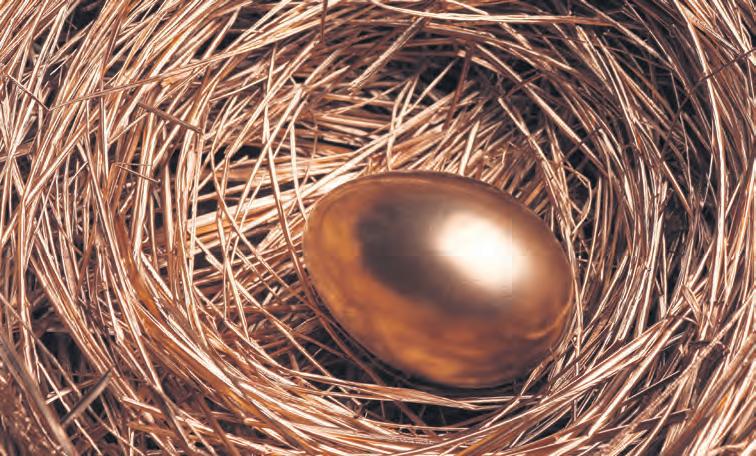
Future policies shouldn’t erode superannuation balance for Australians, even if in the guise of assisting first home buyers or paying for university debt. A recent Covid-19 pandemic policy allowed Australians to withdraw up to $20,000 from their superannuation funds ahead of retirement if they had lost jobs or had working hours reduced.
Approximately $36 billion was withdrawn under this policy in 2020. In the analysis of ASFA, roughly 1 million superannuation accounts were left with less than $1,000 and about 160,000 accounts were emptied and closed.
Australian superannuation industry is one of the largest in the world, with over 3.3 trillion invested in it. A legislative definition to determine what exactly these funds should be used for as well as having an equitable taxation regime would serve well in retirement income for all Australians.
Dr Abul Jalaluddin is an Islamic Finance expert, taxation advisor and a regular columnist for AMUST. He is based in Sydney.
The Australian Business Summit Council Inc hosted its fourth annual Media Conference and Luncheon at the five-star Le Montage Reception Centre in Lilyfield, New South Wales on Monday 13 March 2023 to announce the upcoming publication of the fourth issue of EKONOMOS, the official ABSC Inc business affairs magazine.
More than sixty VIPs and guests attended this significant event, featuring H E Dr Ali Kraishan PhD (Ambassador of Jordan) and the Consuls-General of Egypt and Bangladesh, the Hon Mr Damien Tudehope NSW MLC, and the Deputy Mayor of the City of Canada Bay and Liberal candidate for Drummoyne in the 2023 NSW state election, Ms Stephanie Di Pasqua, as well as eminent business leaders, multicultural community leaders and representative members of the multicultural press corps.
ABSC Inc president for the fourth con-
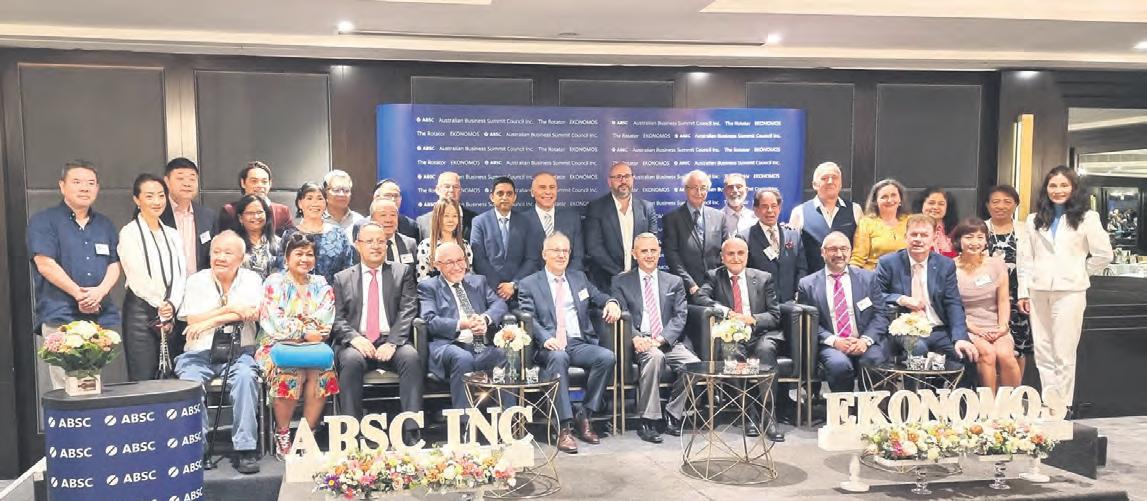

secutive year, Dr Frank Alafaci PhD outlined the Council’s broad agenda to enable business leaders to network and enhance
business opportunities by serving as an extensive medium for sound business policies and practices and stimulating informative debates and discussions on issues pertaining to business relationships between Australia and the international community.
Indeed, the ABSC Inc has expanded rapidly since its establishment in late 2018 to augment its influence and pervasiveness within the business community in Australia and abroad through actively promoting business investment and innovation into high value-added and technologically advanced sectors and industries, and assisting small, medium-sized and large businesses to further multilateral business relationships within the national economy and extraterritorially through the Council’s signature events.
EKONOMOS, Issue 4, 2023, will comprise article contributions from seventeen prominent academics, business leaders and diplomatic officials led by Dr Frank Alafaci PhD (President, Australian Business Summit Council Inc.); H E Mr Paolo Crudele (Ambassador of Italy); H E Ms Alicia Moral Revilla (Ambassador of Spain); H E Mr Mauricio Carvalho Lyrio (Ambassador of Brazil); H E Mr Maximo Gowland
(Ambassador of Argentina); H E Mrs Ithzel Patino de Villareal (Ambassador of Panama); H E Dr Ali Kraishan PhD (Ambassador of Jordan); H E Ms Wassane Zailachi (Ambassador of Morocco); H E Mr Zahid Hafeez Chaudhri (High Commissioner of Pakistan); Ms Agata Utnicka (Charge’ d’Affaires ad interim, Embassy of Poland); Ms Diana Carvajal Toscano (Charge’ d’Affaires ad interim, Embassy of Colombia); Mr Piers Morgan (Executive Director, Weringa Group Pty Ltd); Mr Hasan Gencturk (President, MUSIAD Sydney); Dr Rateb Jneid PhD (President, Australian Federation of Islamic Councils); Dr Anthony De Francesco PhD (Managing Director, Real investment Analytics Pty Ltd); Dr Jaehu Shim PhD (Adjunct Professor, School of Business and Technology, Korean Advanced Institute of Science and Technology); and Dr Angus Hooke PhD (Emeritus Professor, Finance and Entrepreneurship, University of Nottingham Ningbo China).
Dr Frank Alafaci BA (Hons.), MA (Hons.), Dott. Lett., PhD is an academic and the President of the Australian Business Summit Council Inc.(ABSC Inc.), based in Sydney.
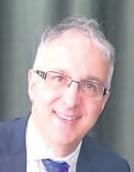
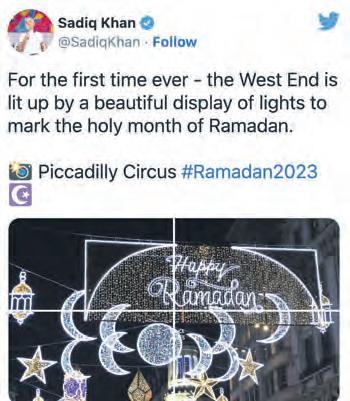
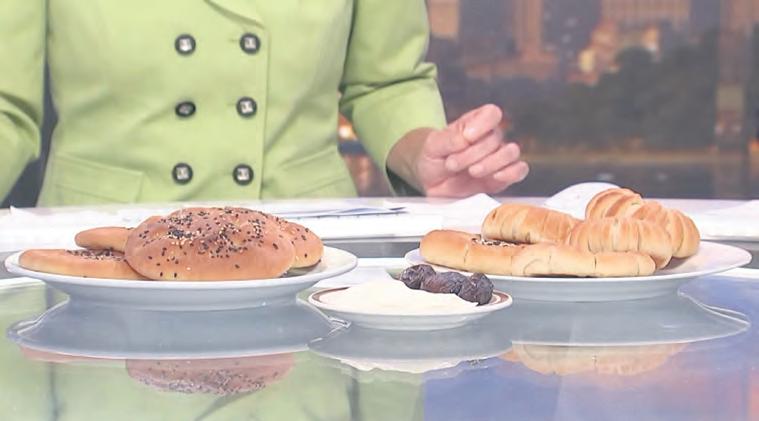

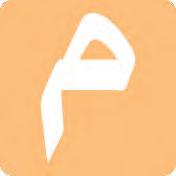
On Monday 20 March 2023, Lina Jebeile, a food photographer and stylist based in Sydney, Australia, appeared on the ABC News morning show to discuss the Islamic holy month of Ramadan and share some traditional Lebanese dishes.
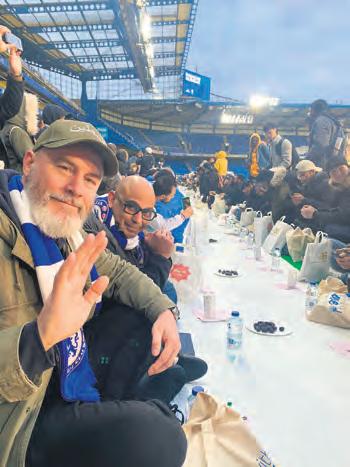
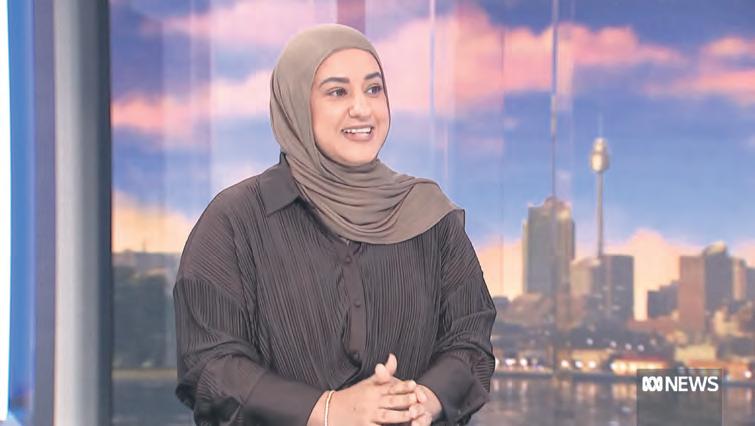
Ramadan is the ninth month of the Islamic calendar, and it is observed by Muslims worldwide as a month of fasting, prayer, and reflection. During this time, Muslims refrain from consuming food and drink from dawn until sunset. Fasting during Ramadan is one of the Five Pillars of Islam, and it is seen as a way to purify the soul and draw closer to Allah. The fast is broken each evening with a meal called iftar, often enjoyed with family and friends. The month of Ramadan is also a time for increased charitable giving and community service.
Lina explained the significance of Ramadan, saying:
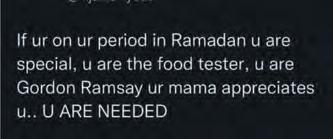
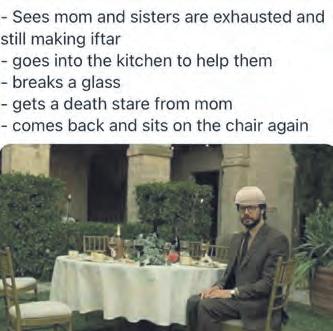
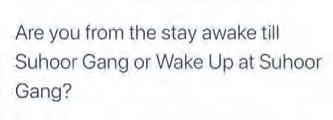

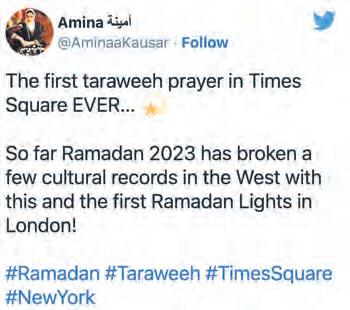
“It’s also a time for us to kind of reflect and try and build good habits, you know, endurance and the time for reflection and everybody is really different, you know, what they focus on. So, you know, if you really think I need to work on my patience, then that’s what I’m going to try and work on Because the idea is if you’re impatient or get angry really quickly or rude or whatever it is, you’re kind of breaking your fast as well. So it’s not just about eating and drinking.”
Lina also discussed the challenges of fasting during Ramadan, admitting that the first few days can be difficult, but that the body quickly adjusts to the fasting. She went on to explain some of the traditional dishes
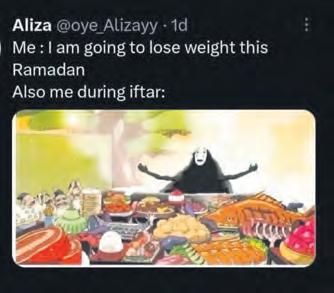
associated with Ramadan, including “Masha’teeh”, a type of bread spiced with aniseed powder that is often eaten at “Suhoor” time, the pre-dawn meal before the fast begins. She also highlighted the importance of dates during Ramadan, both as a Prophetic food and for their nutritional value.
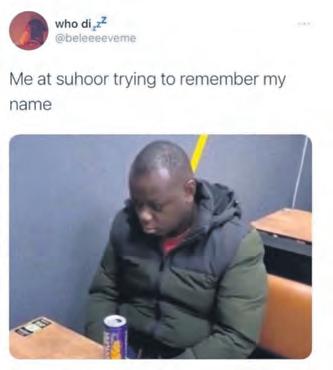
When asked about how non-Muslims can support their Muslim colleagues during Ramadan, Lina emphasised the importance of empathy and understanding, saying:

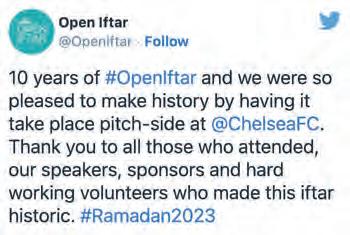
“The percentage of Muslims in Australia is kind of big enough that you may have Muslim colleagues who are participating in Ramadan in fasting. Be a bit more respectful, a bit more understanding, because although we try and pull through with the fasting, you know, sometimes by the end of the day, your energy levels kind of drop. There are also a lot more prayers and things like that that we do. It’s important for employees and colleagues to kind of be understanding and be a bit empathetic of what you’re going through, you know, to not schedule meetings, for example, because you want to be with your family and your friends breaking your fast and things like that.”
Lina, the creator of ‘The Lebanese Plate,’ is passionate about sharing her love for Middle Eastern cuisine and has created content for some of Australia’s largest brands and companies. She has also been chosen as a contributor to ‘New Voices on Food,’ an anthology celebrating the diversity of voices in the Australian food landscape. Lina’s online store offers a wide range of Lebanese recipes, essential spices, and cook-at-home kits.
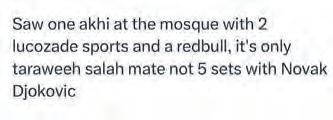
It’s also a time for us to kind of reflect and try and build good habits. “
“Lina Jebeile from The Lebanese Plate.
“Masha’teeh”,a type of bread spiced with aniseed powder.
This Ramadan, reflect, share your stories and connect with your community.
Let us remember to be kind, generous, and compassionate towards ourselves and also with one another.
May we all have a safe and blessed month of fasting.
Advertise in AMUST, the voice of Australia's diverse Muslim community.
Book by Wed 19 April
Email info@amust.com.au
AUSTRALASIAN MUSLIM TIMES